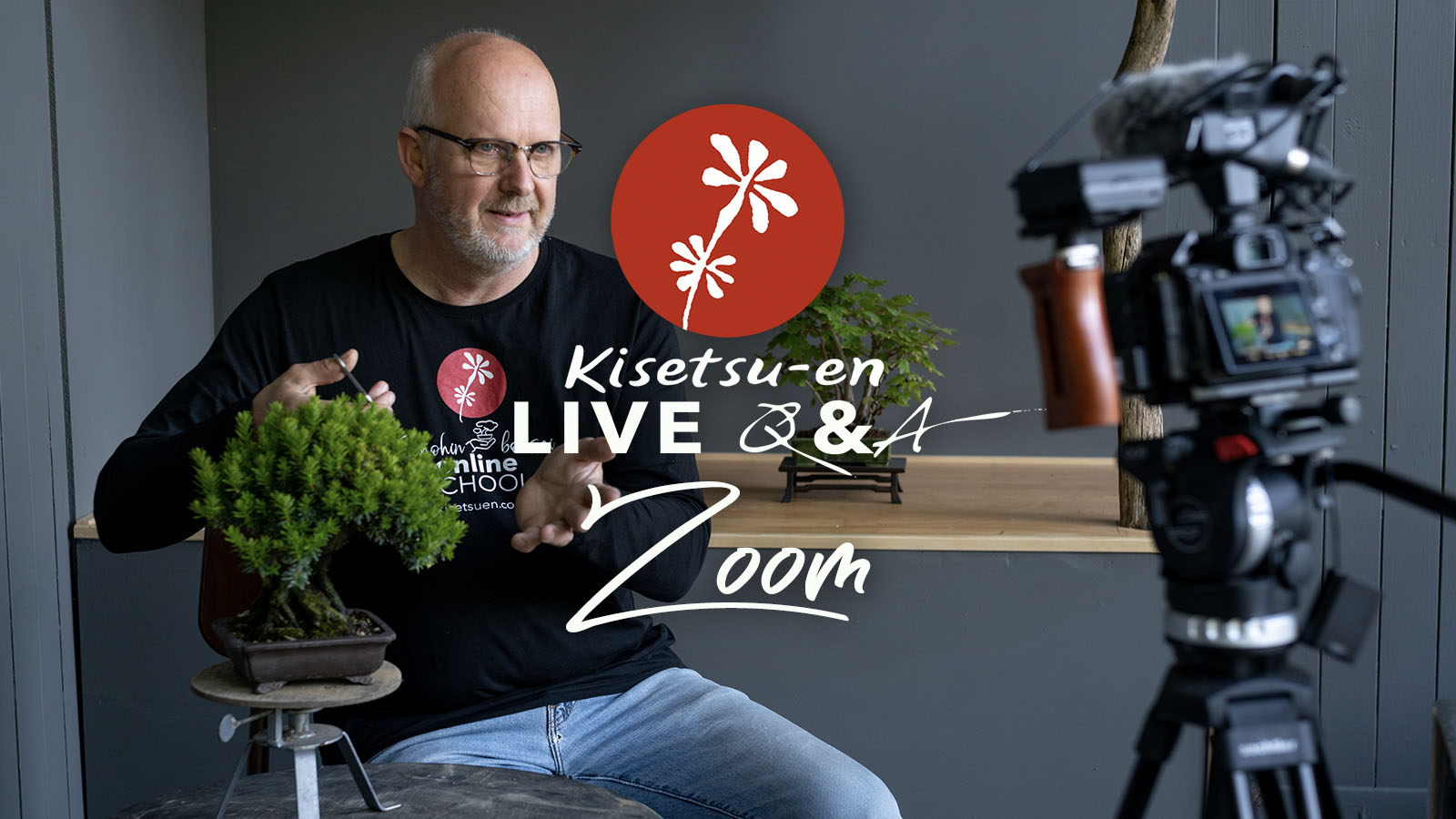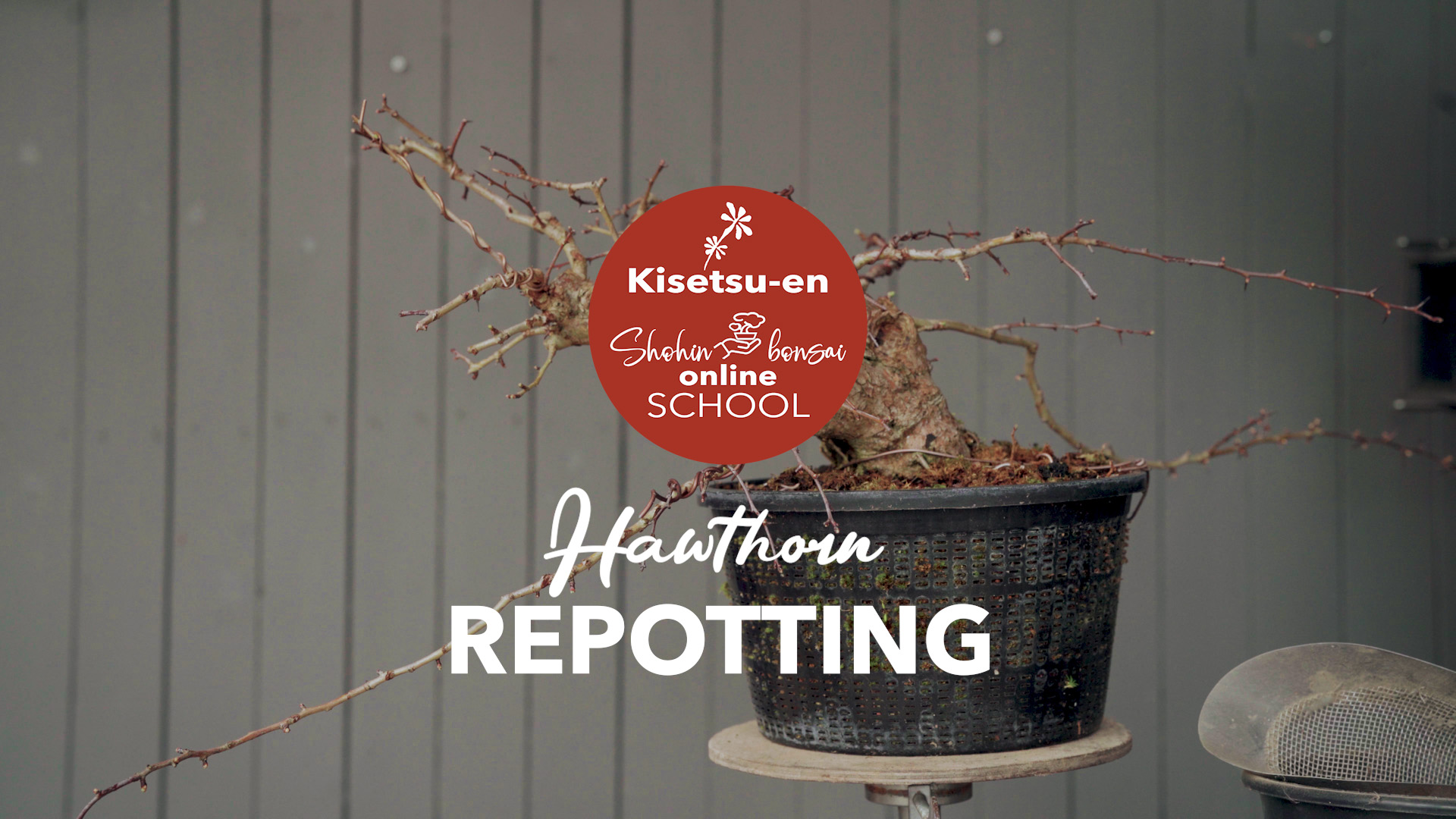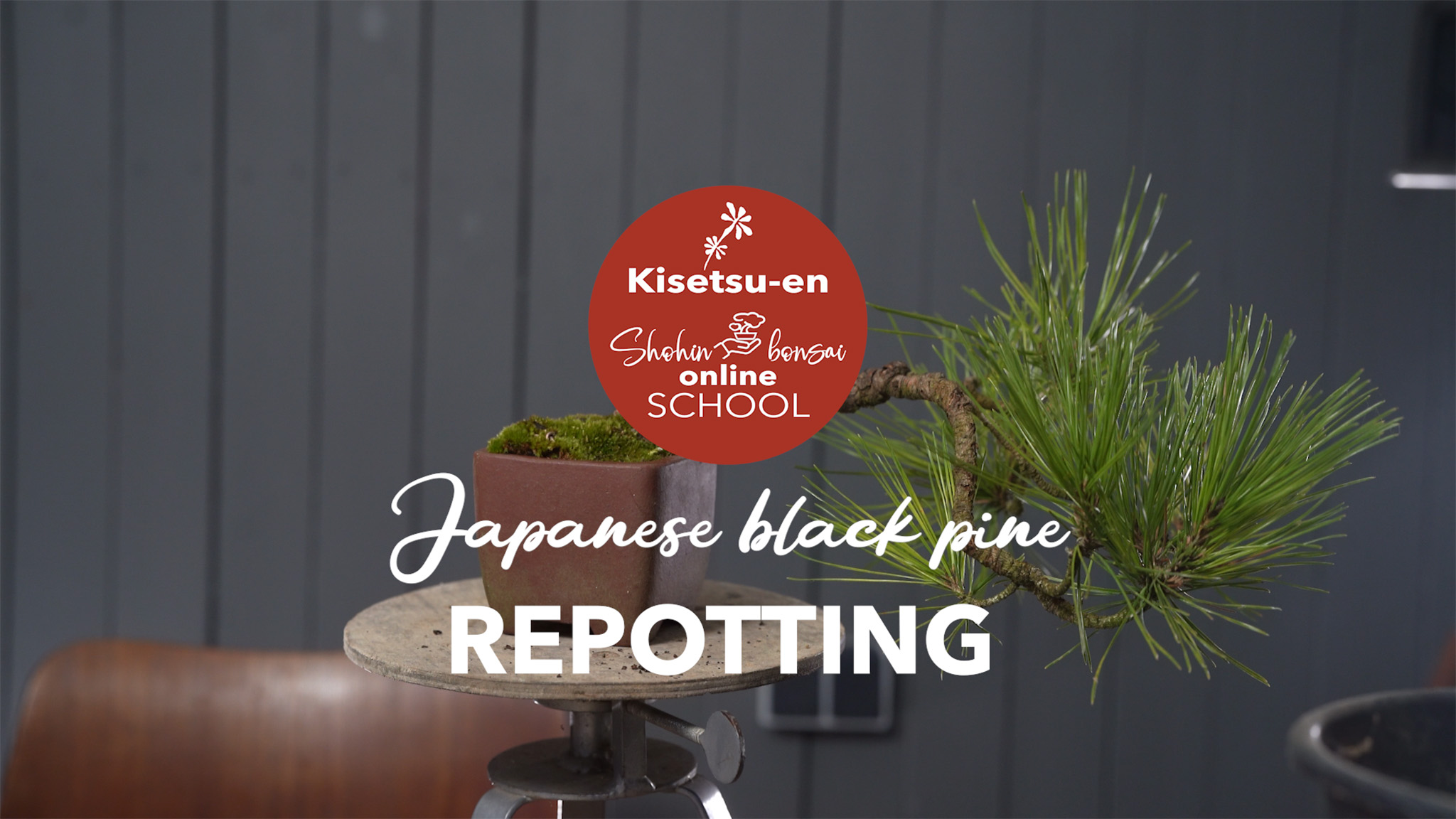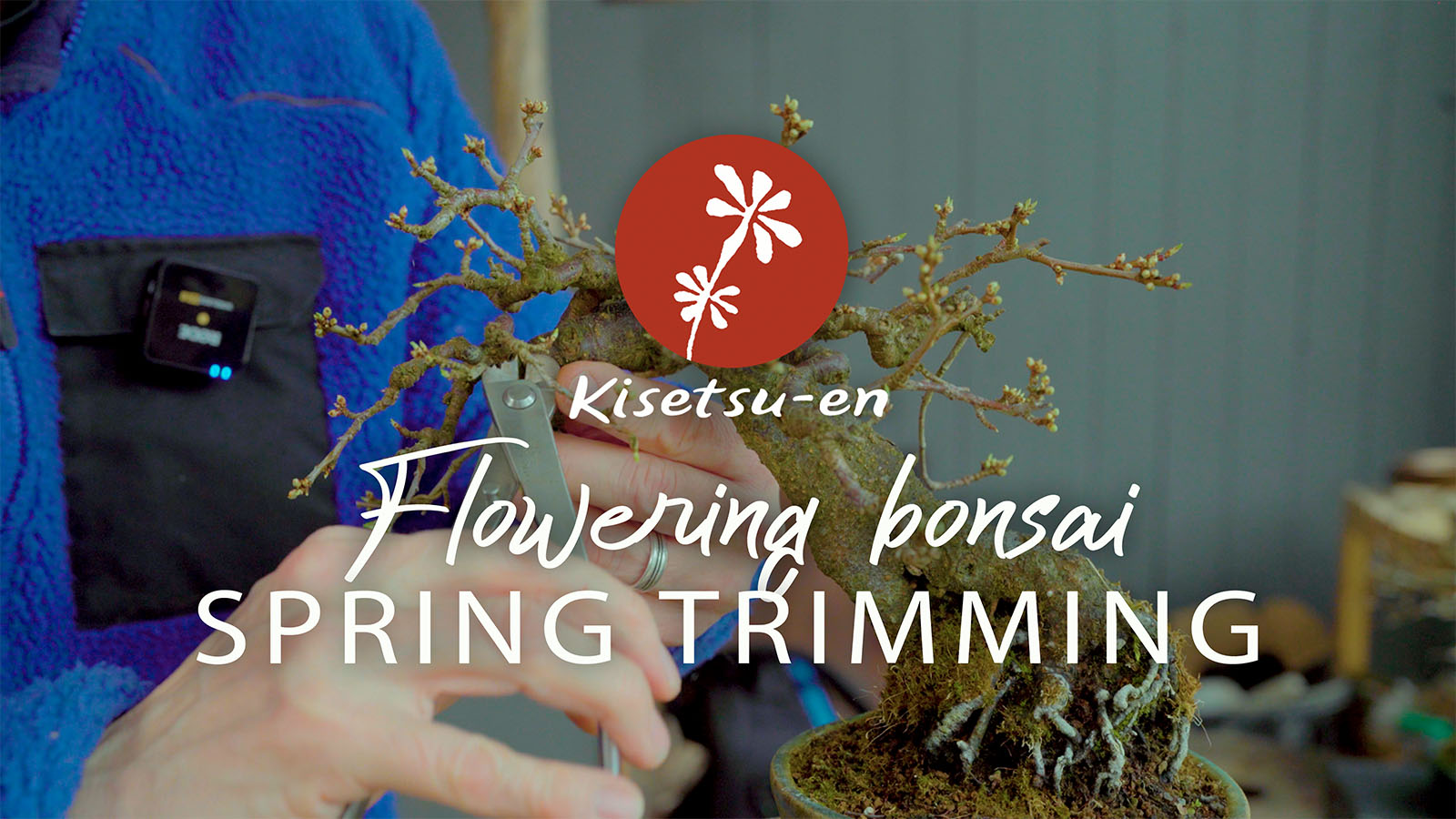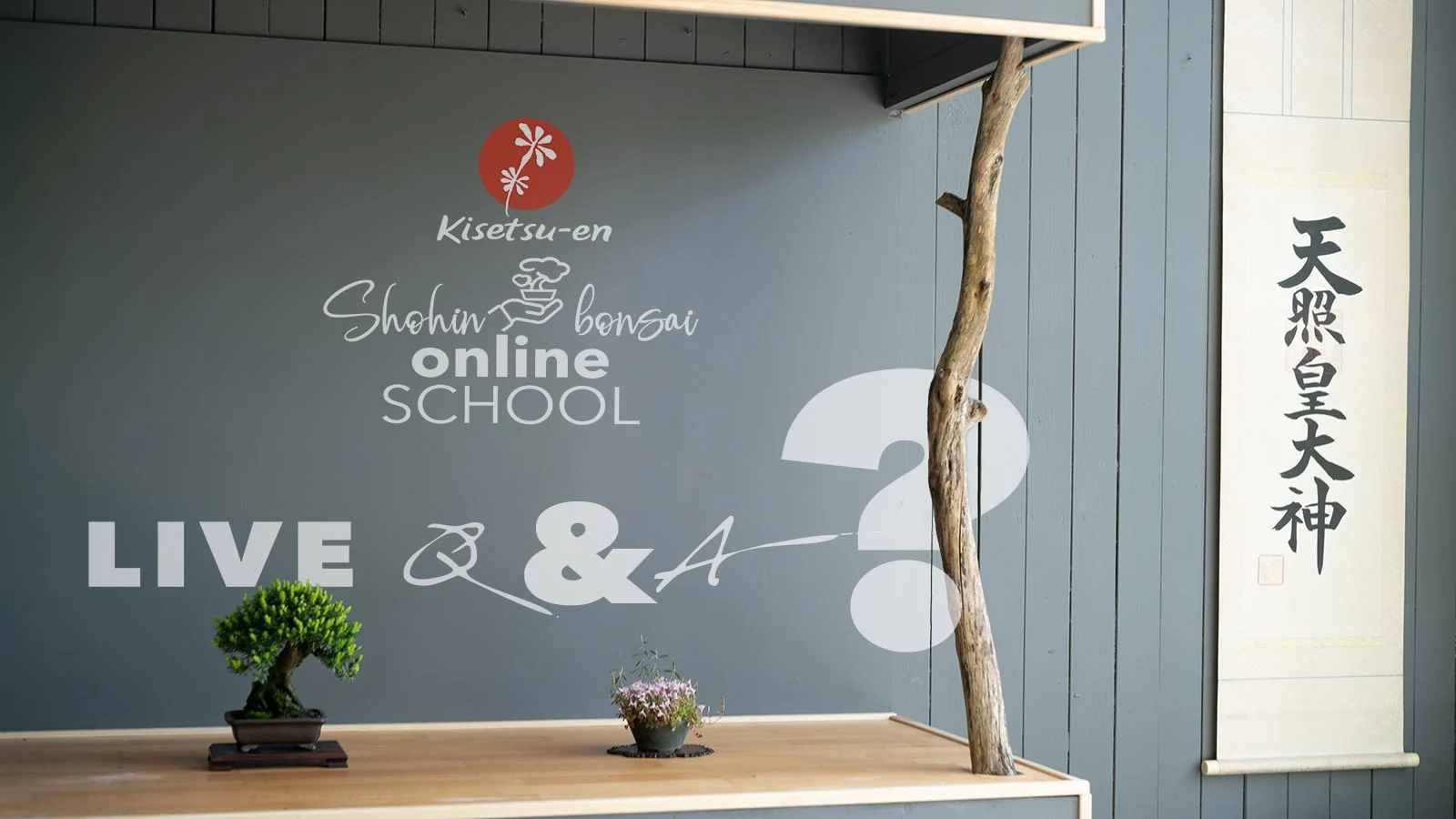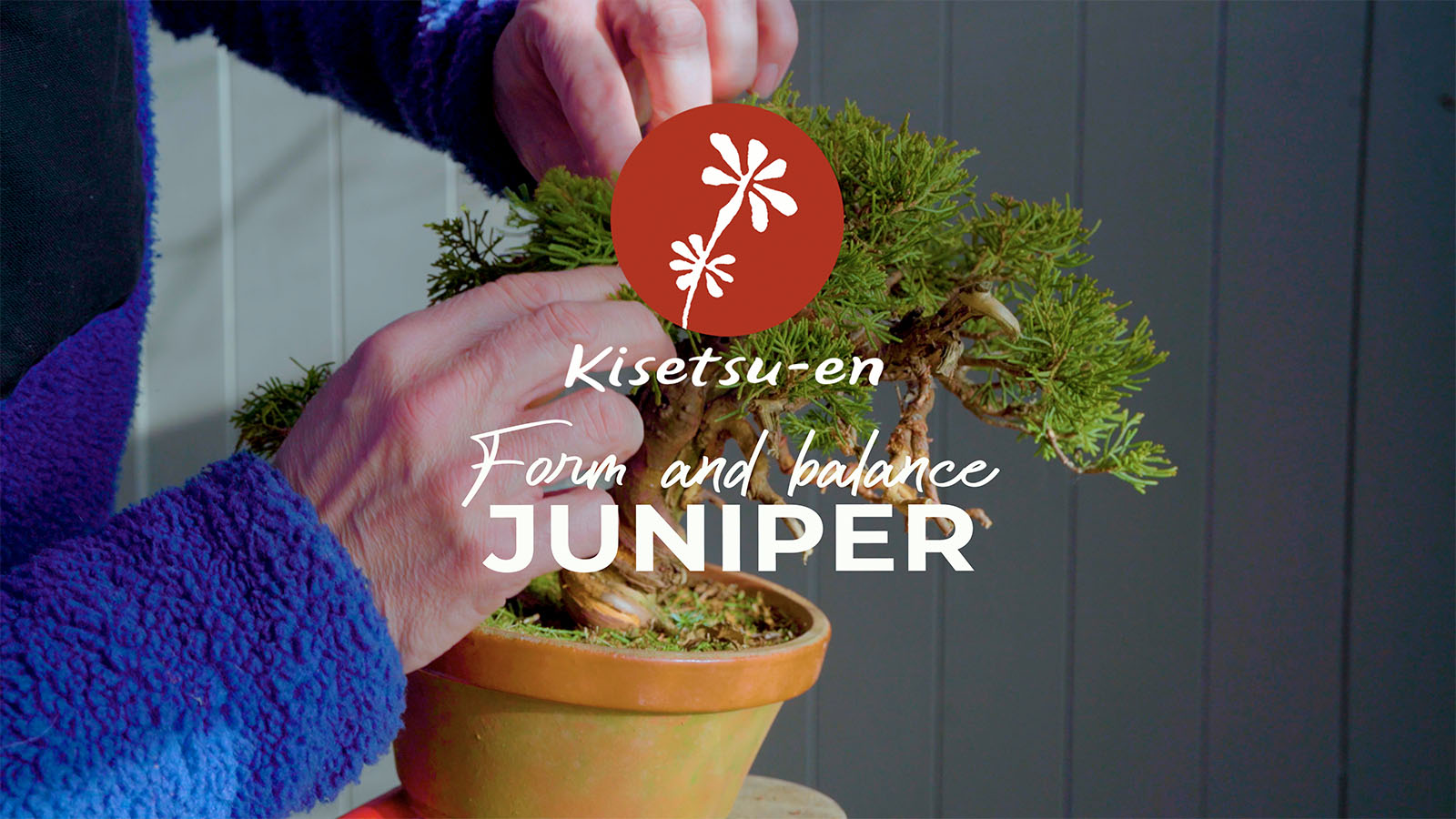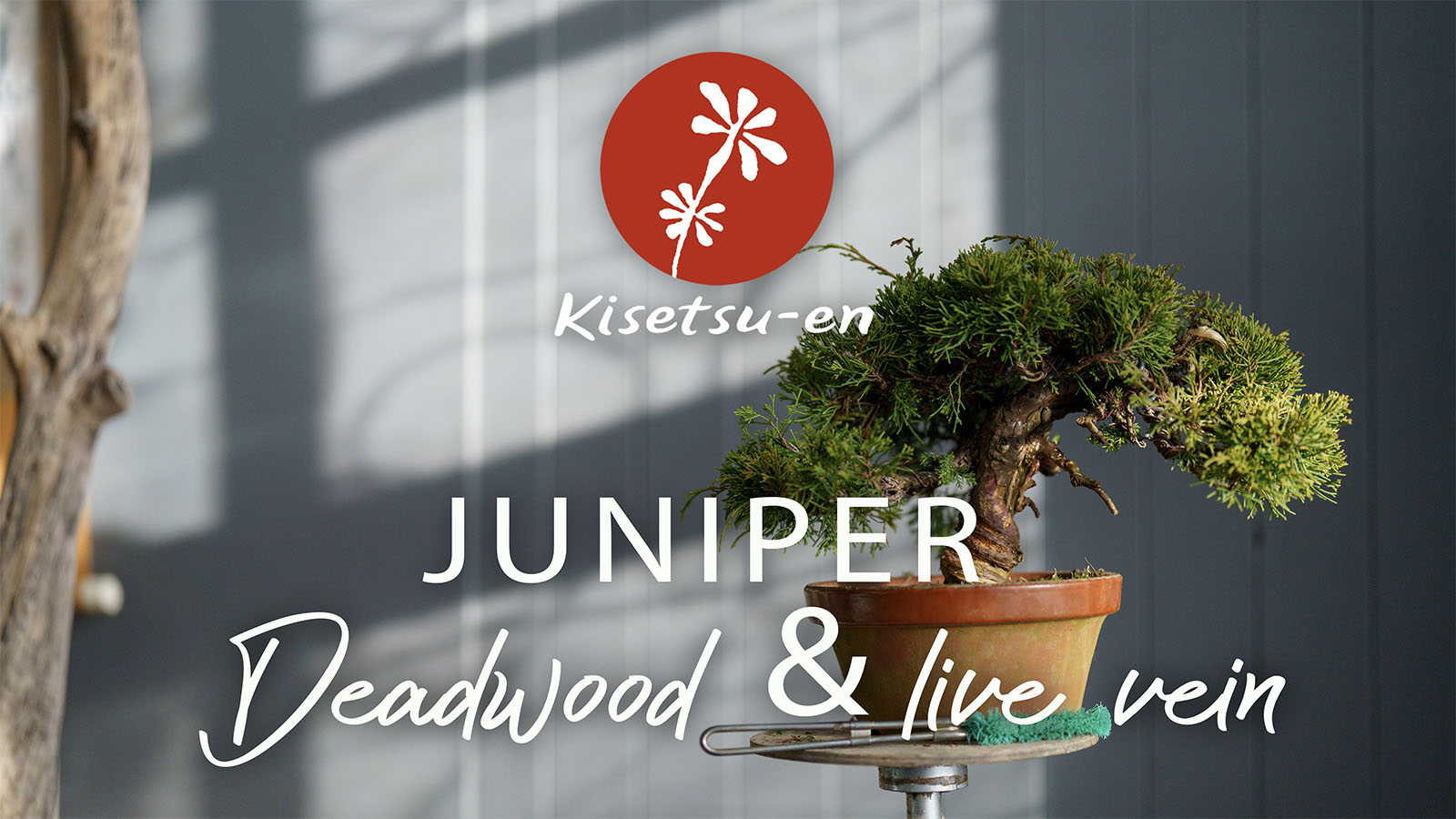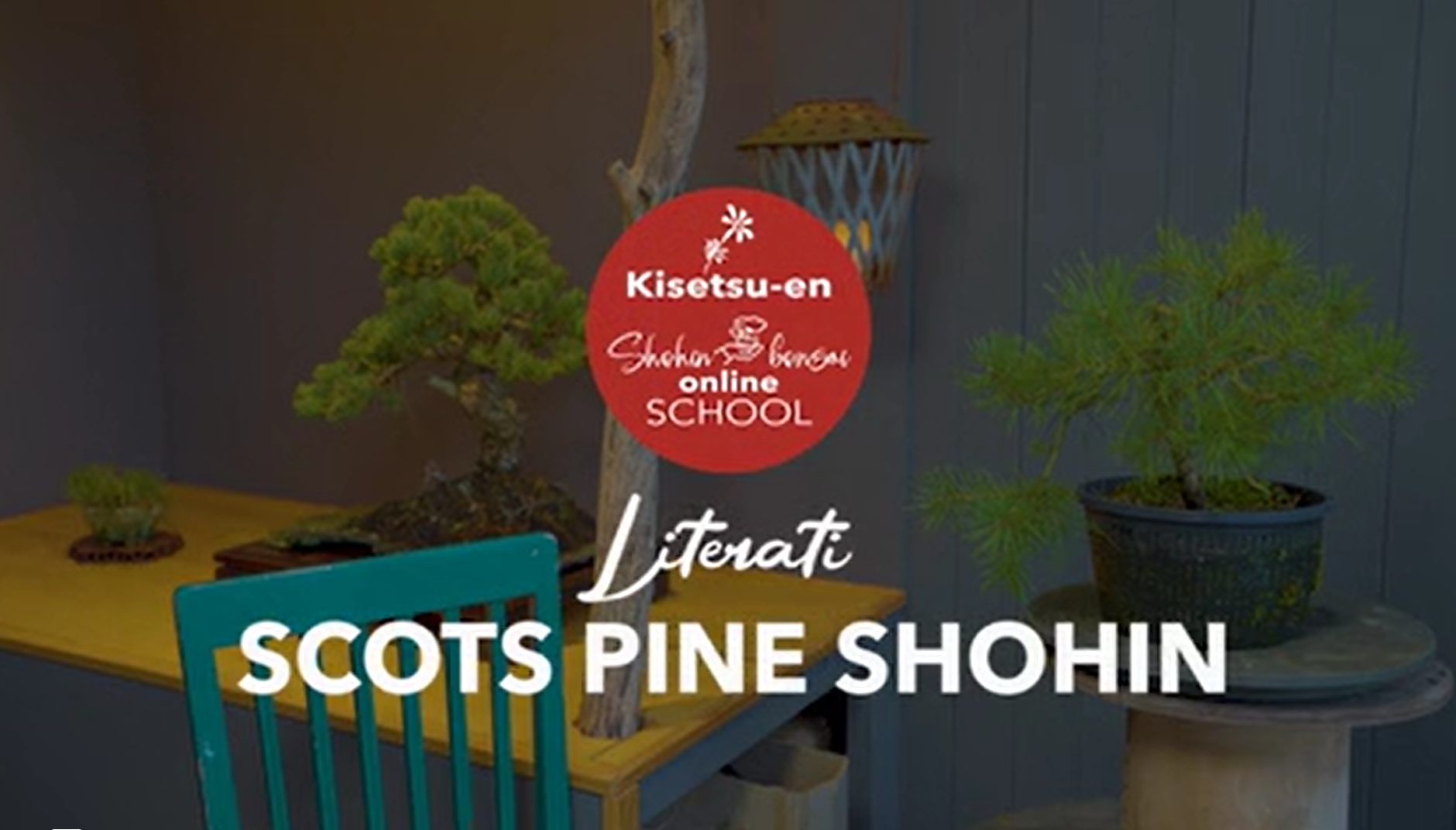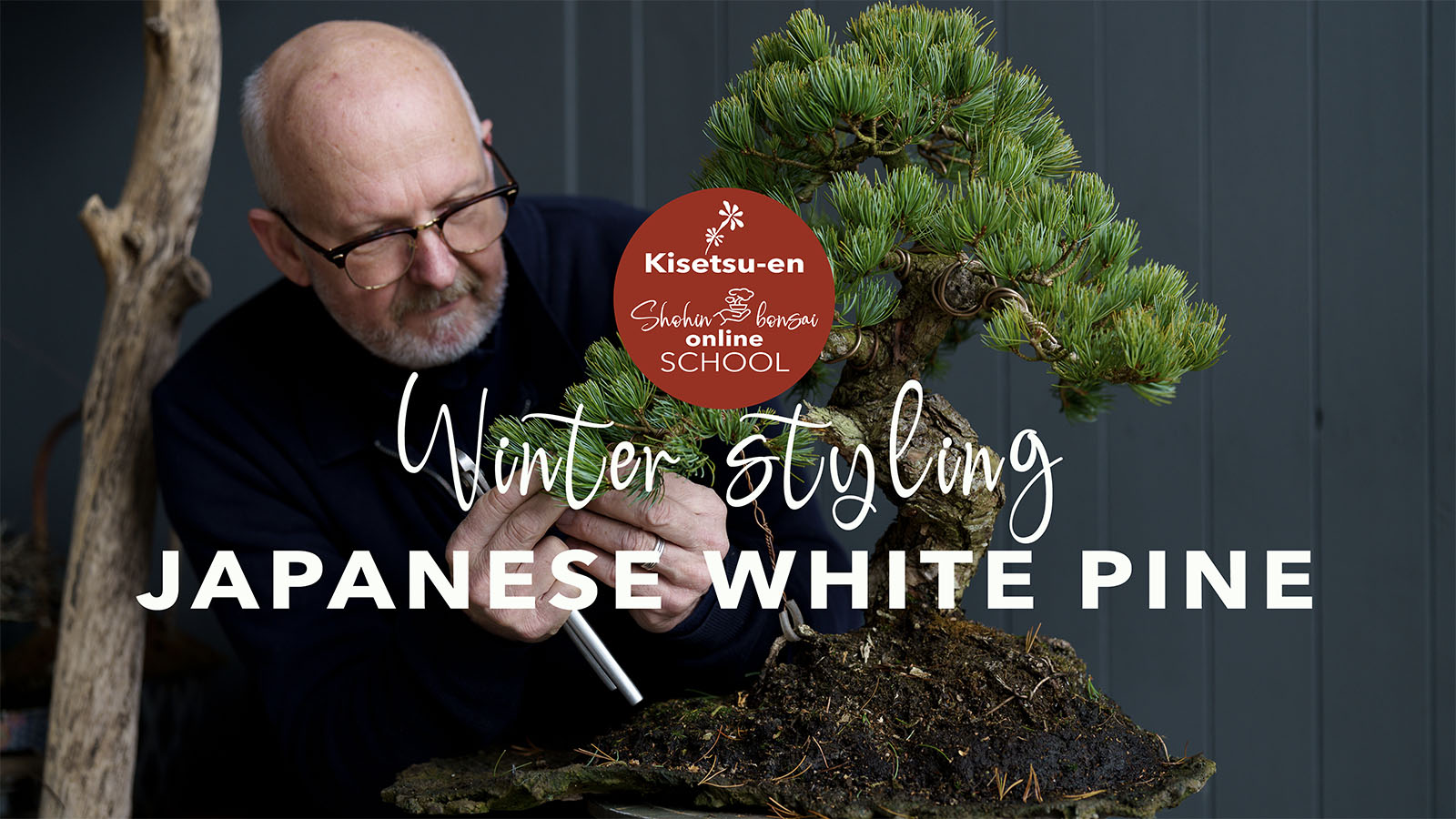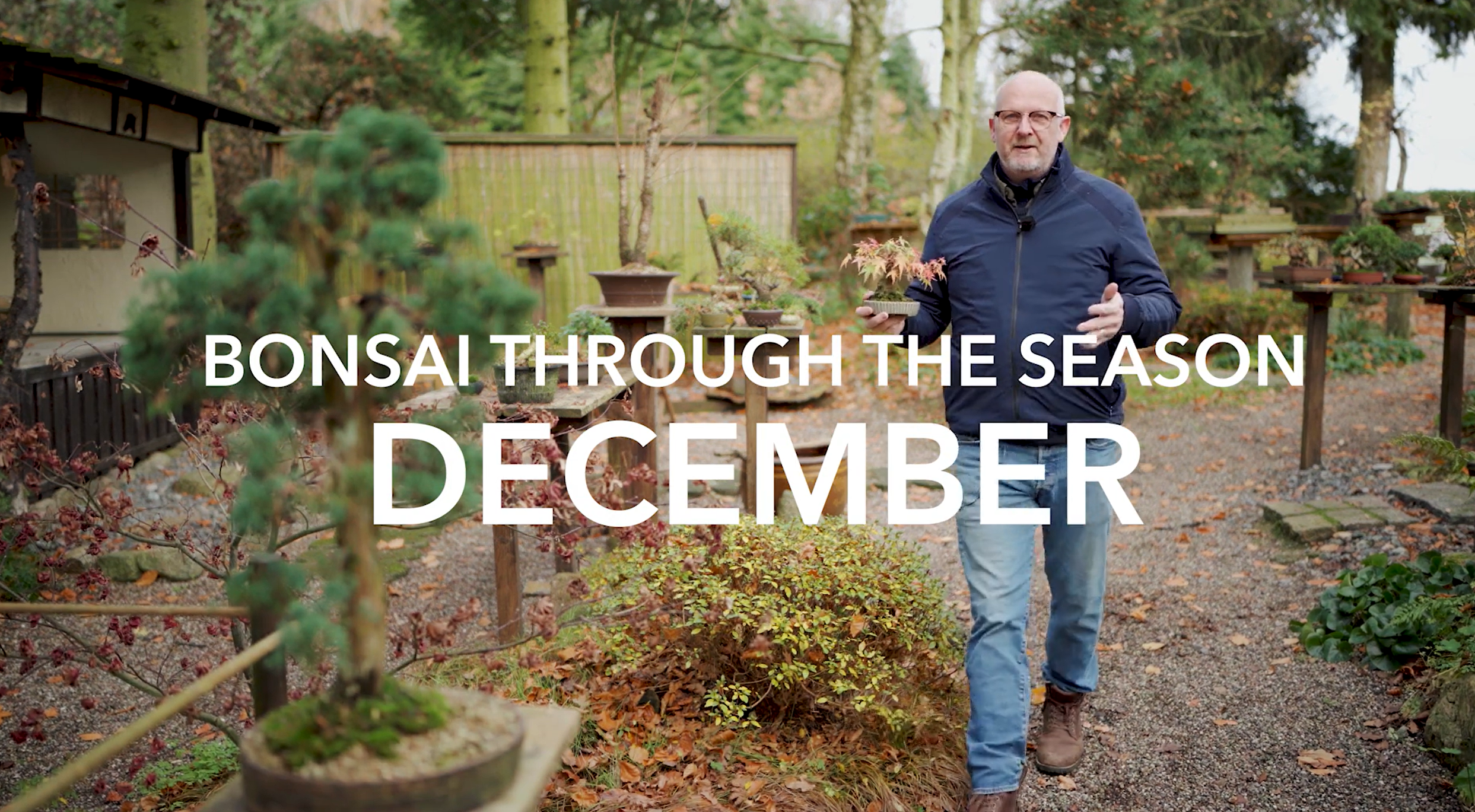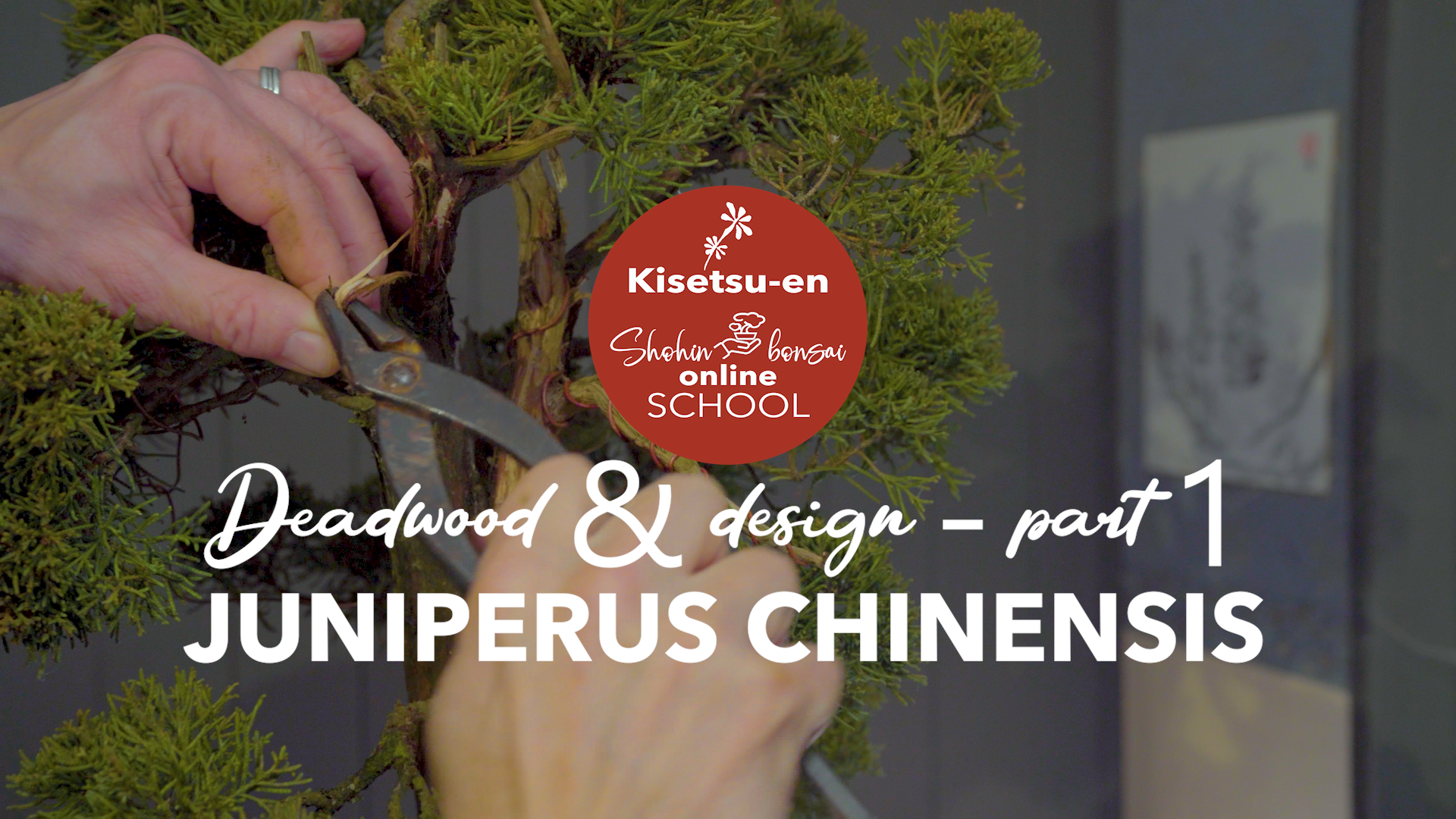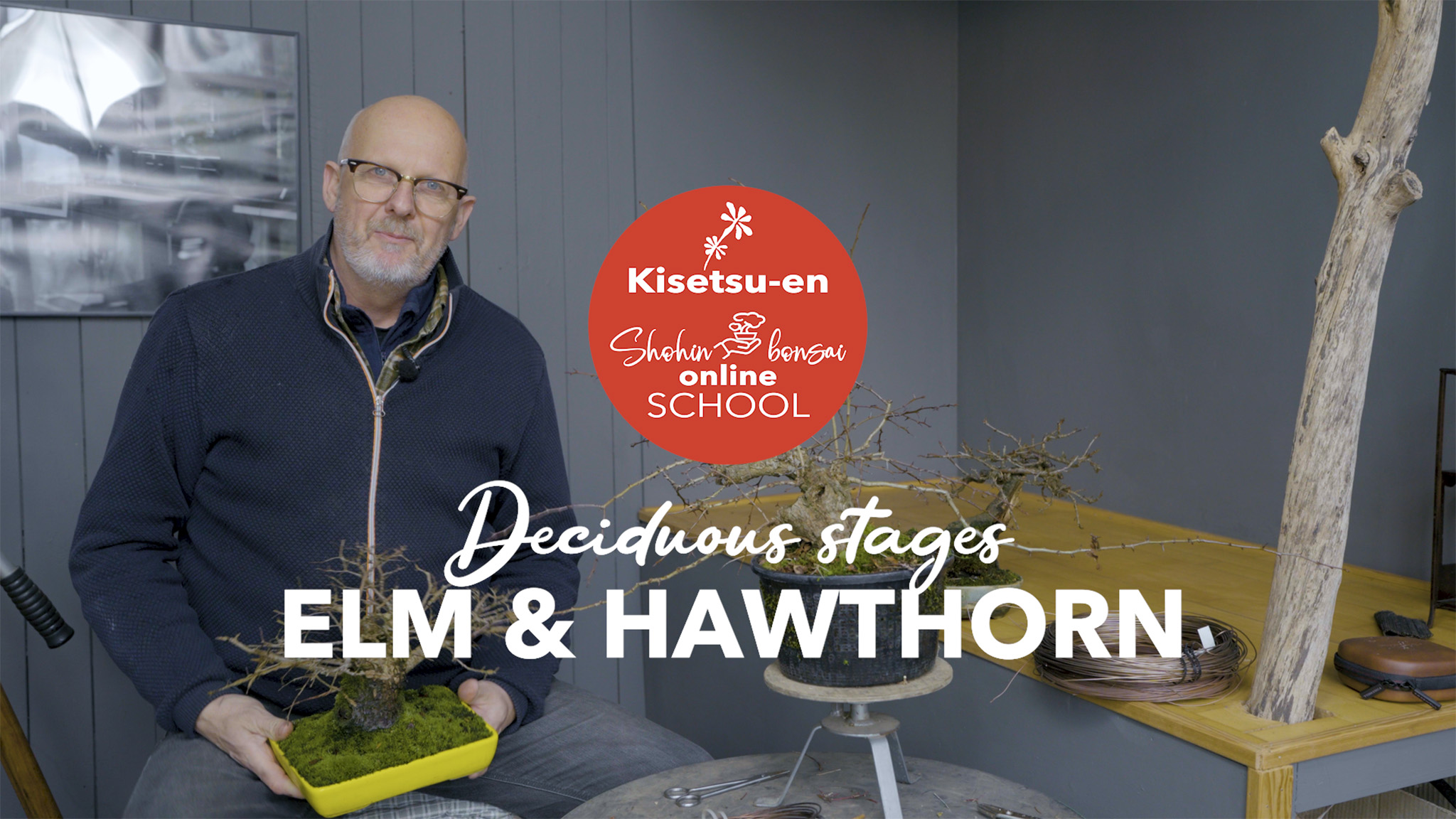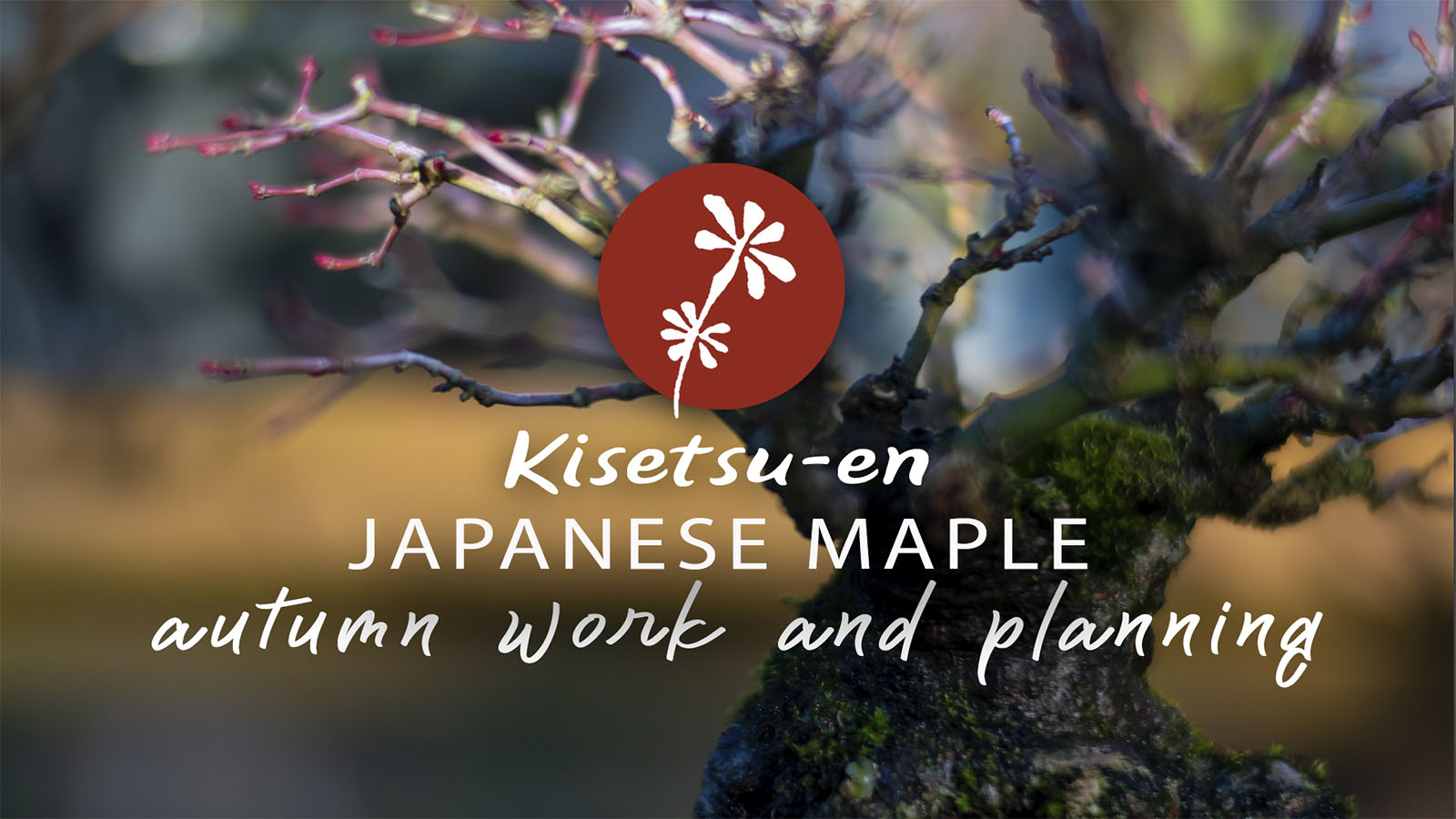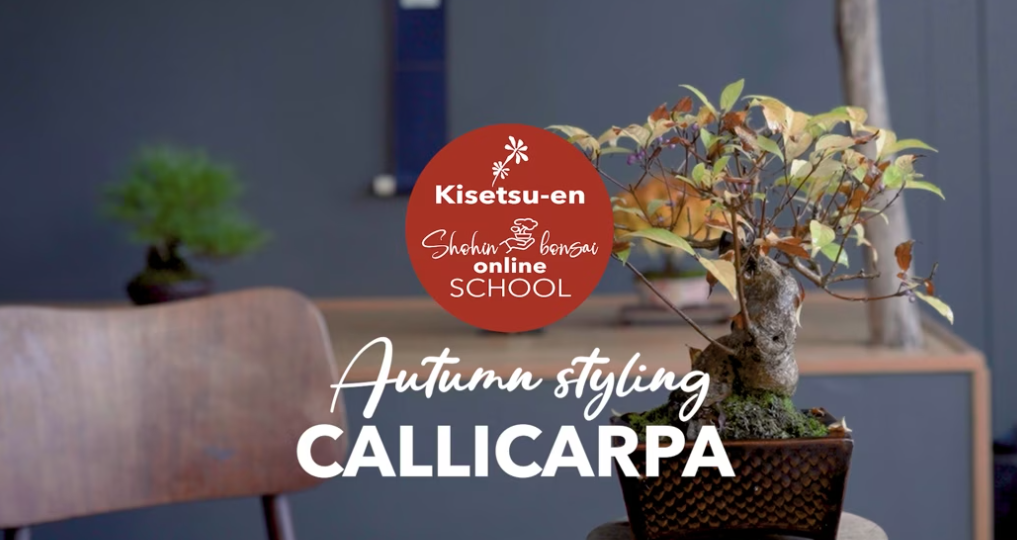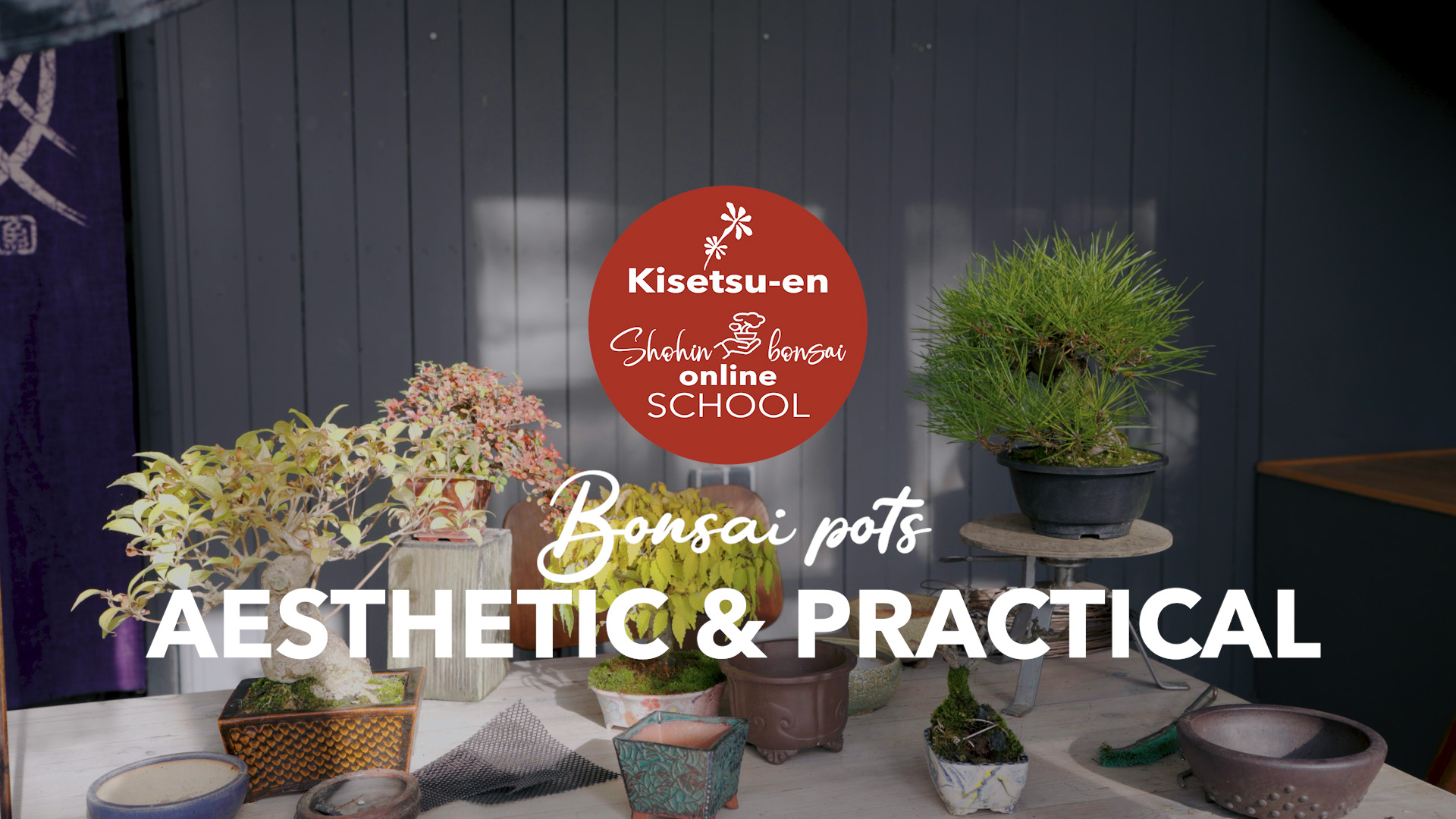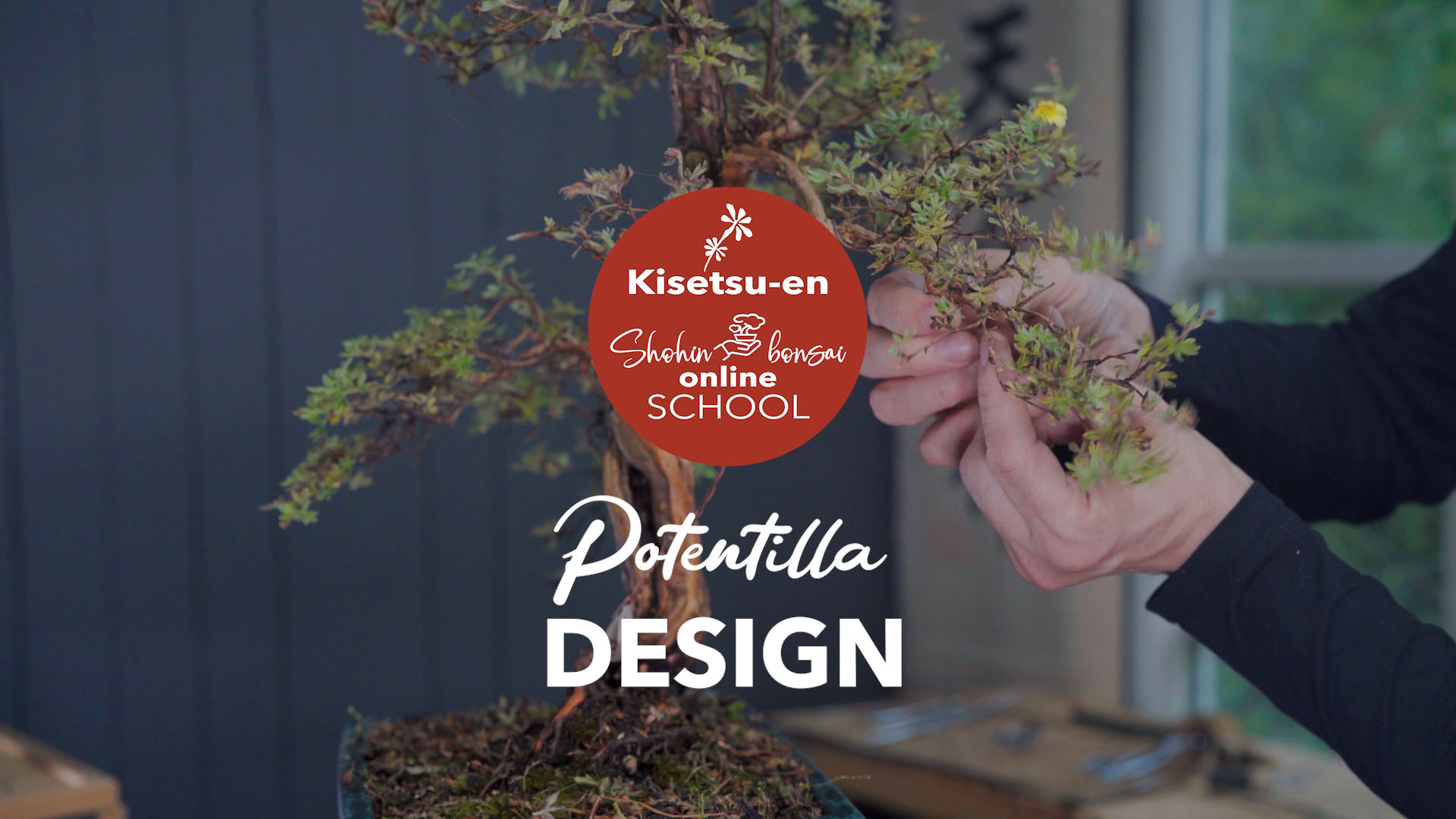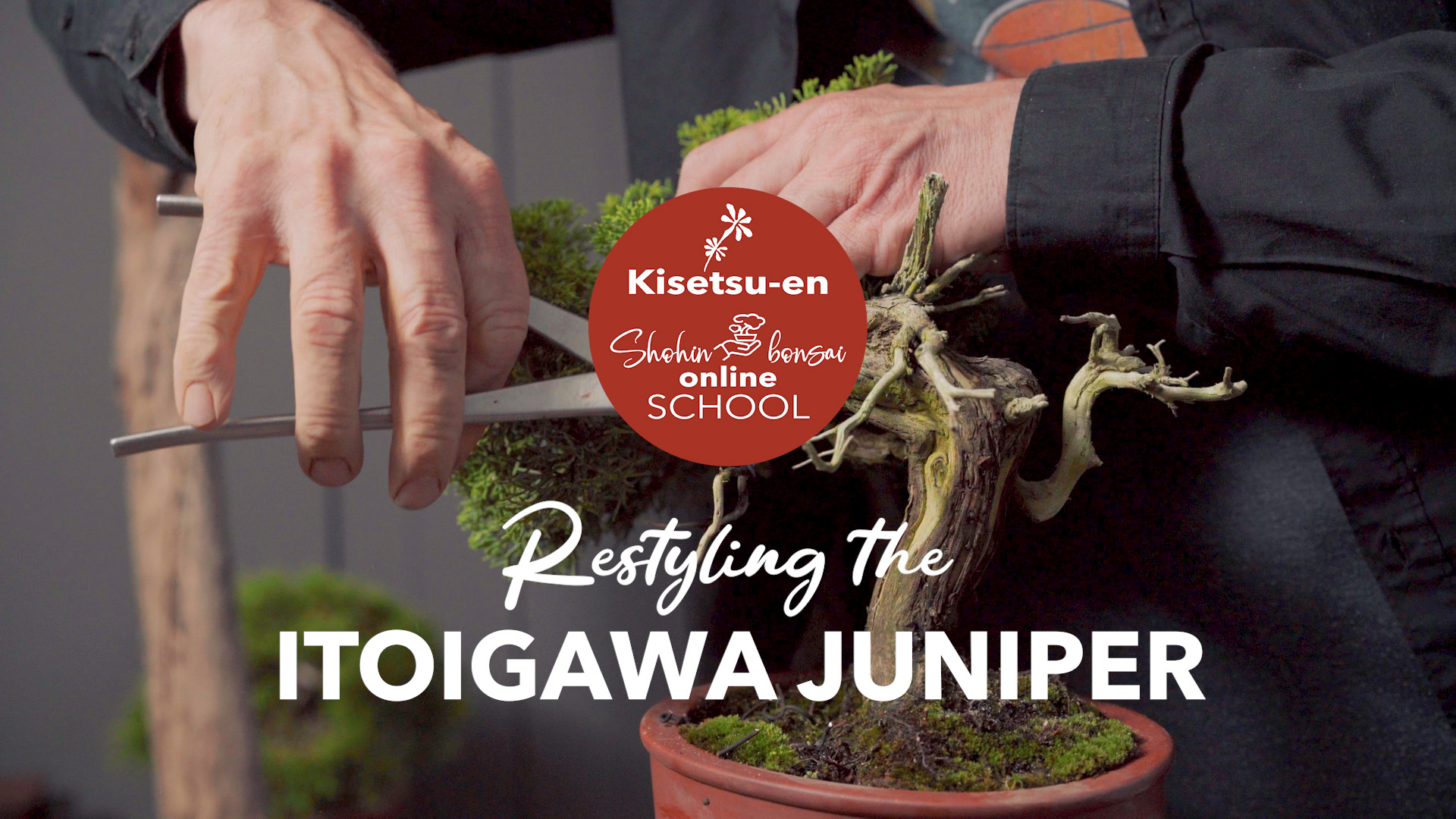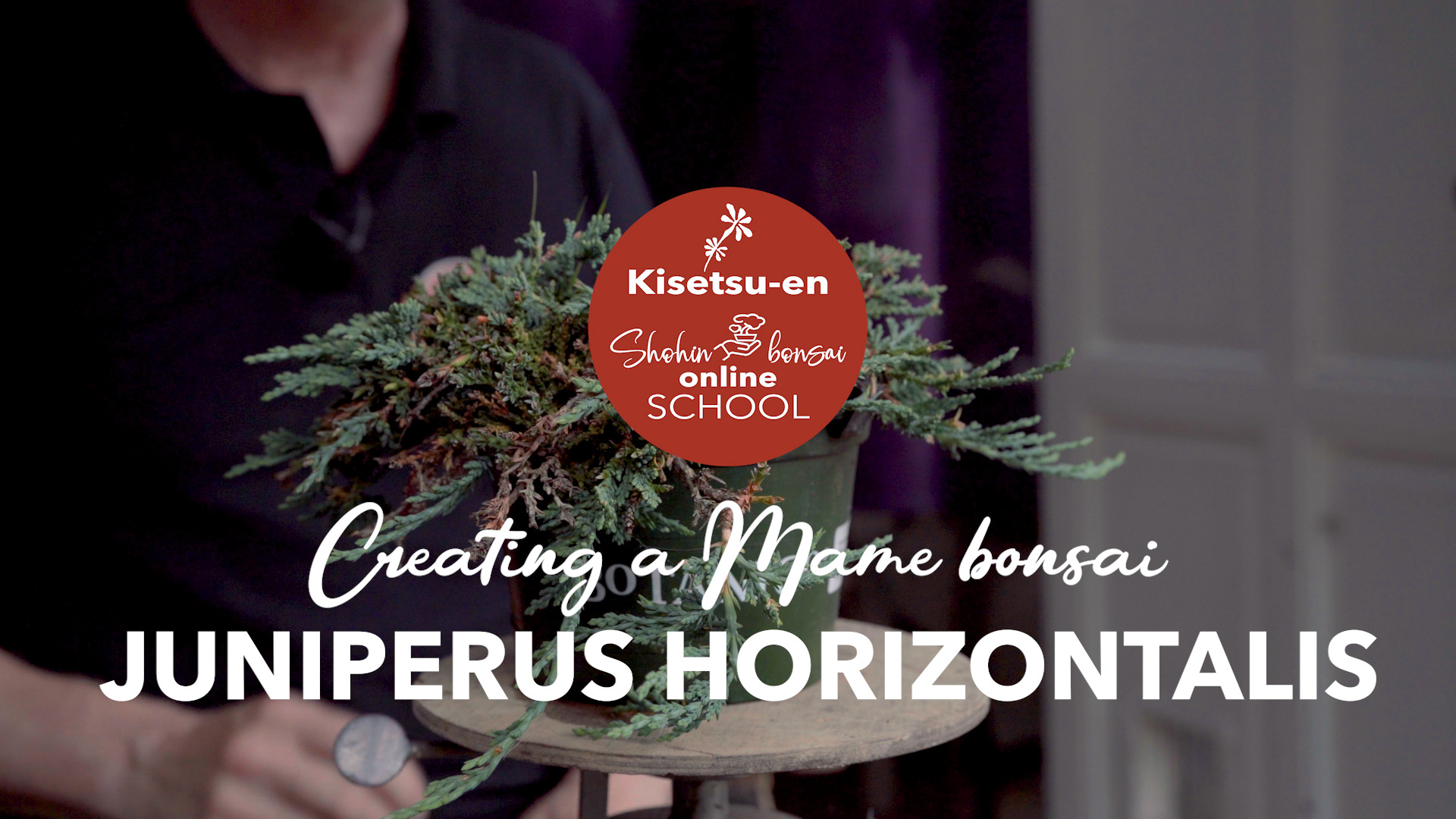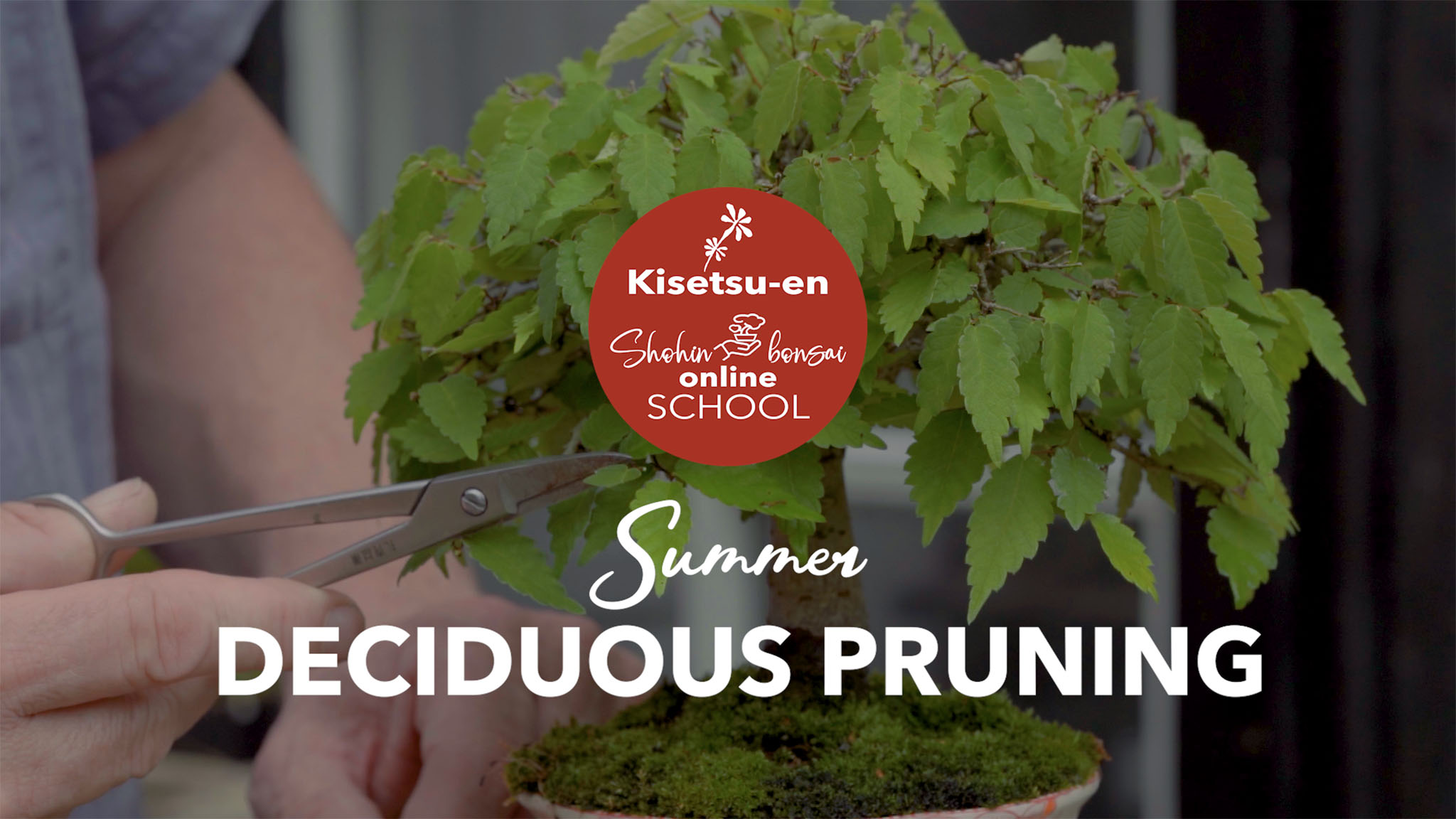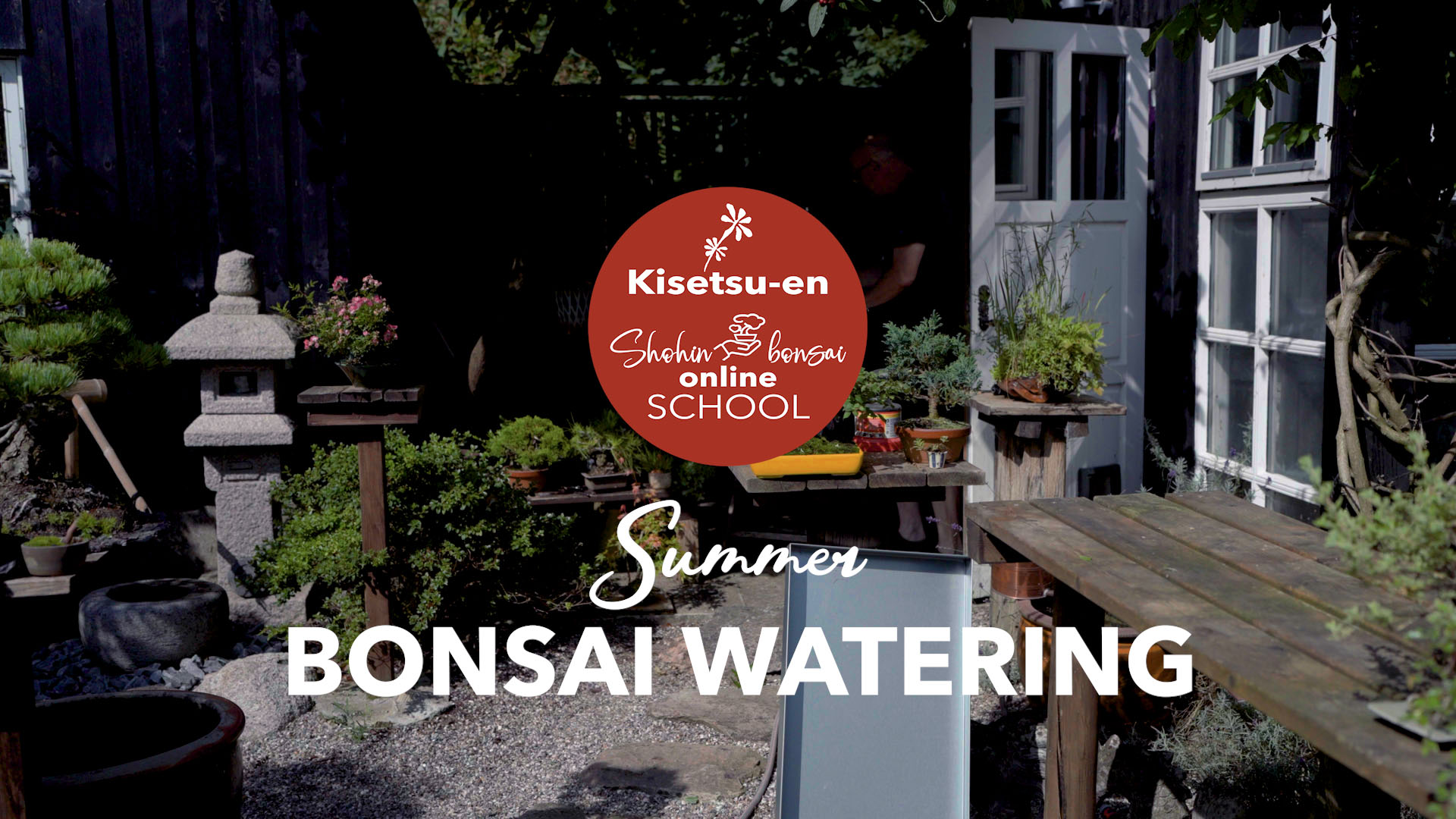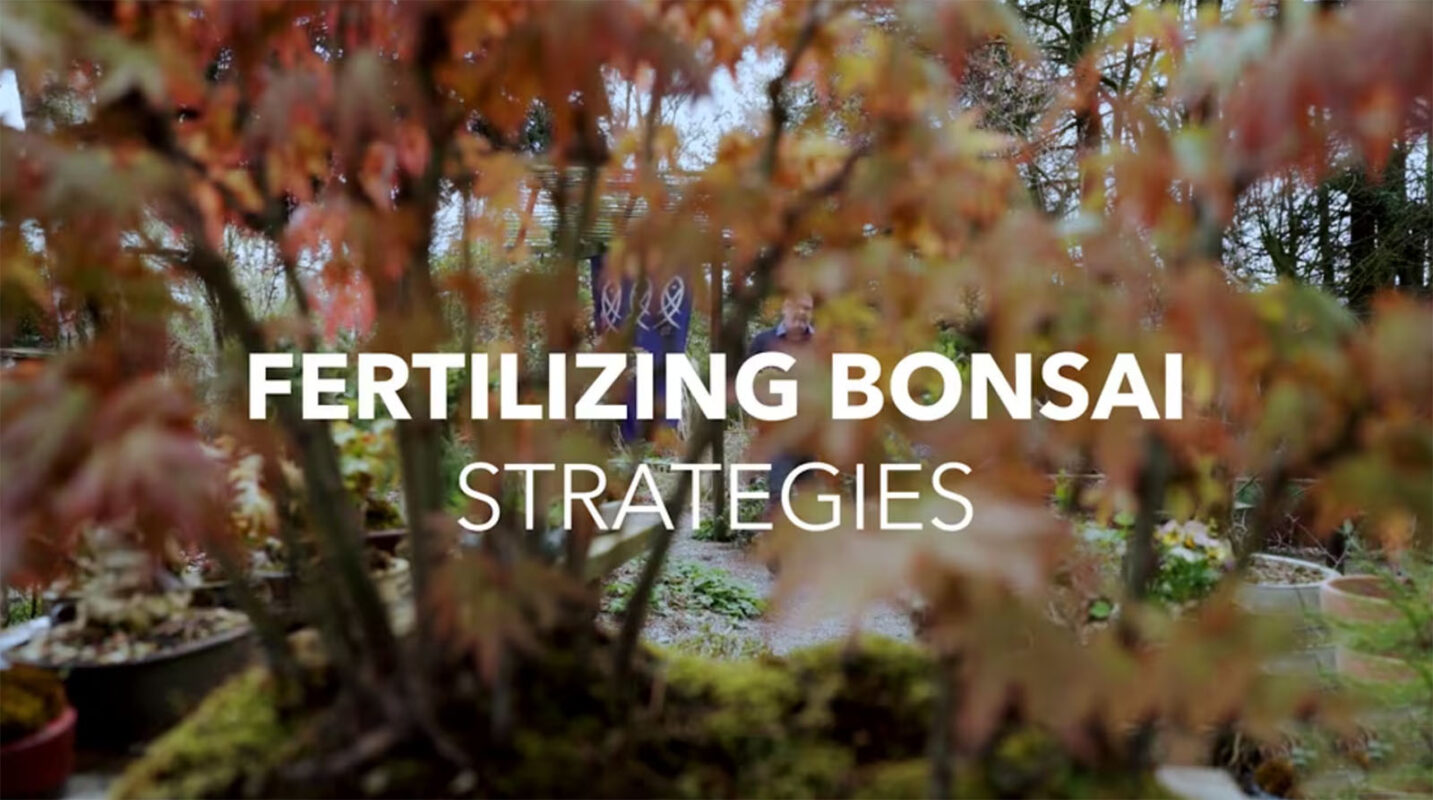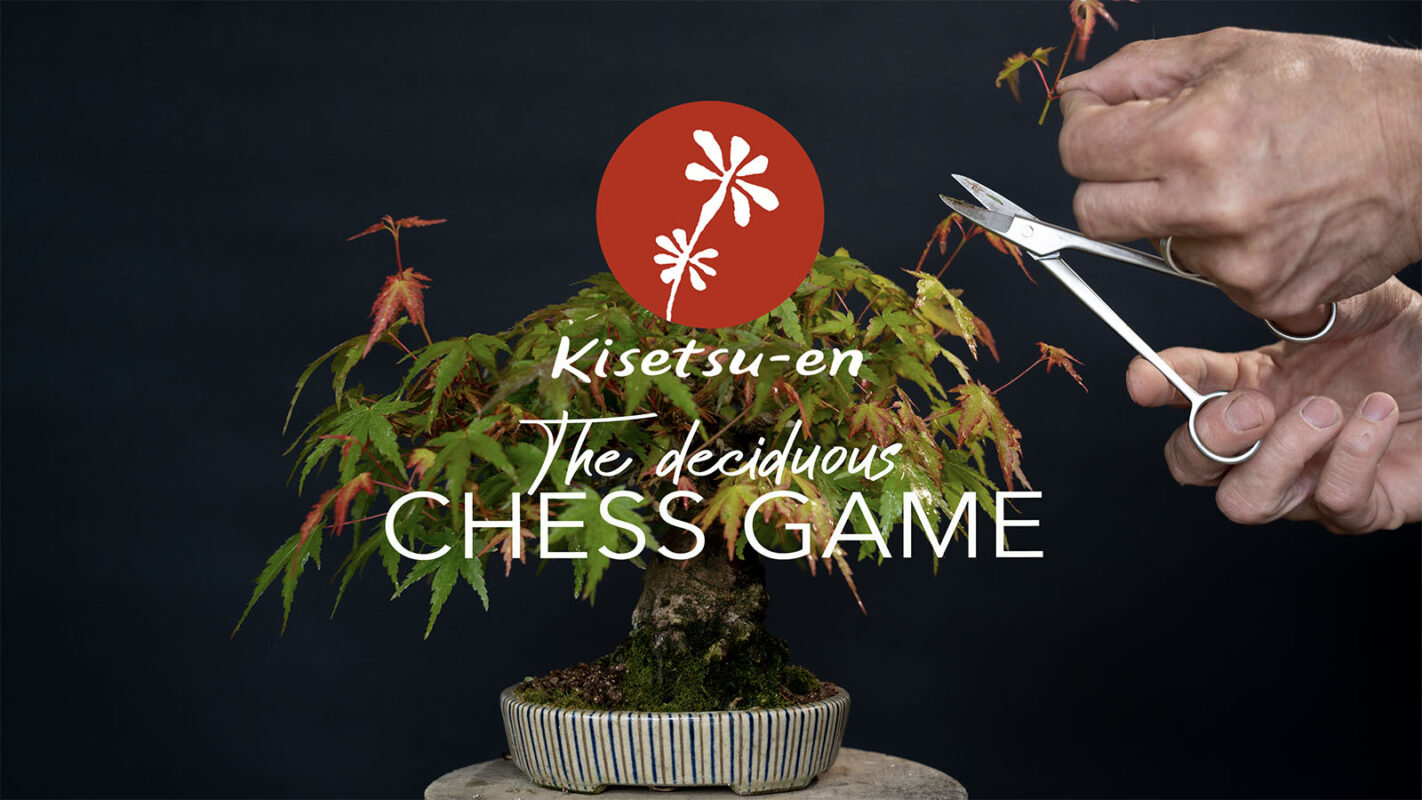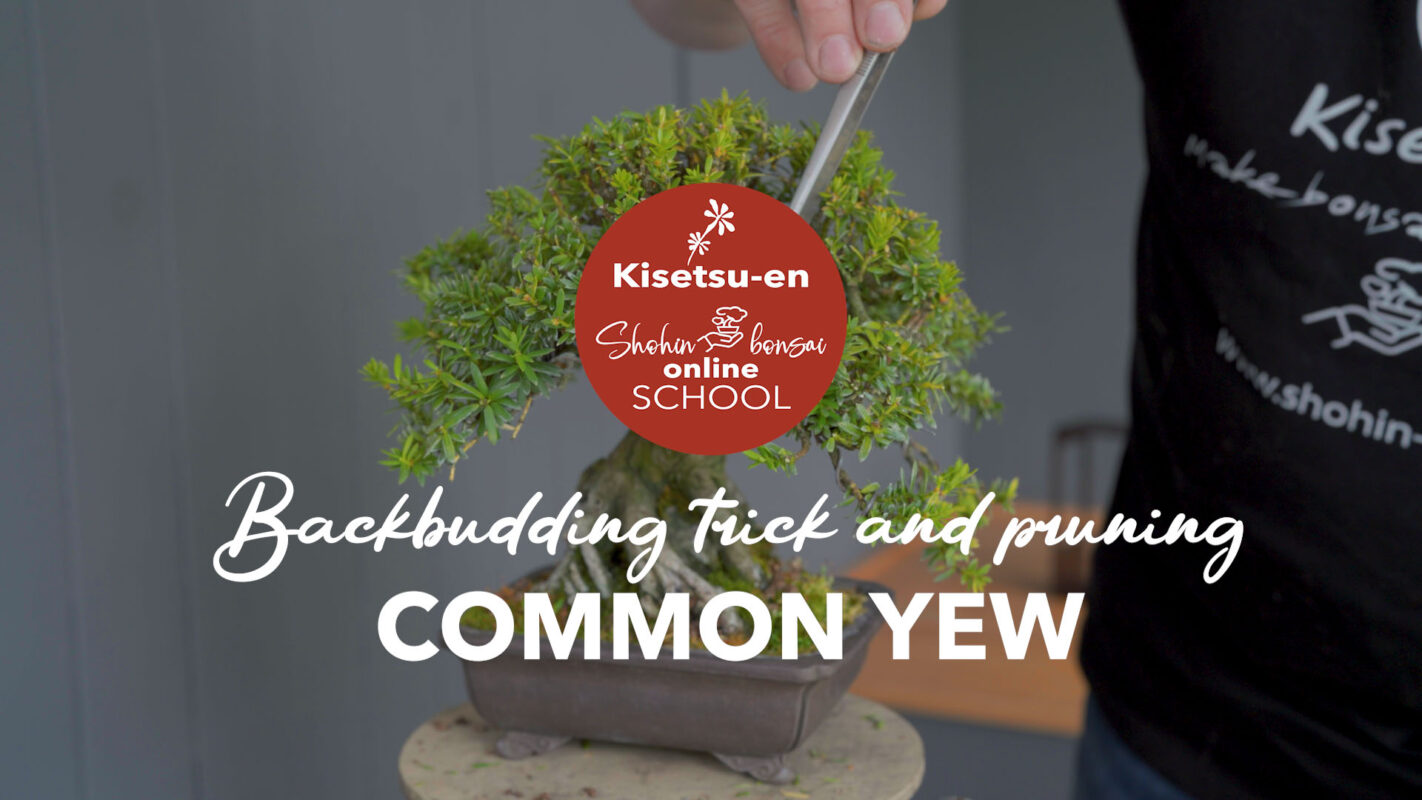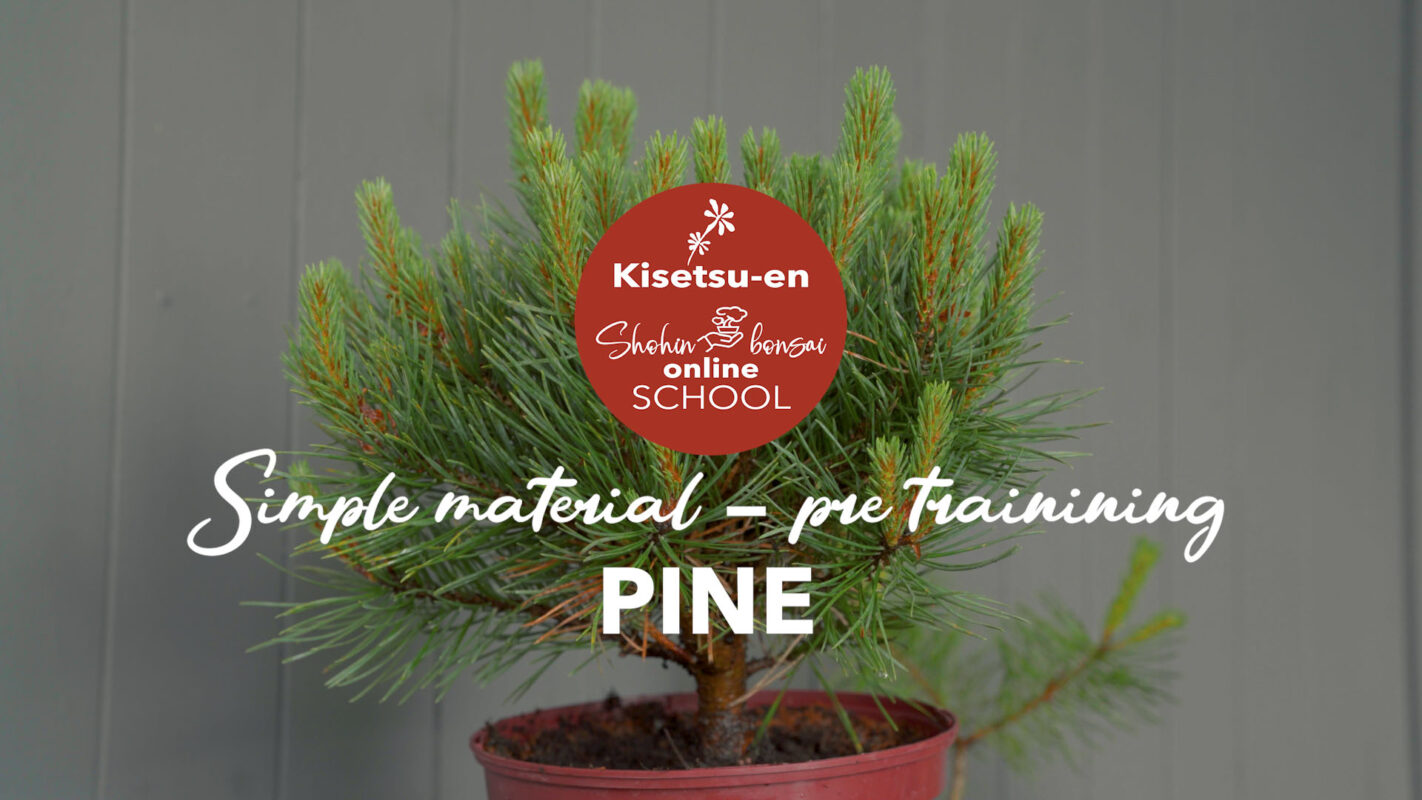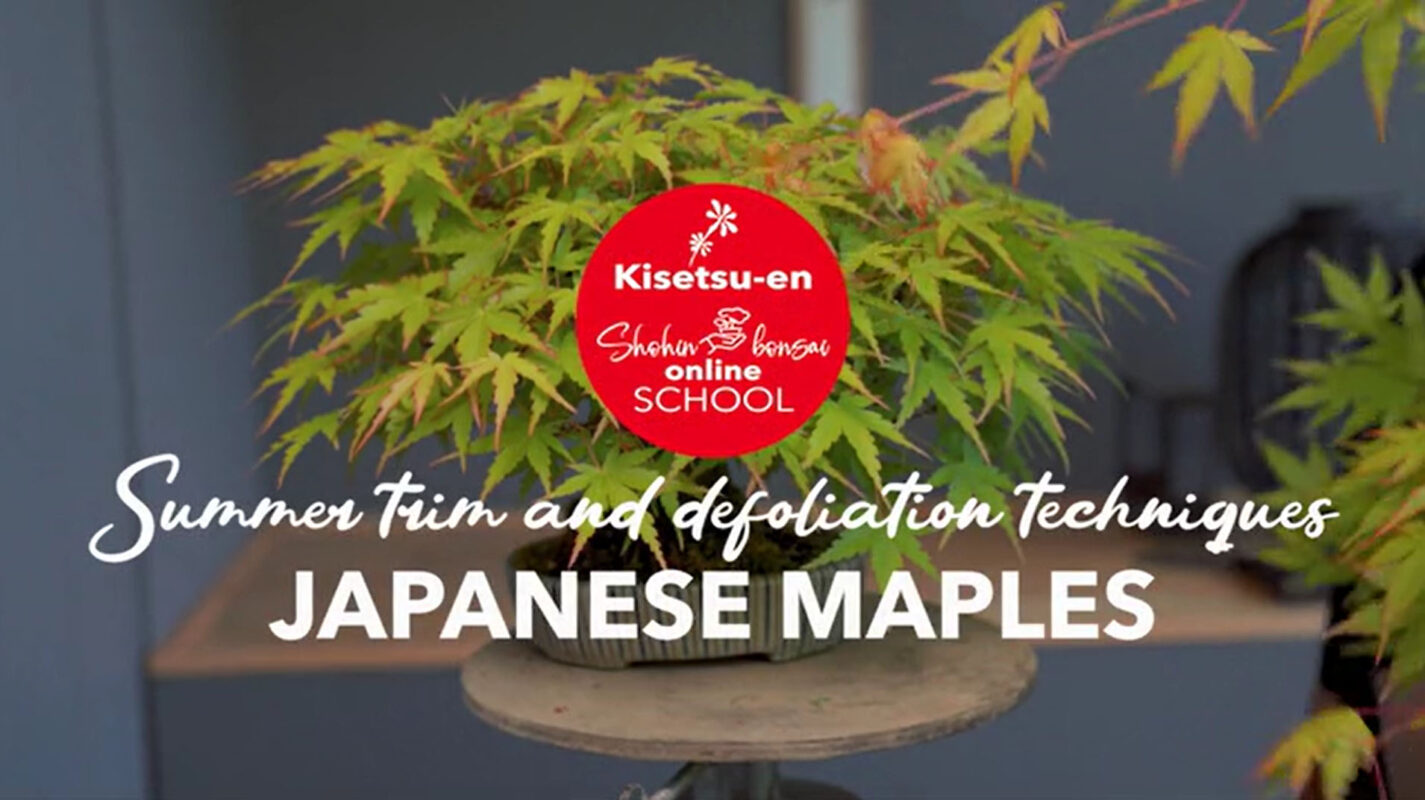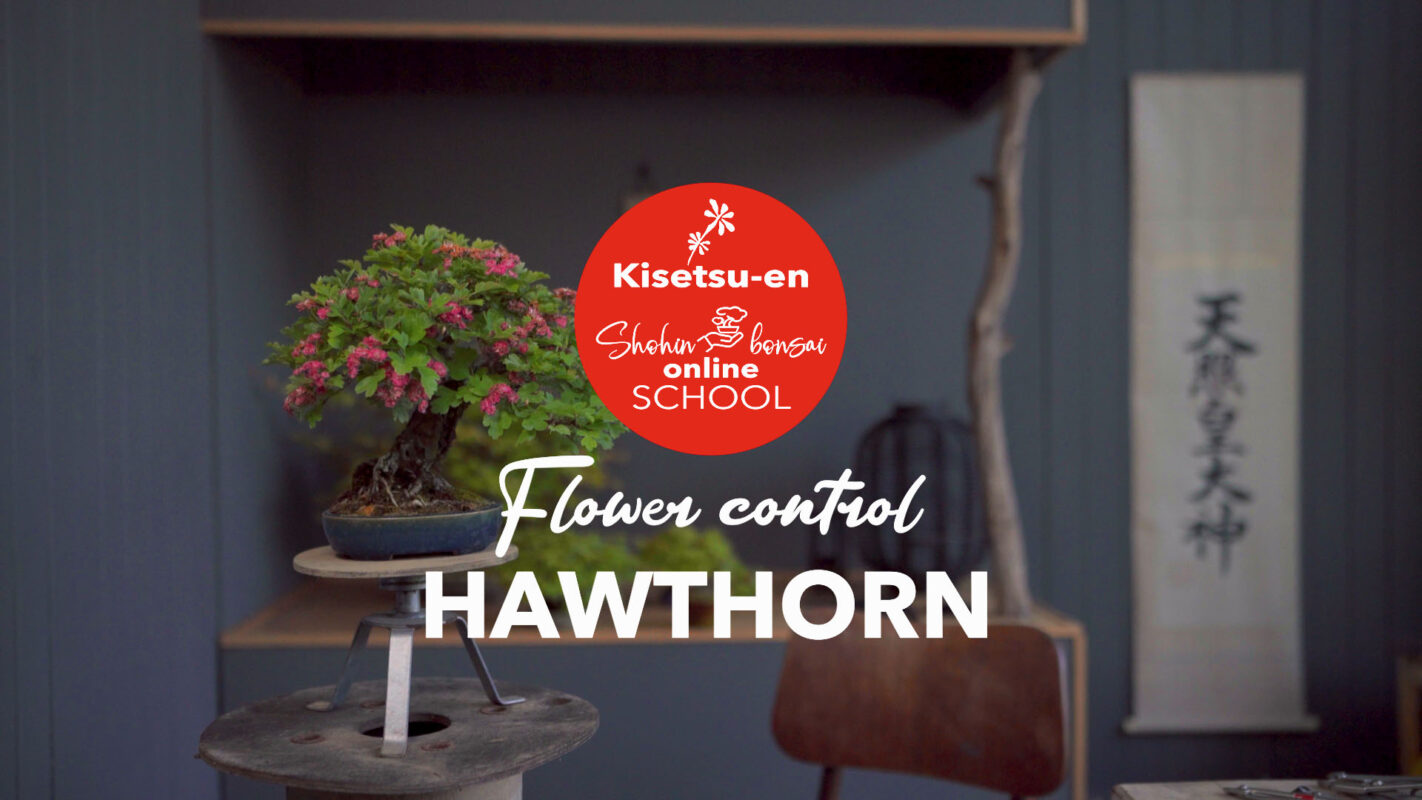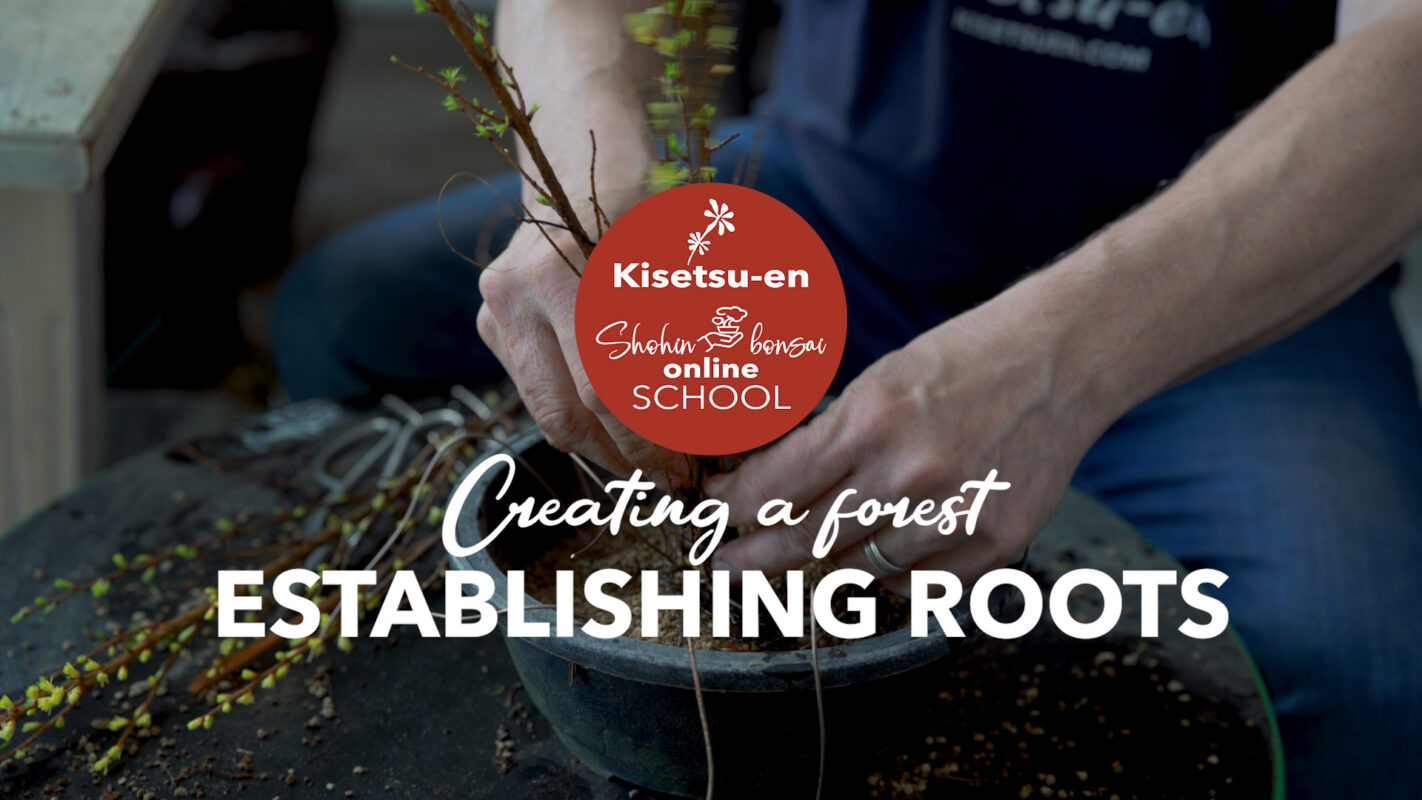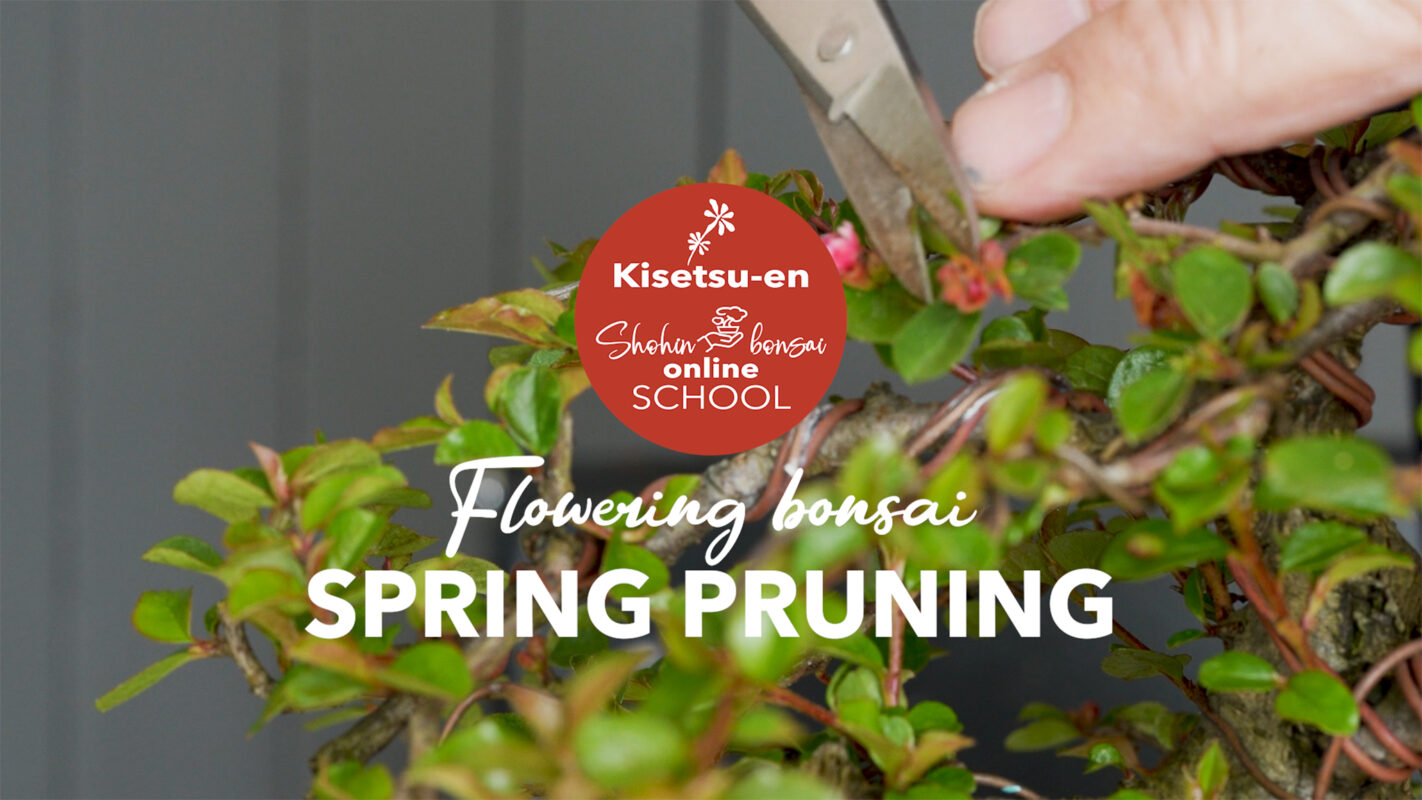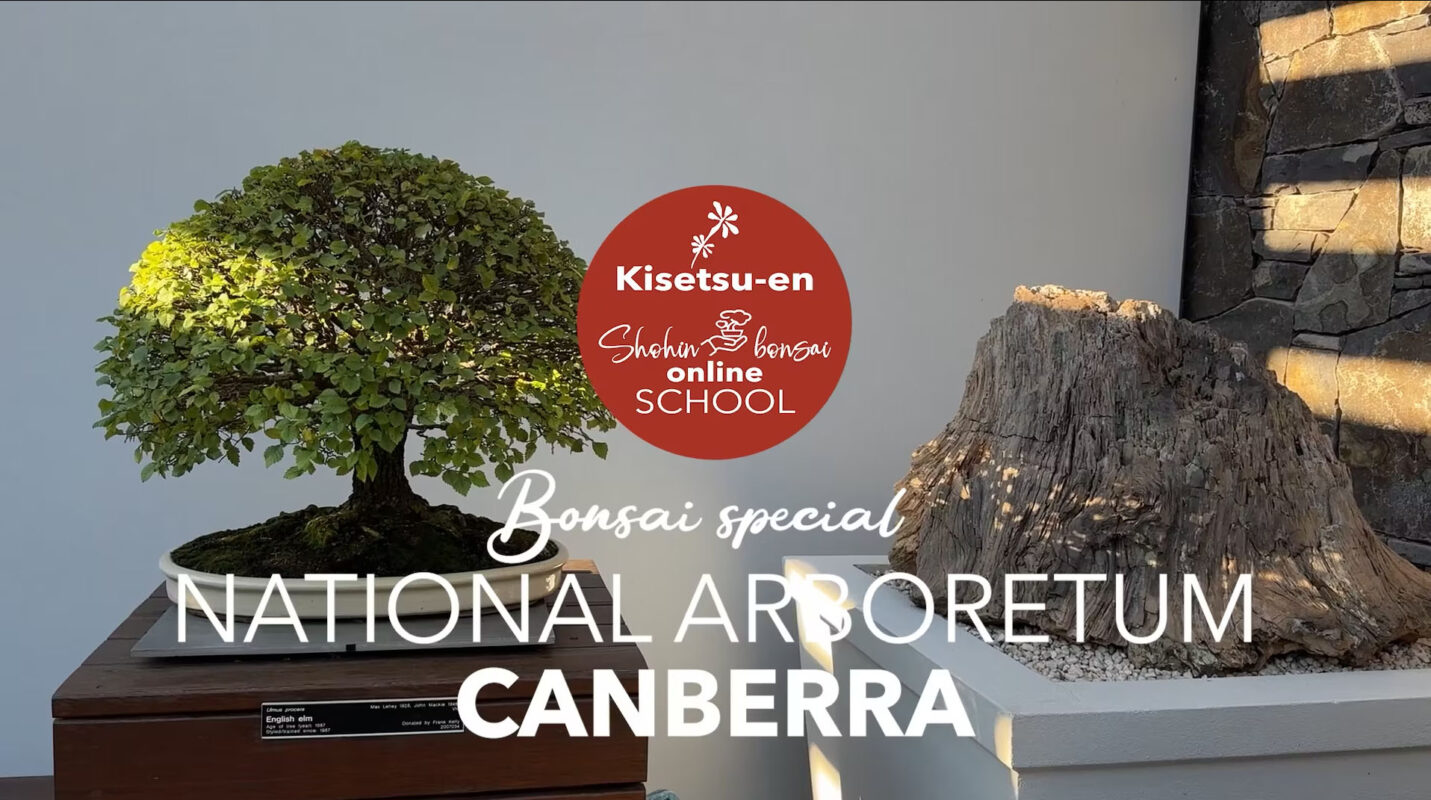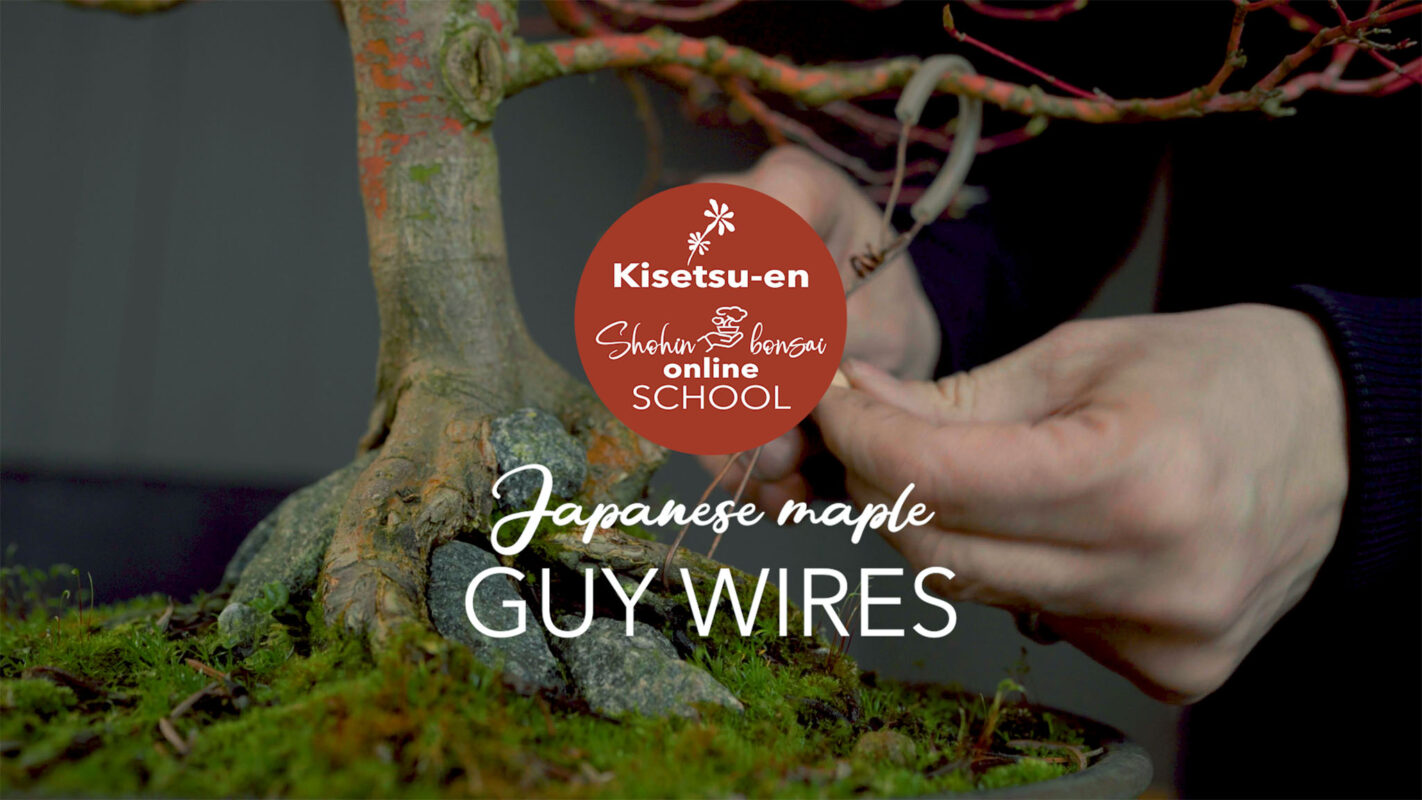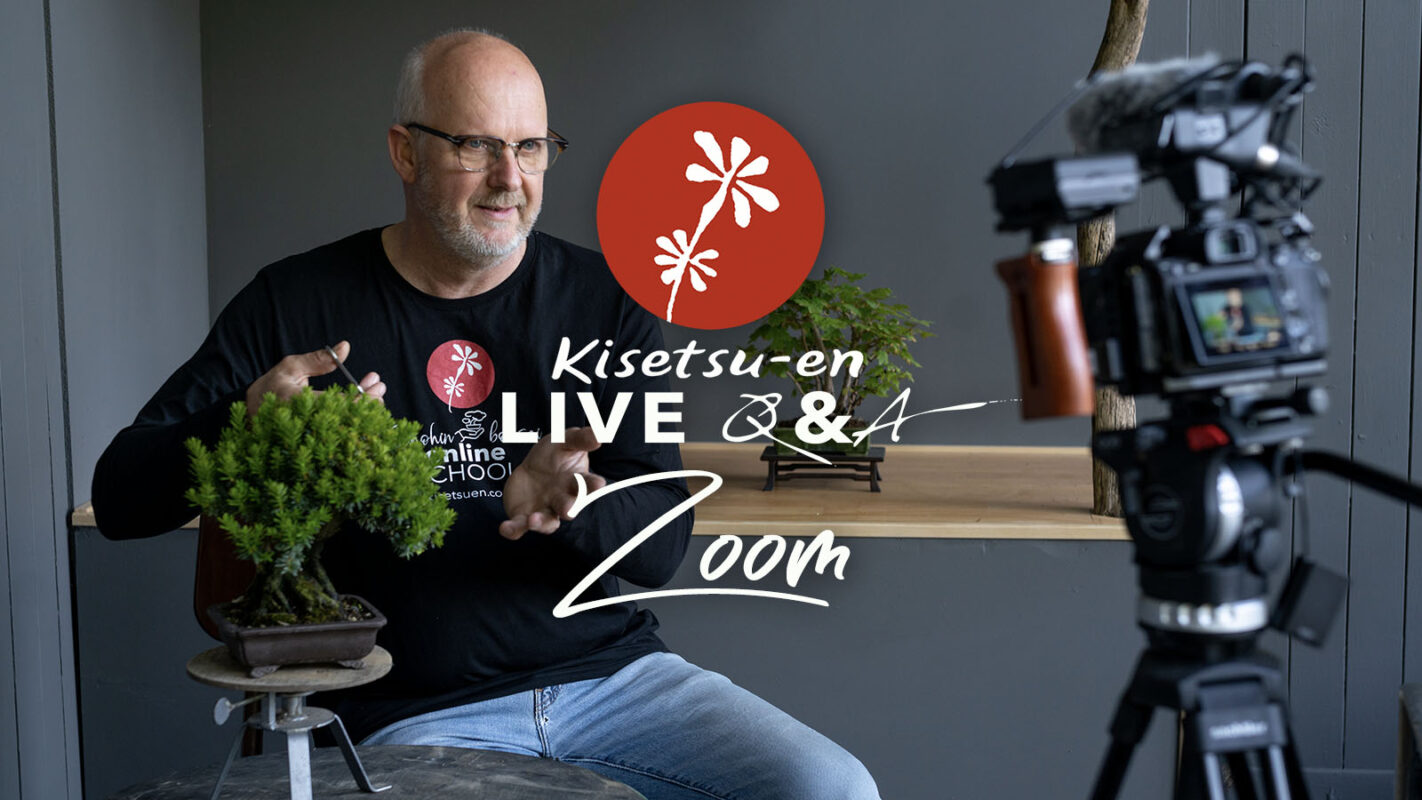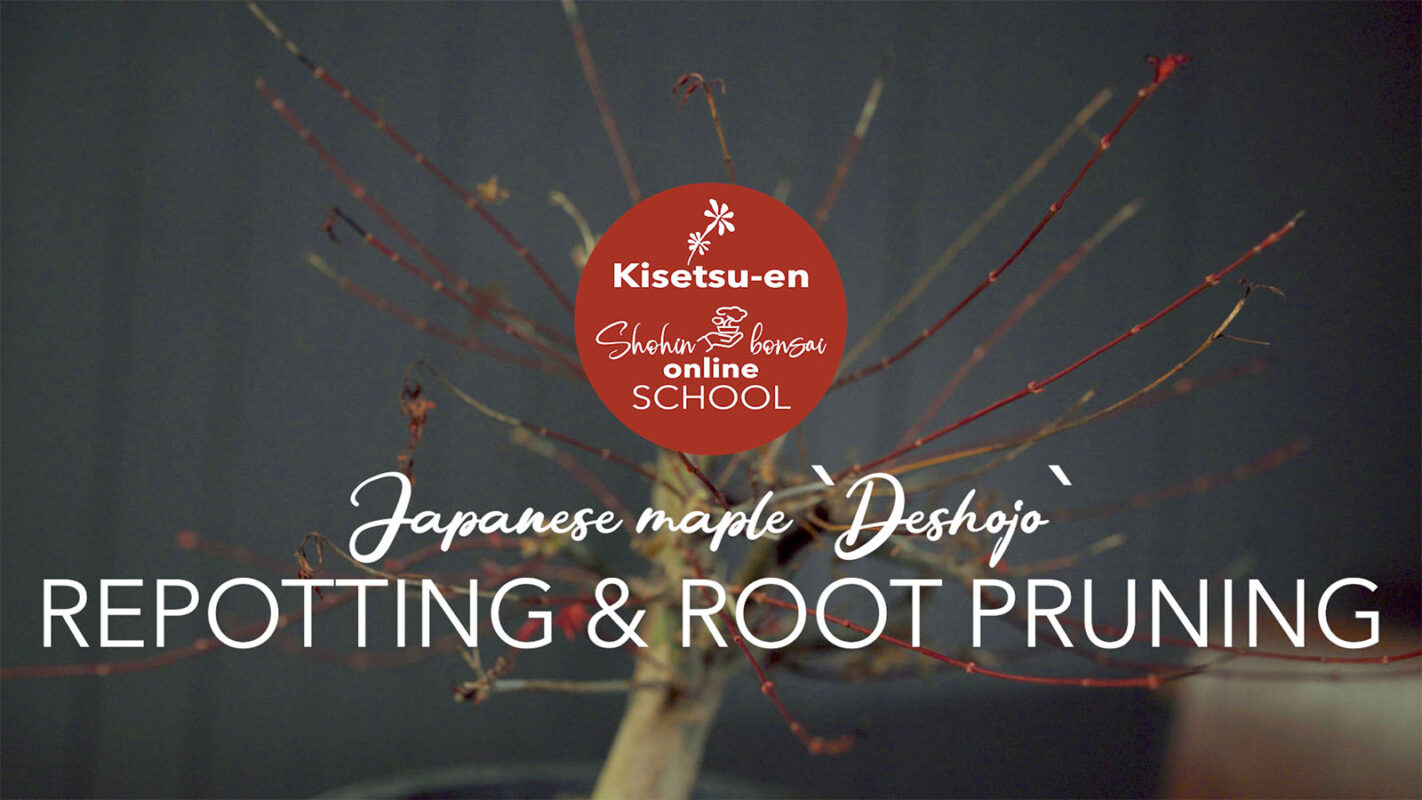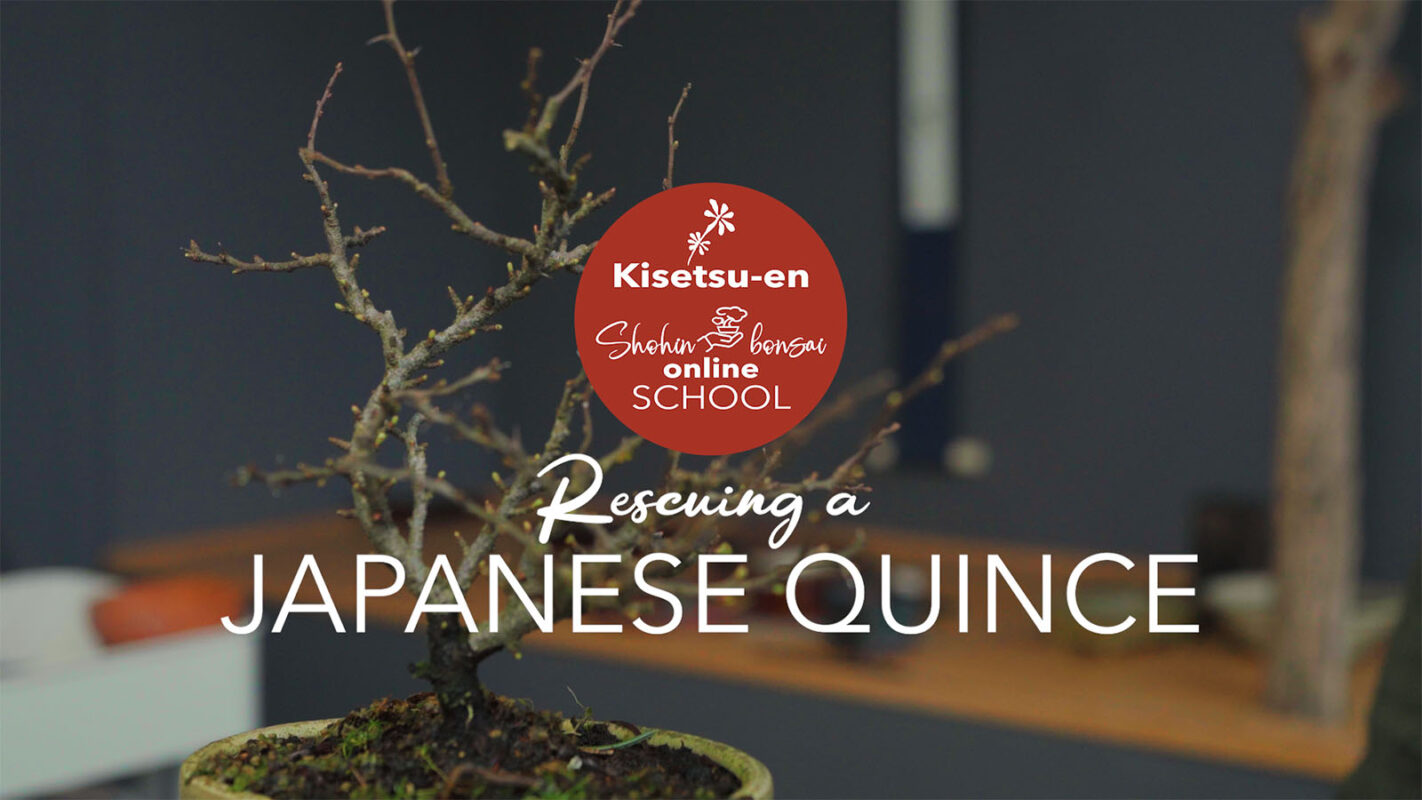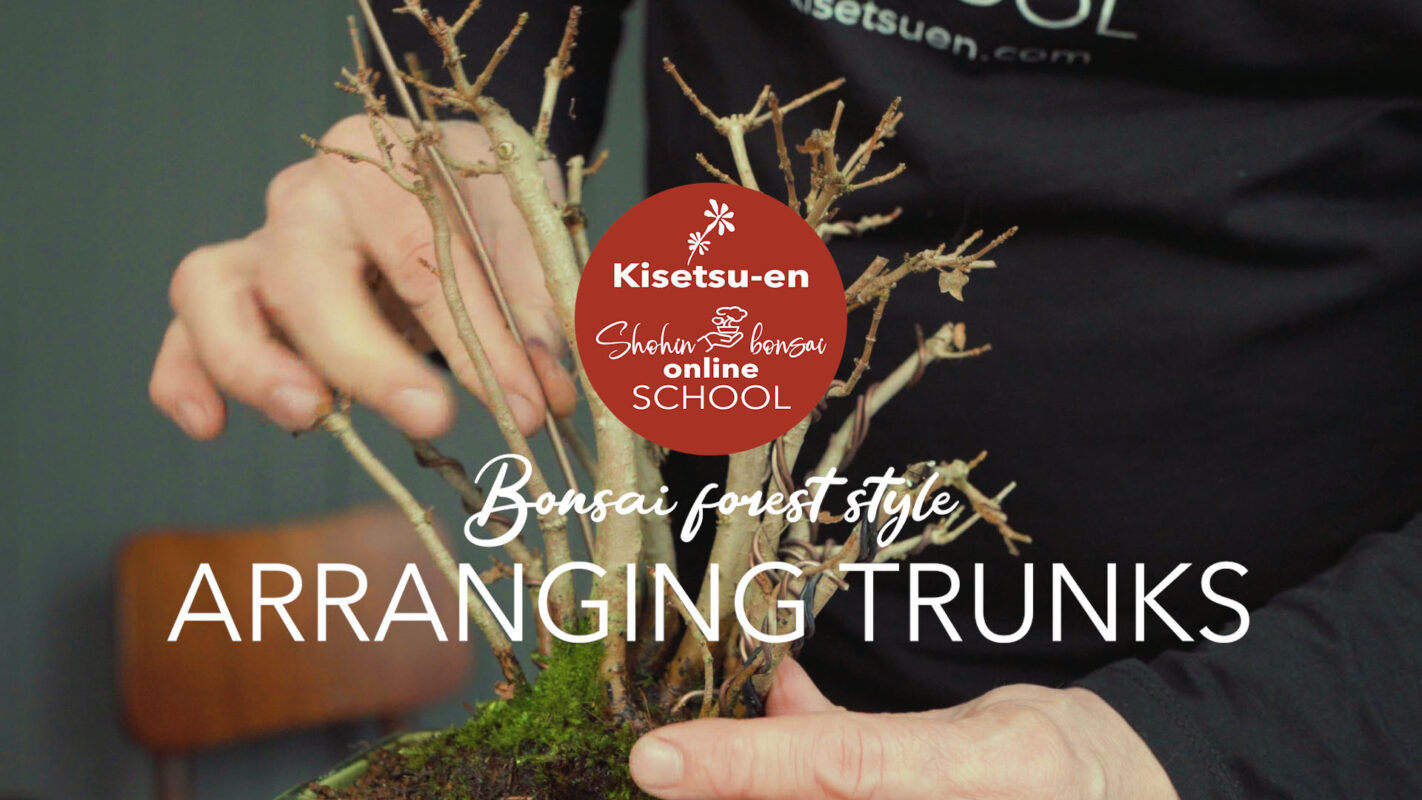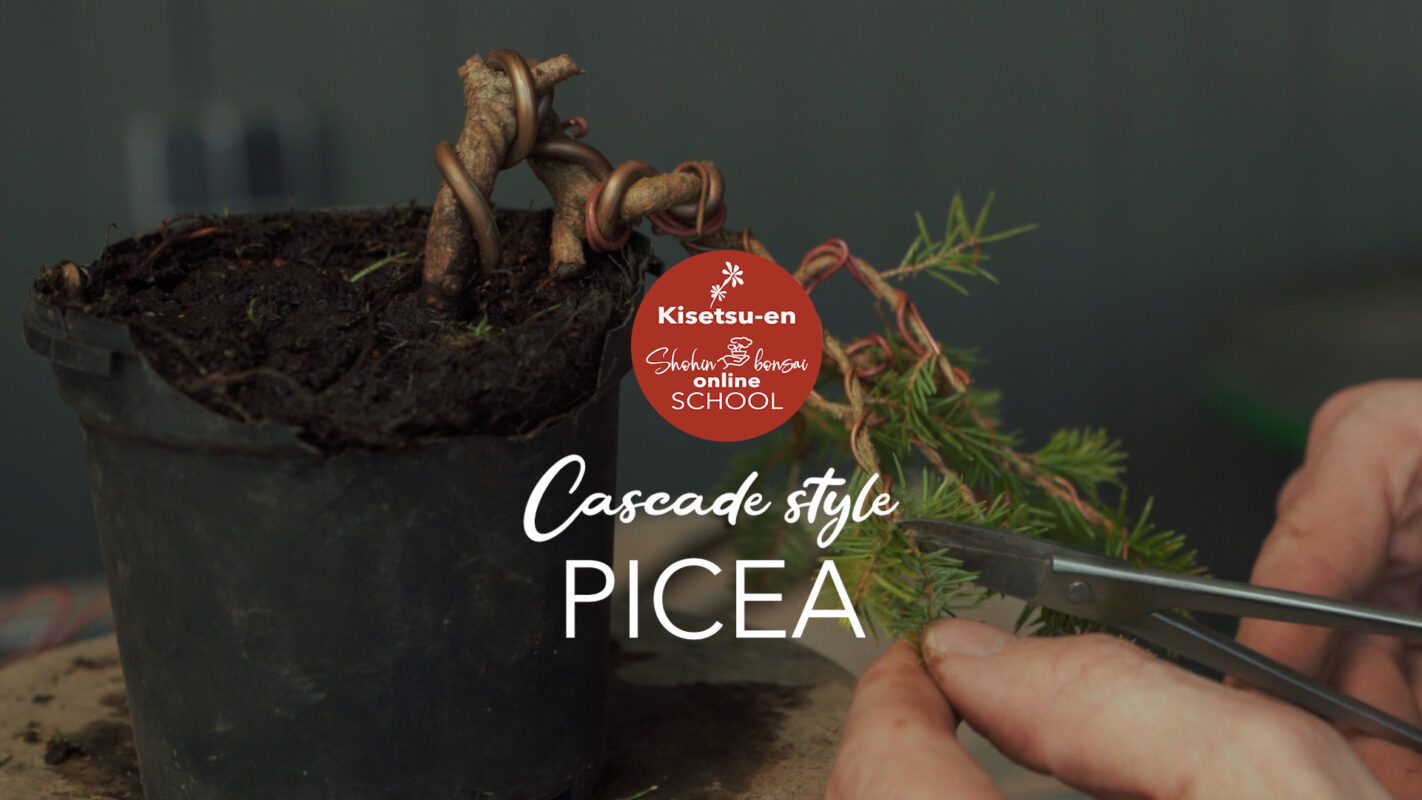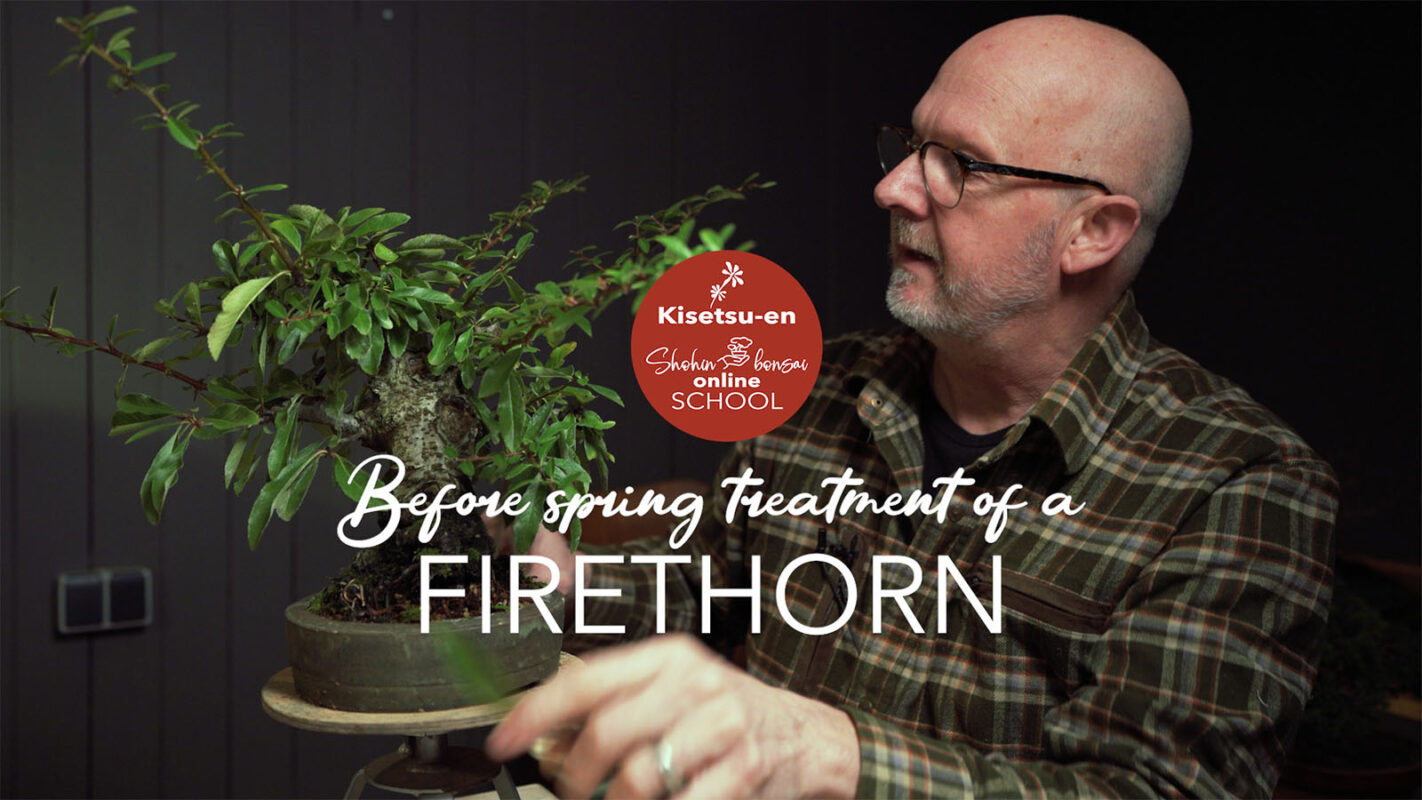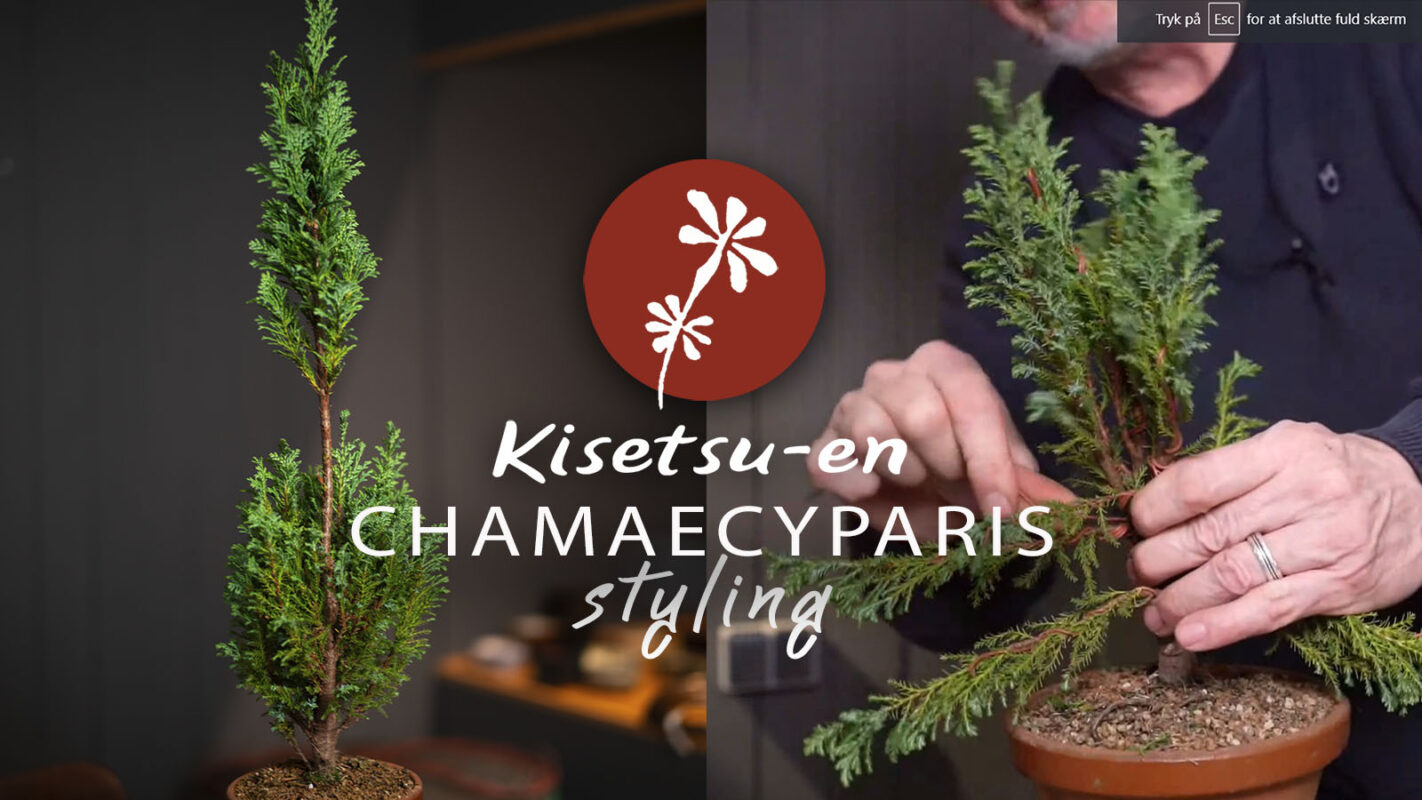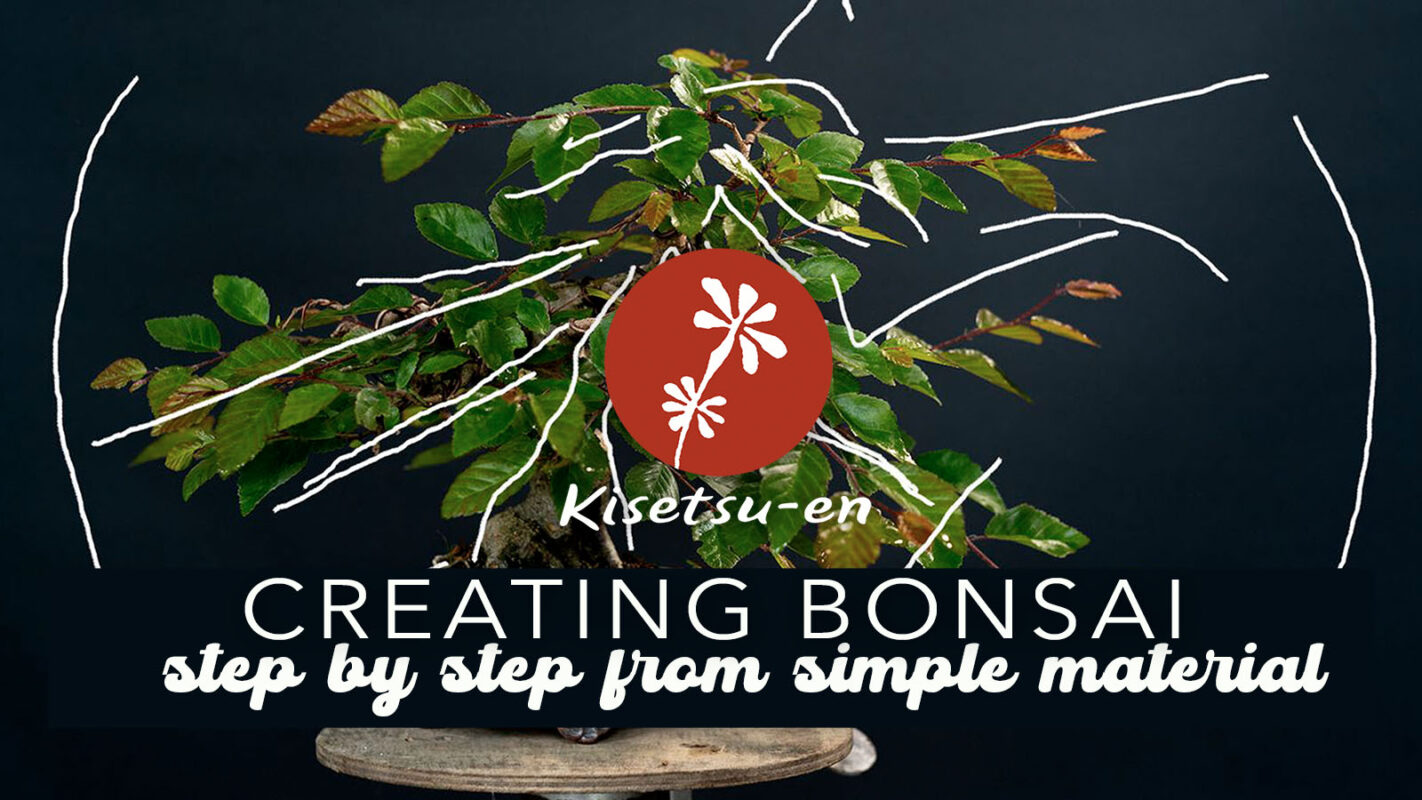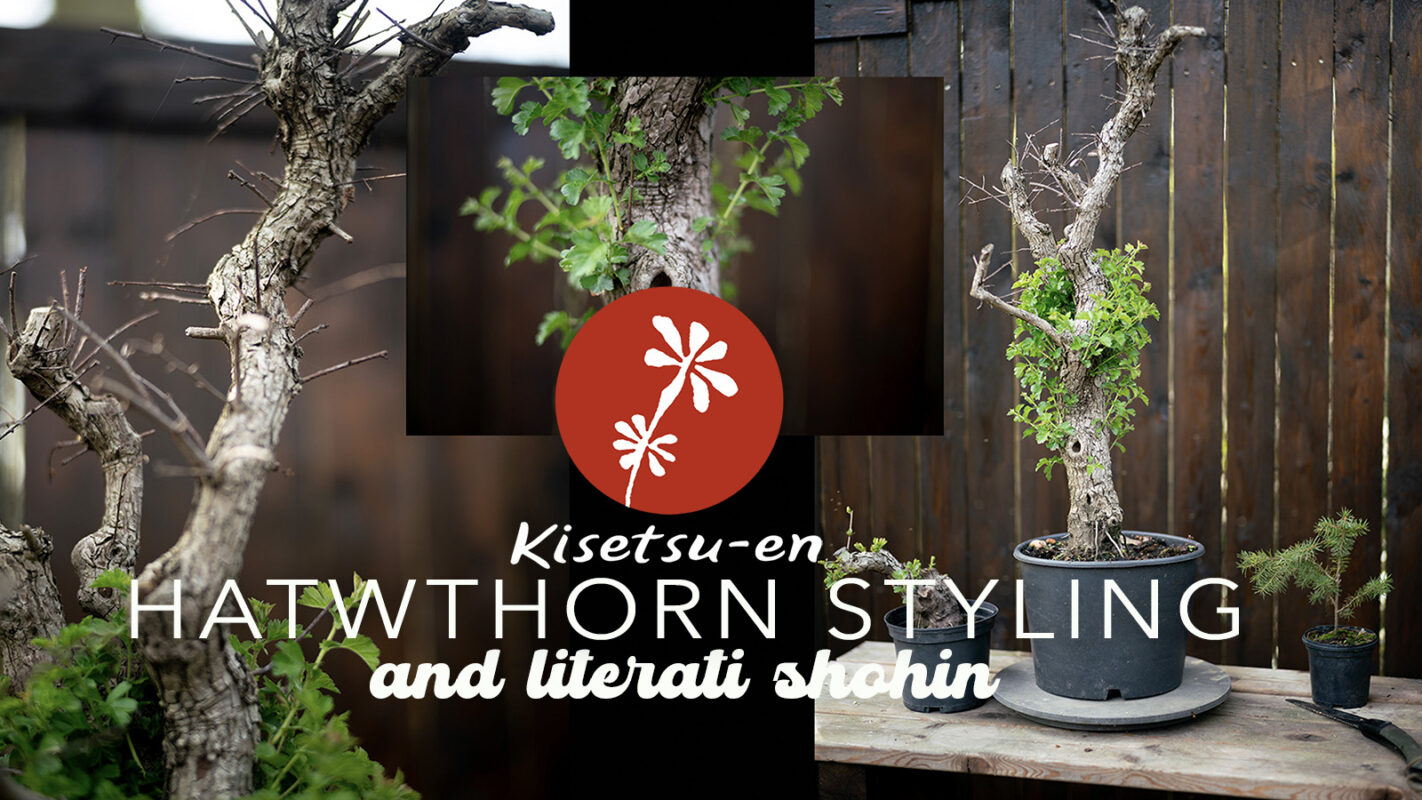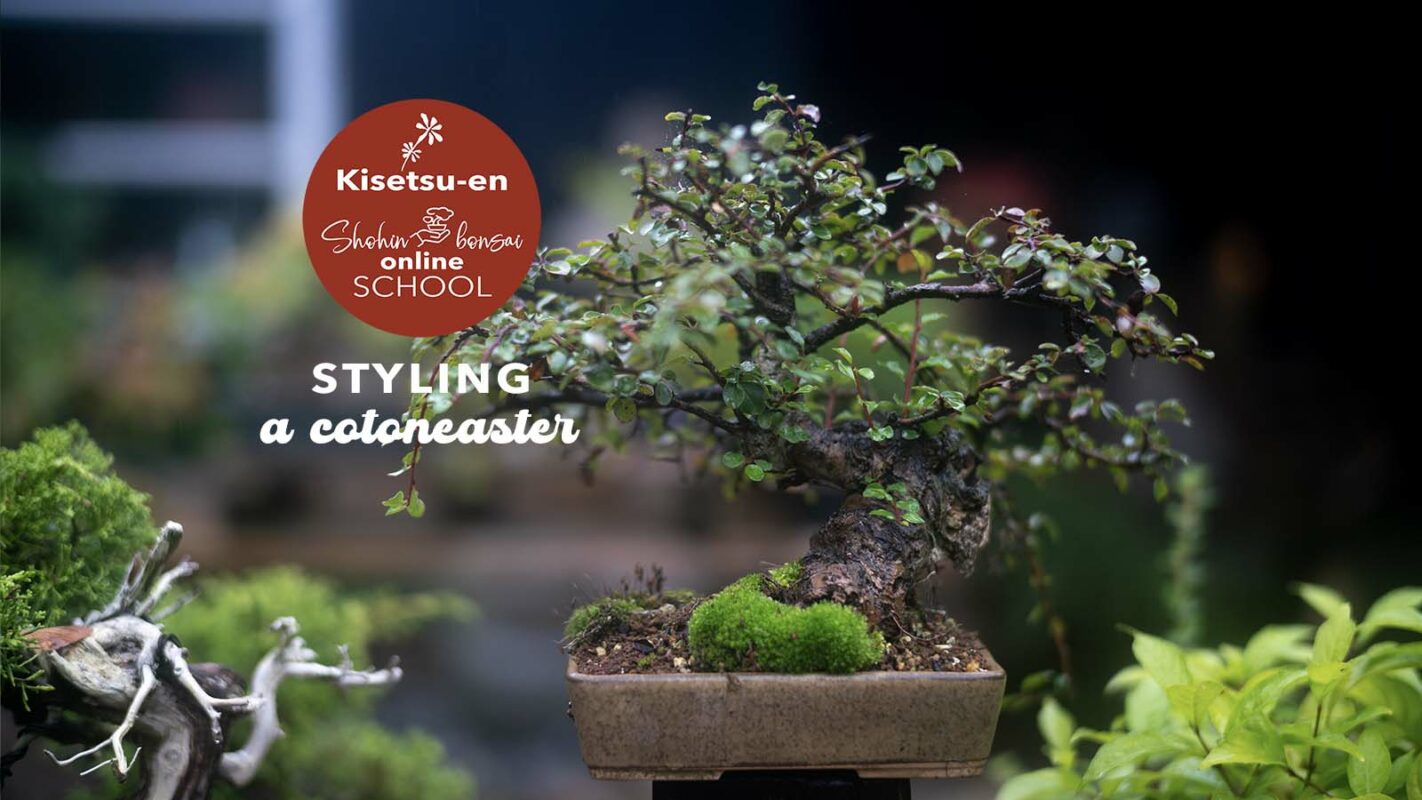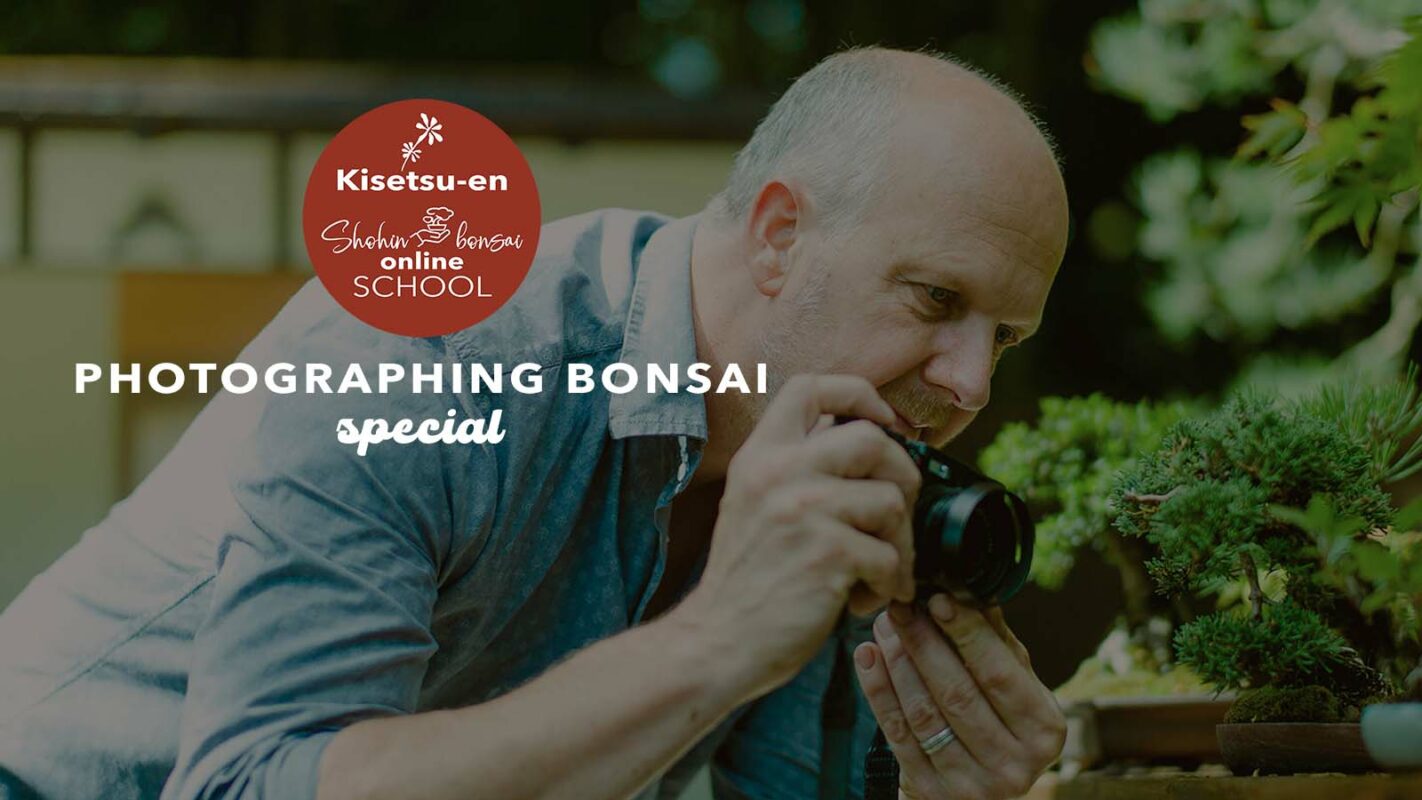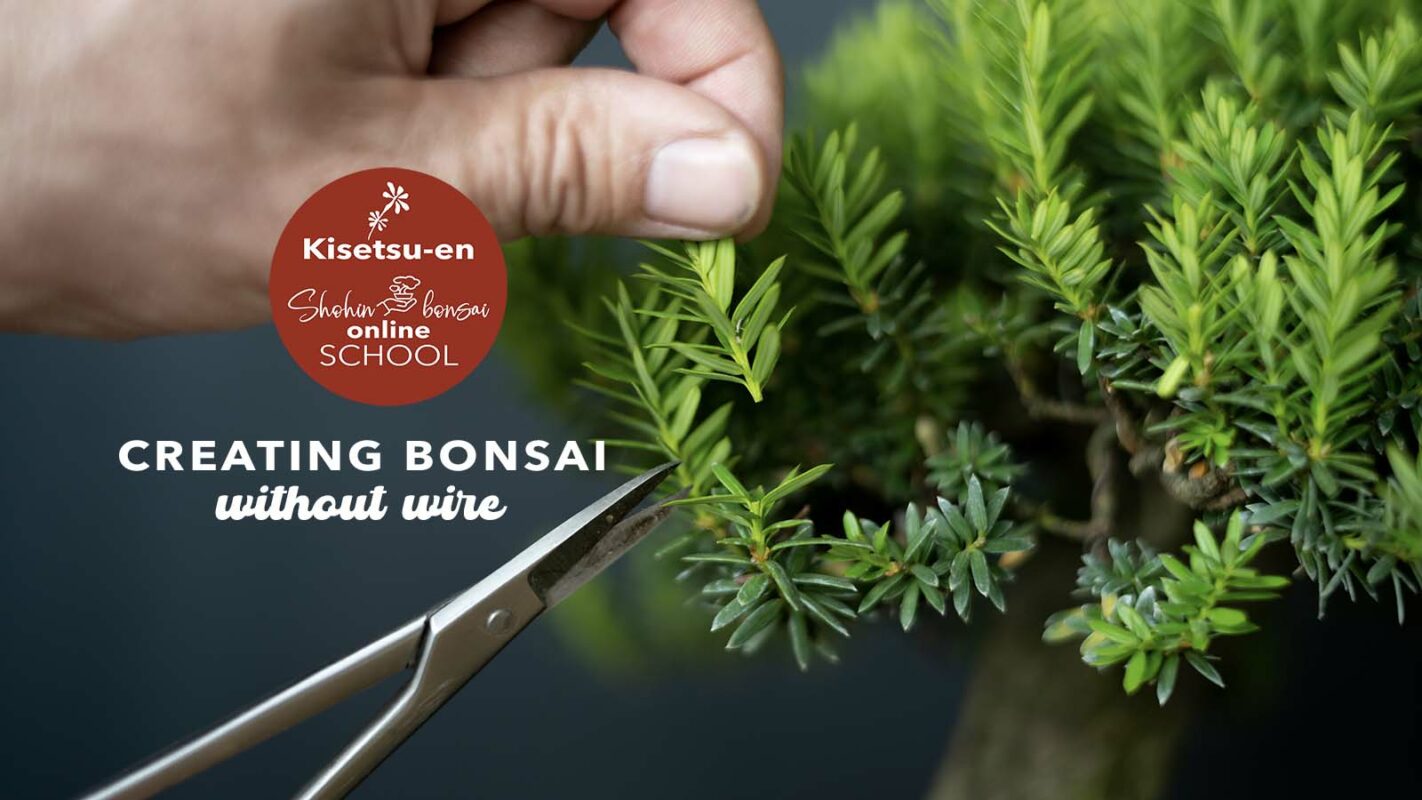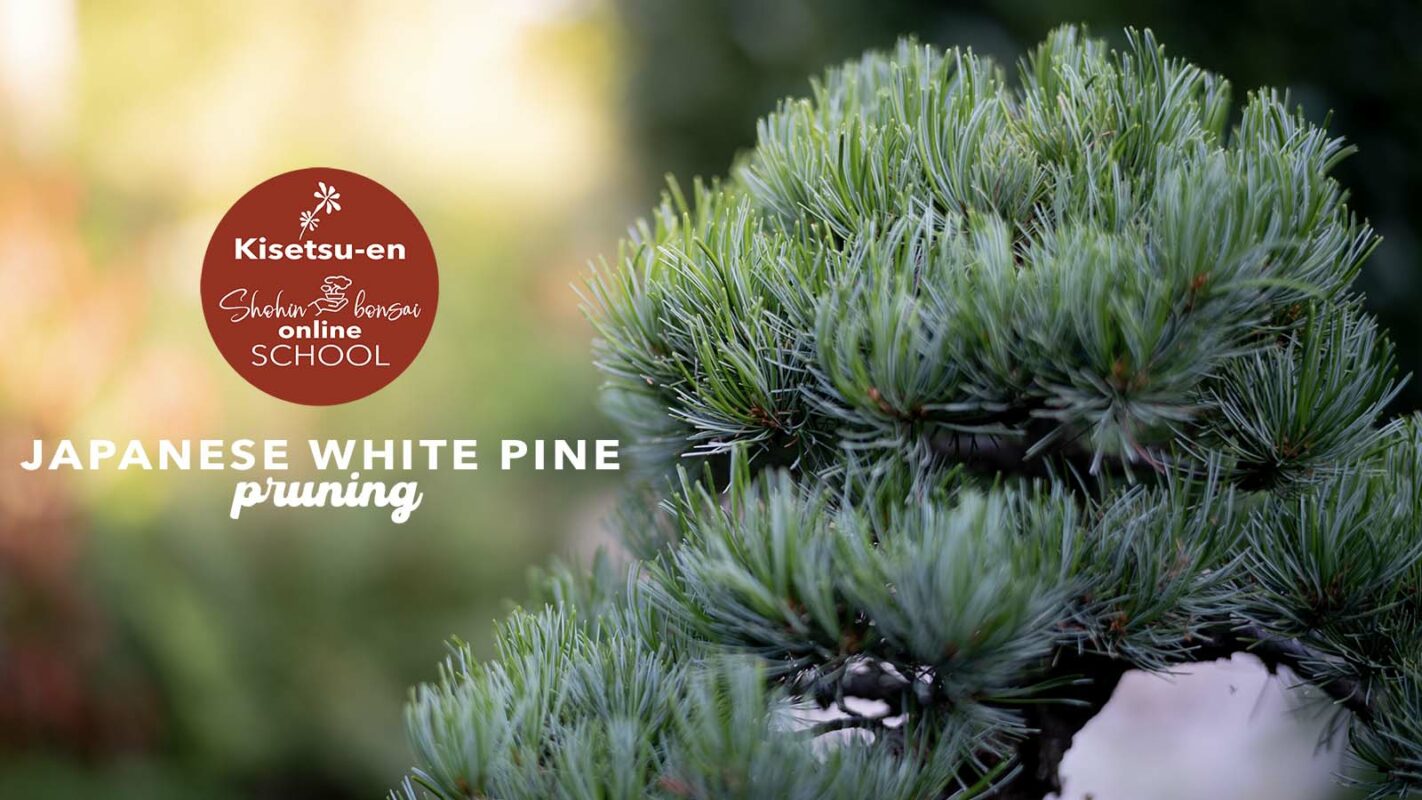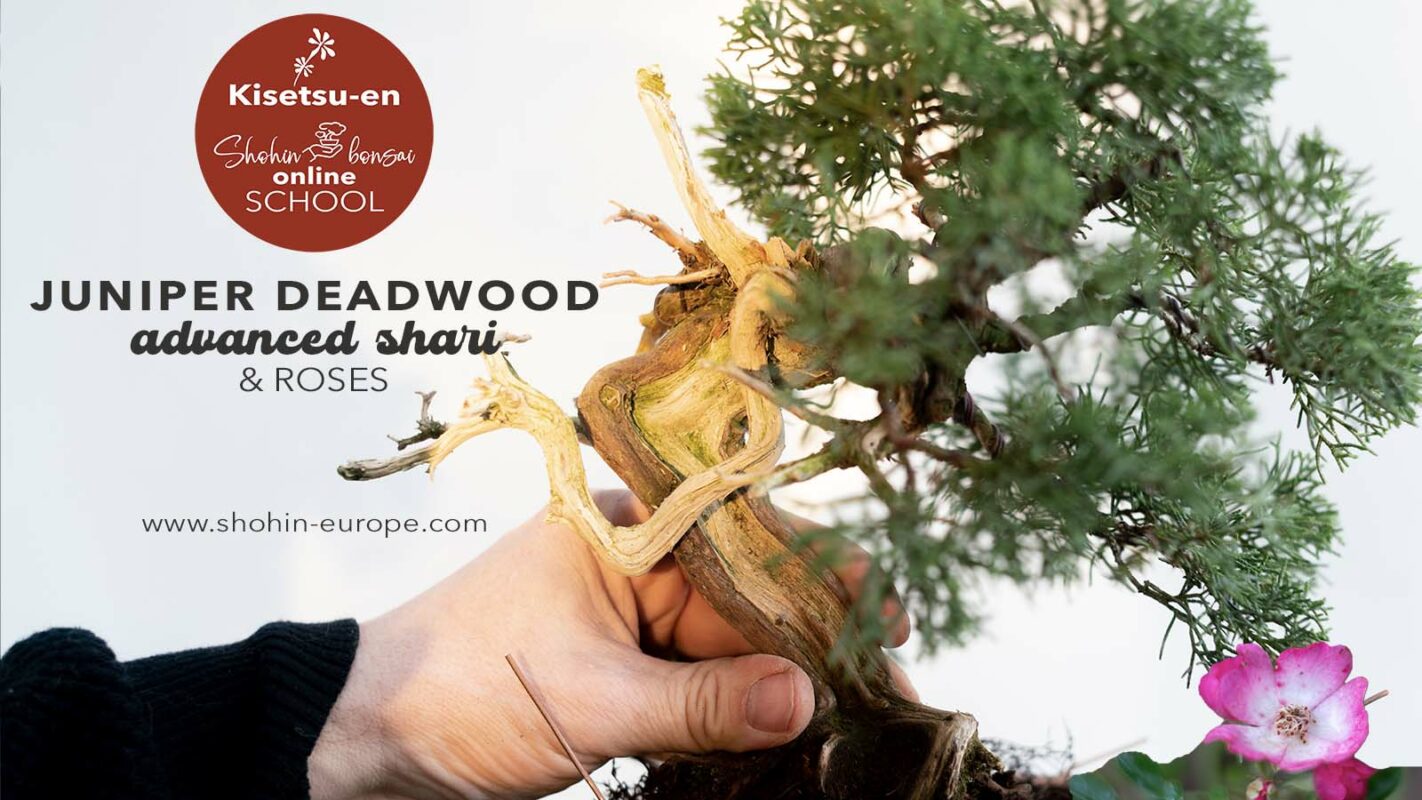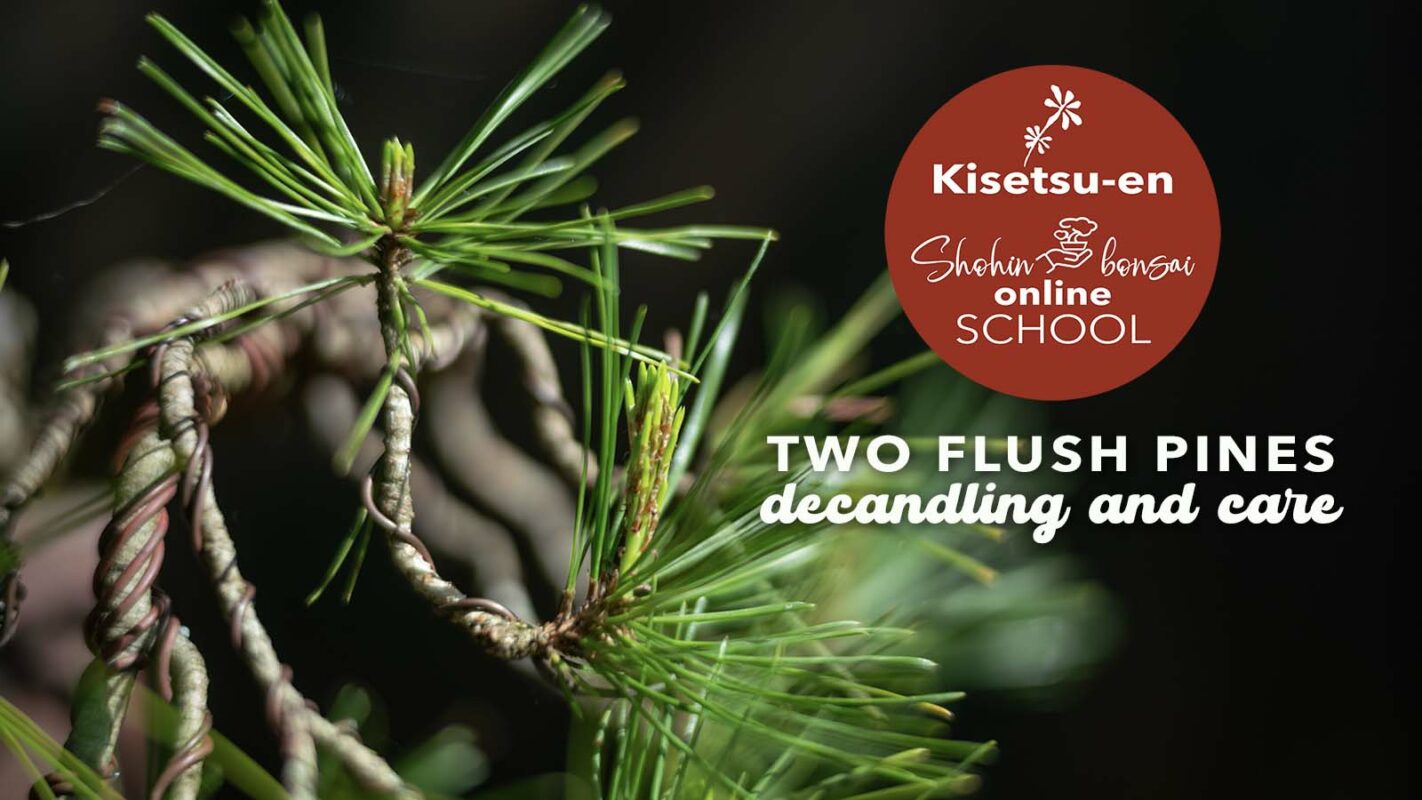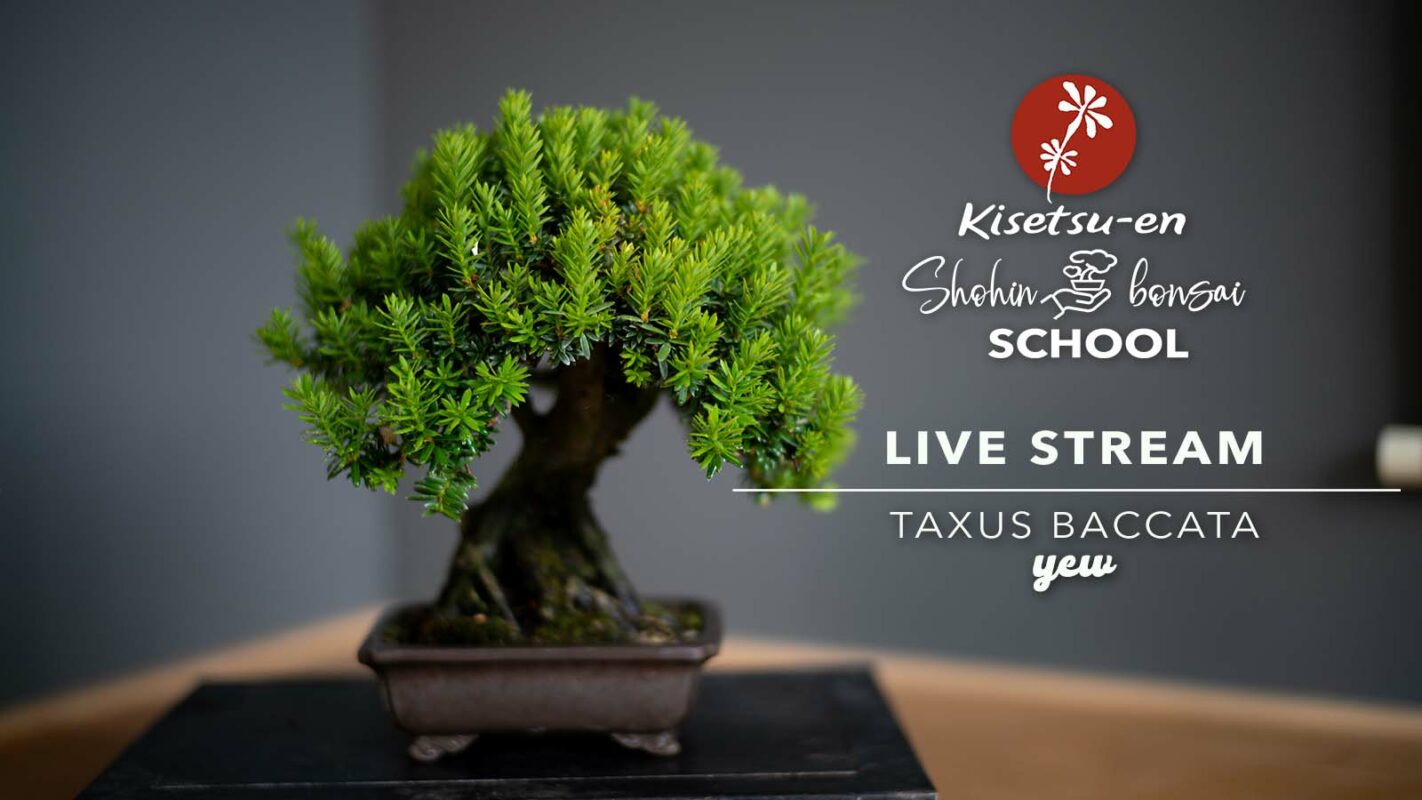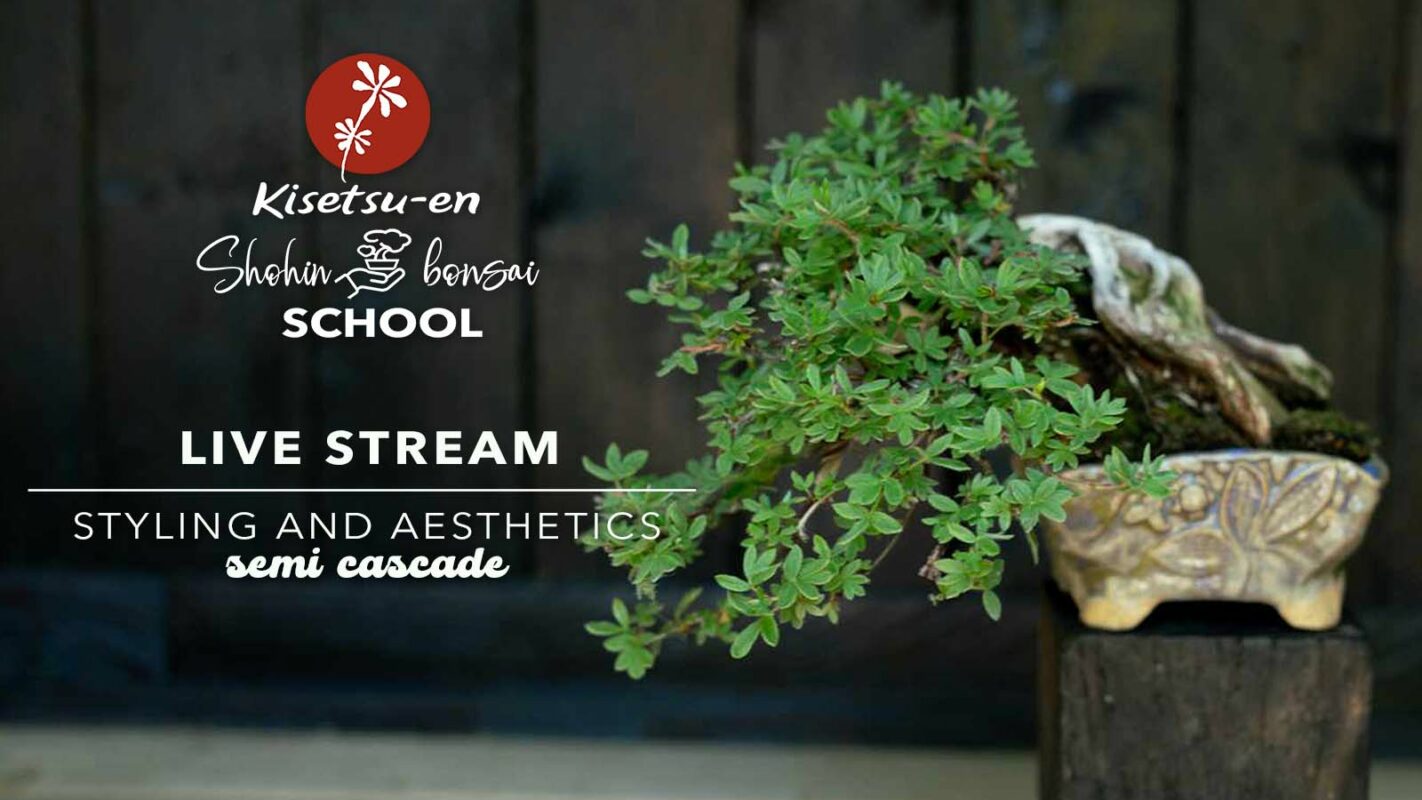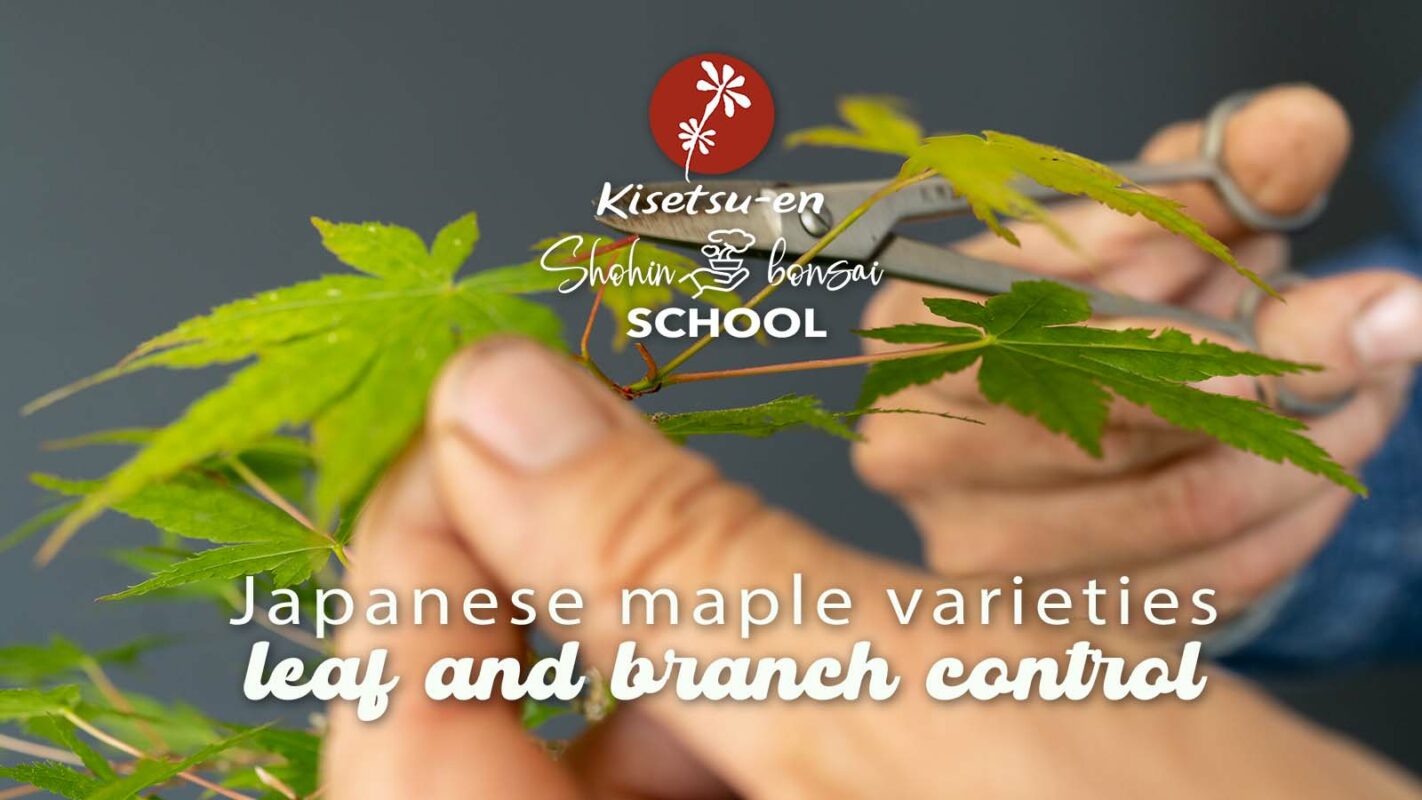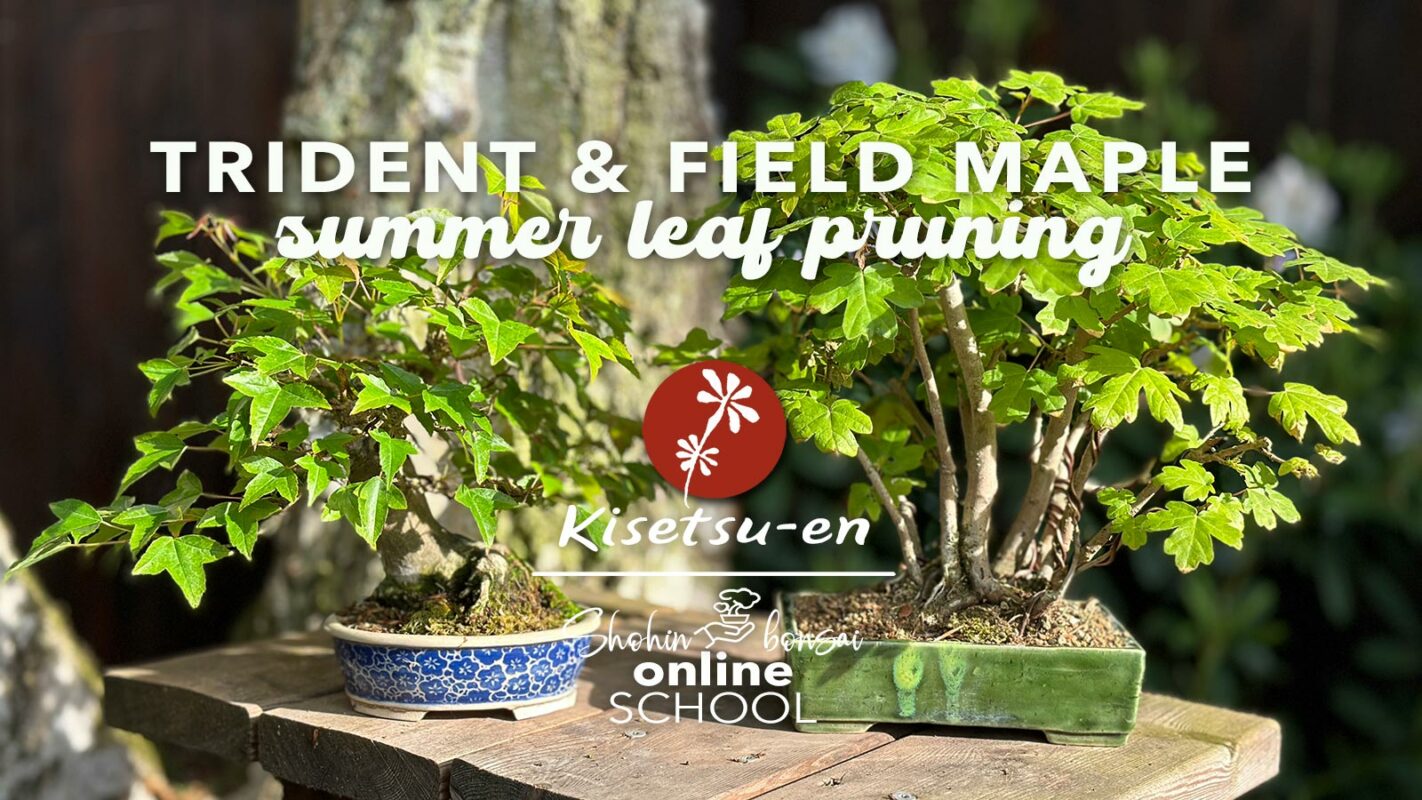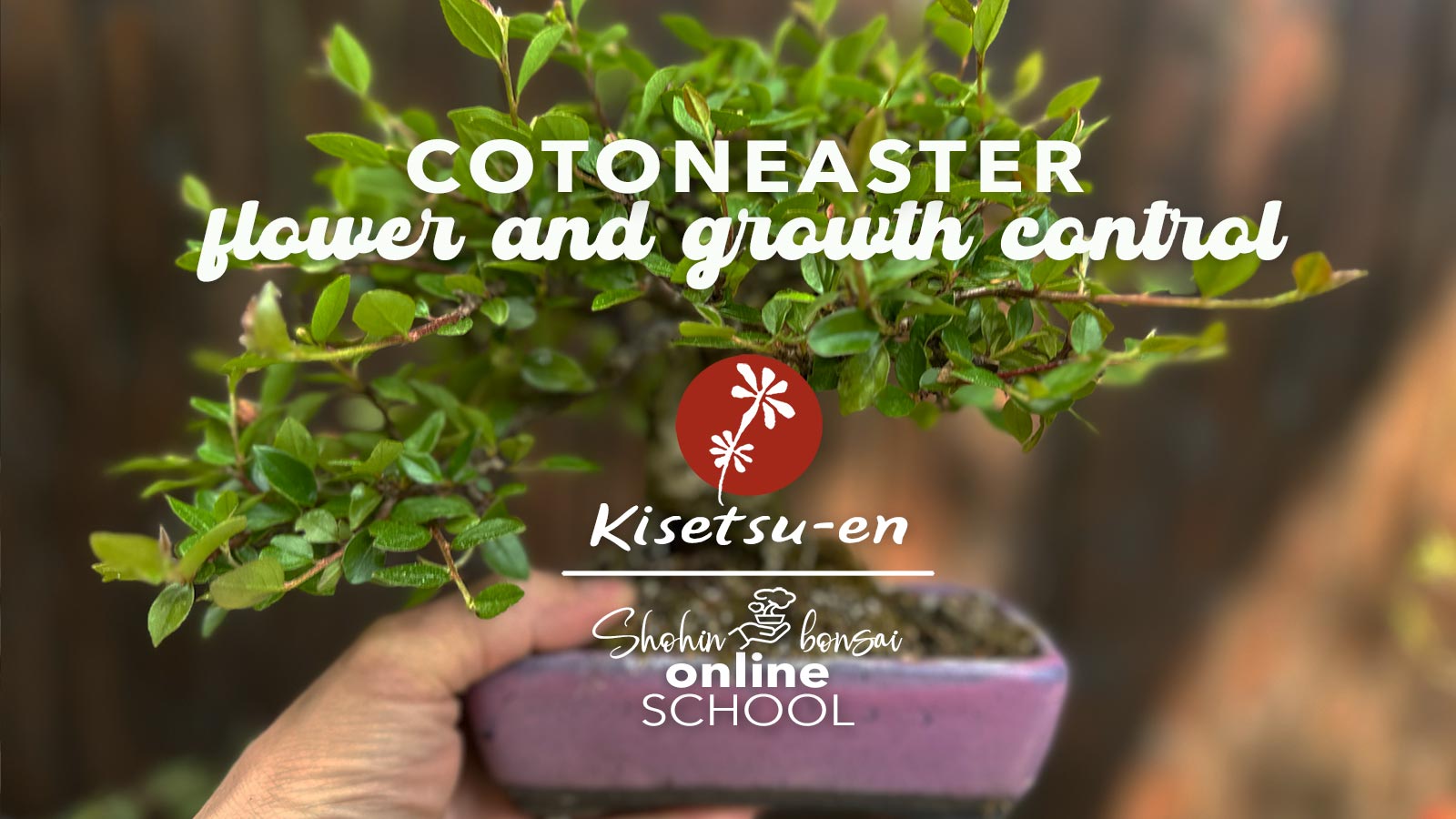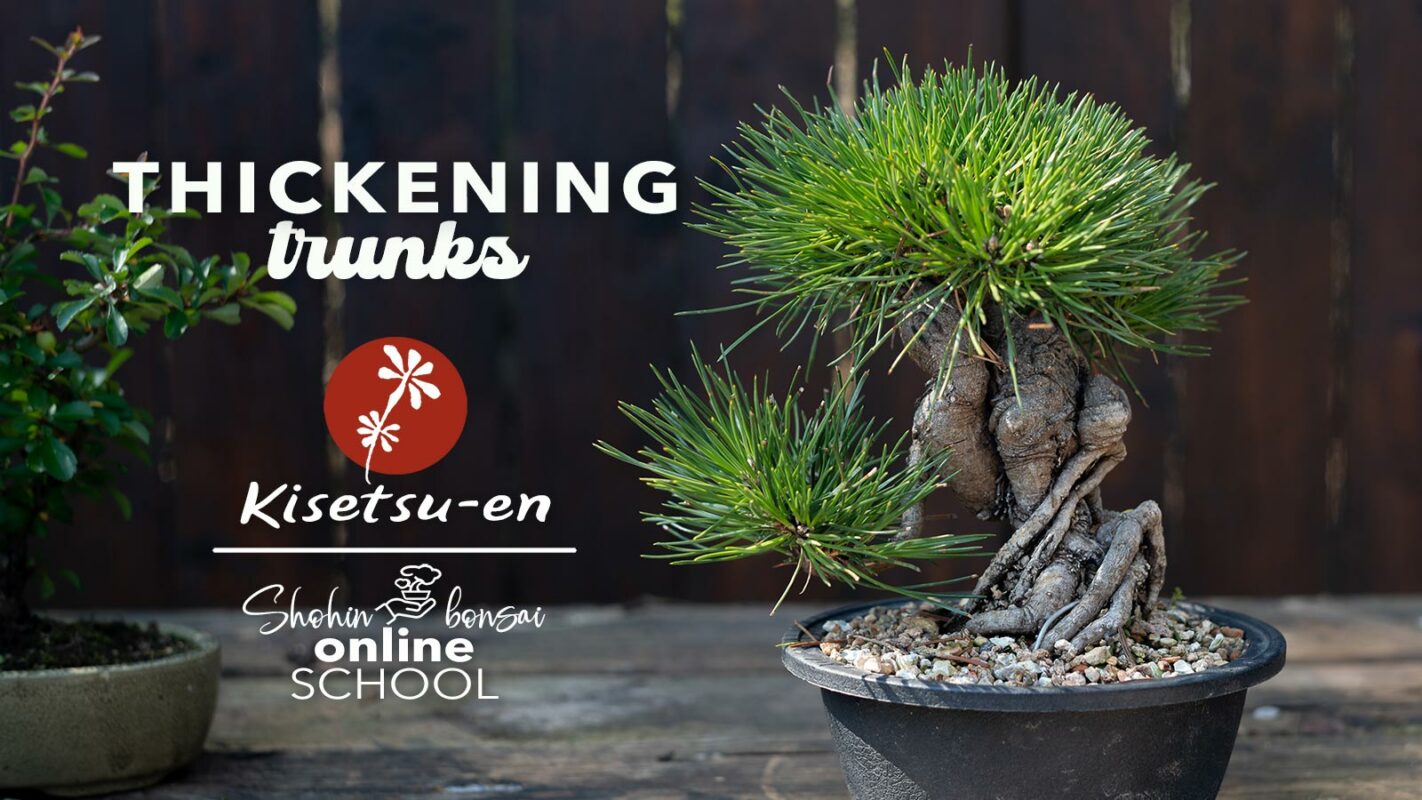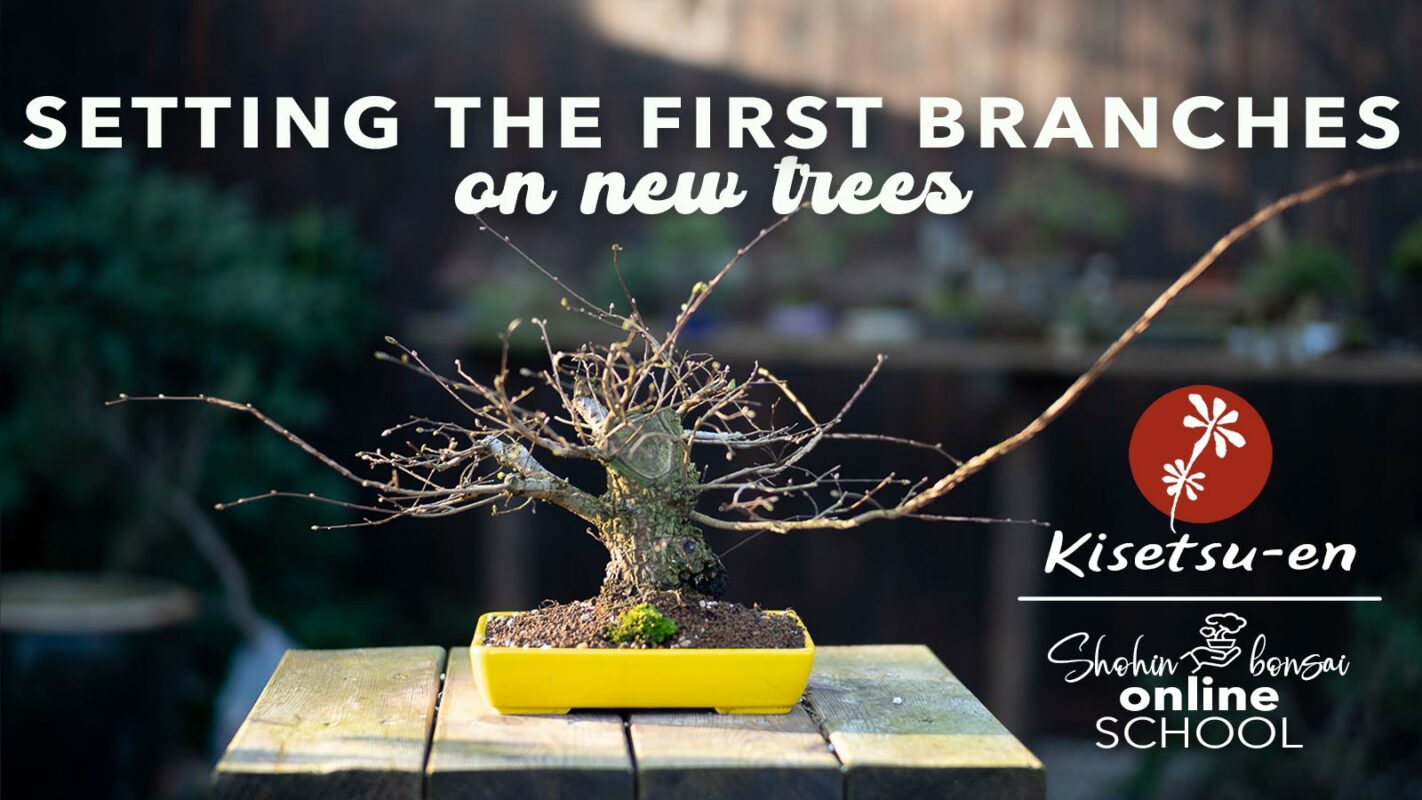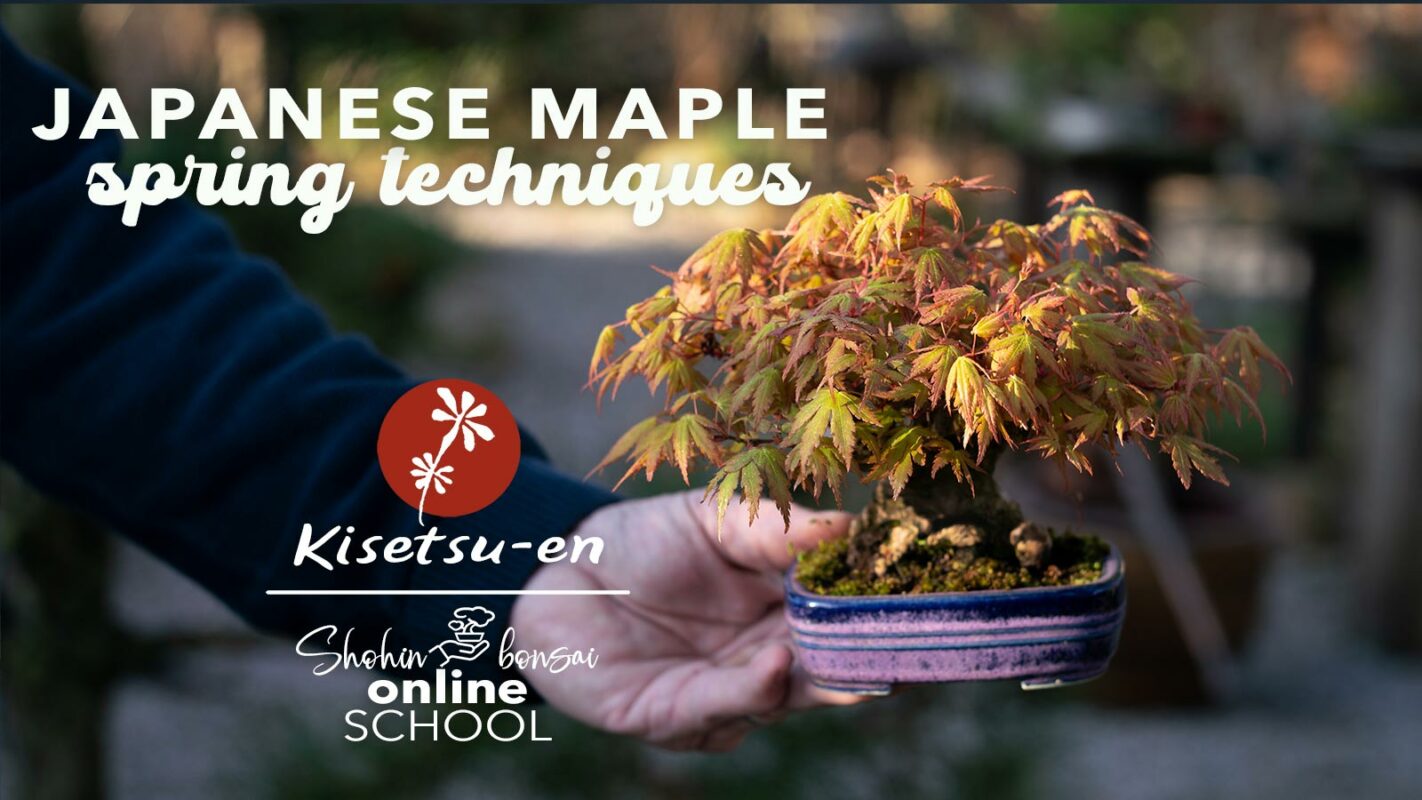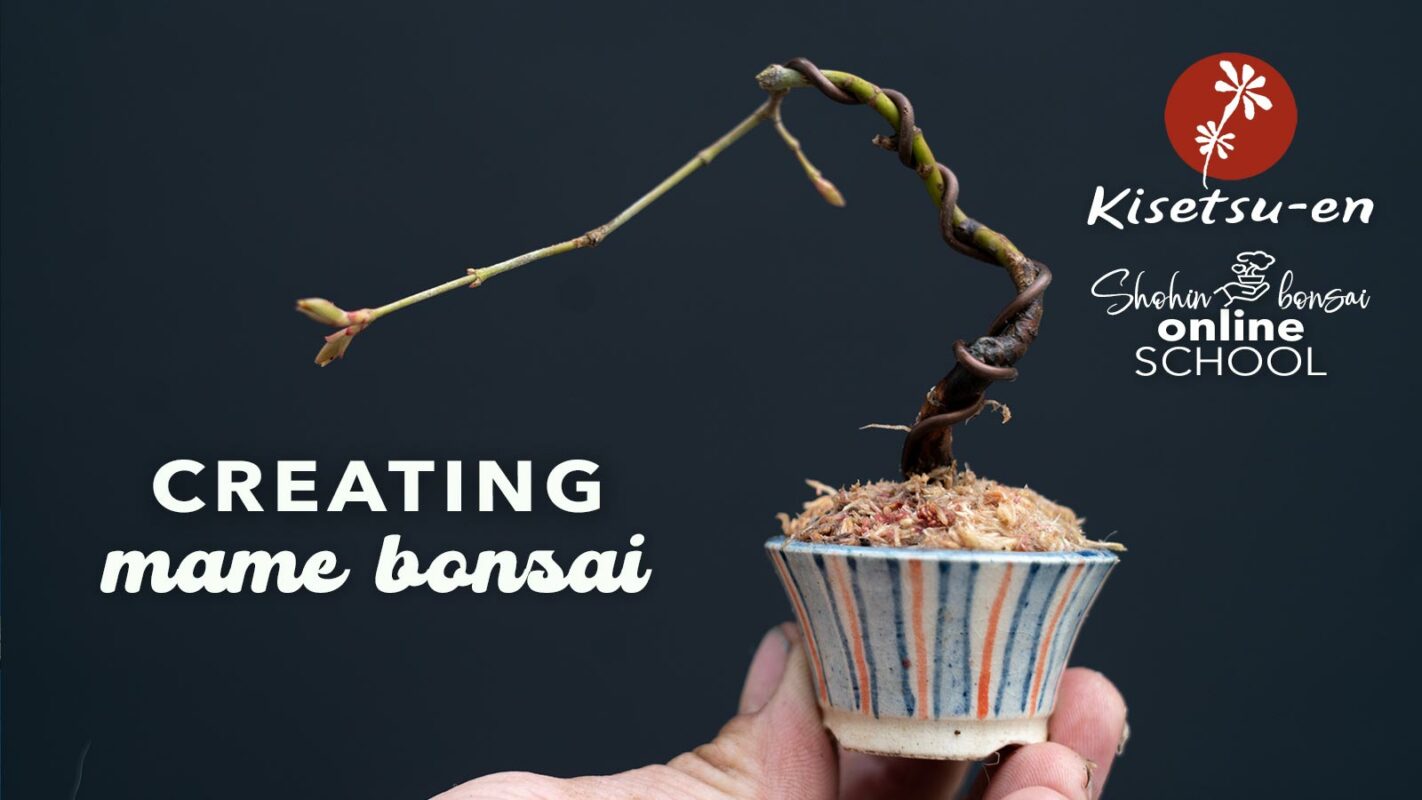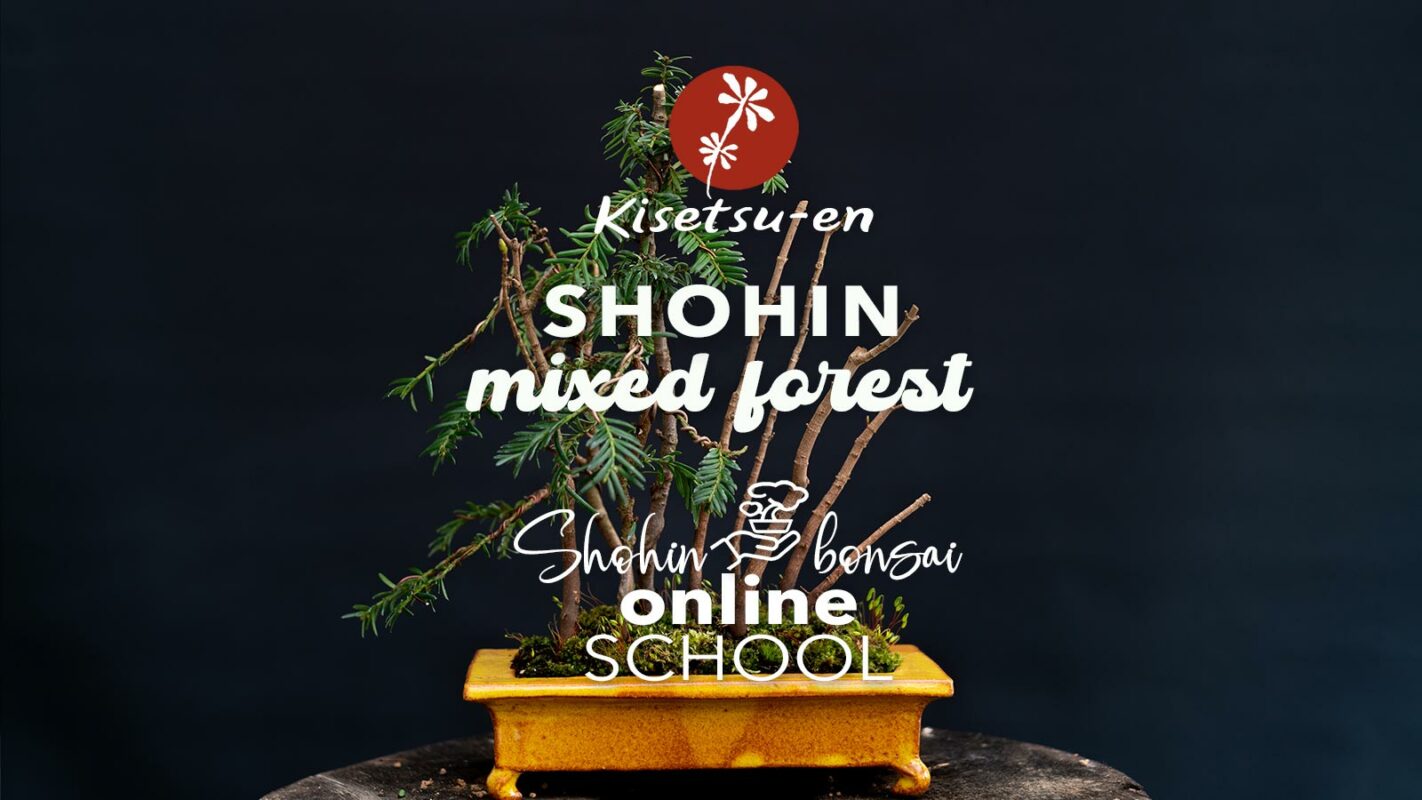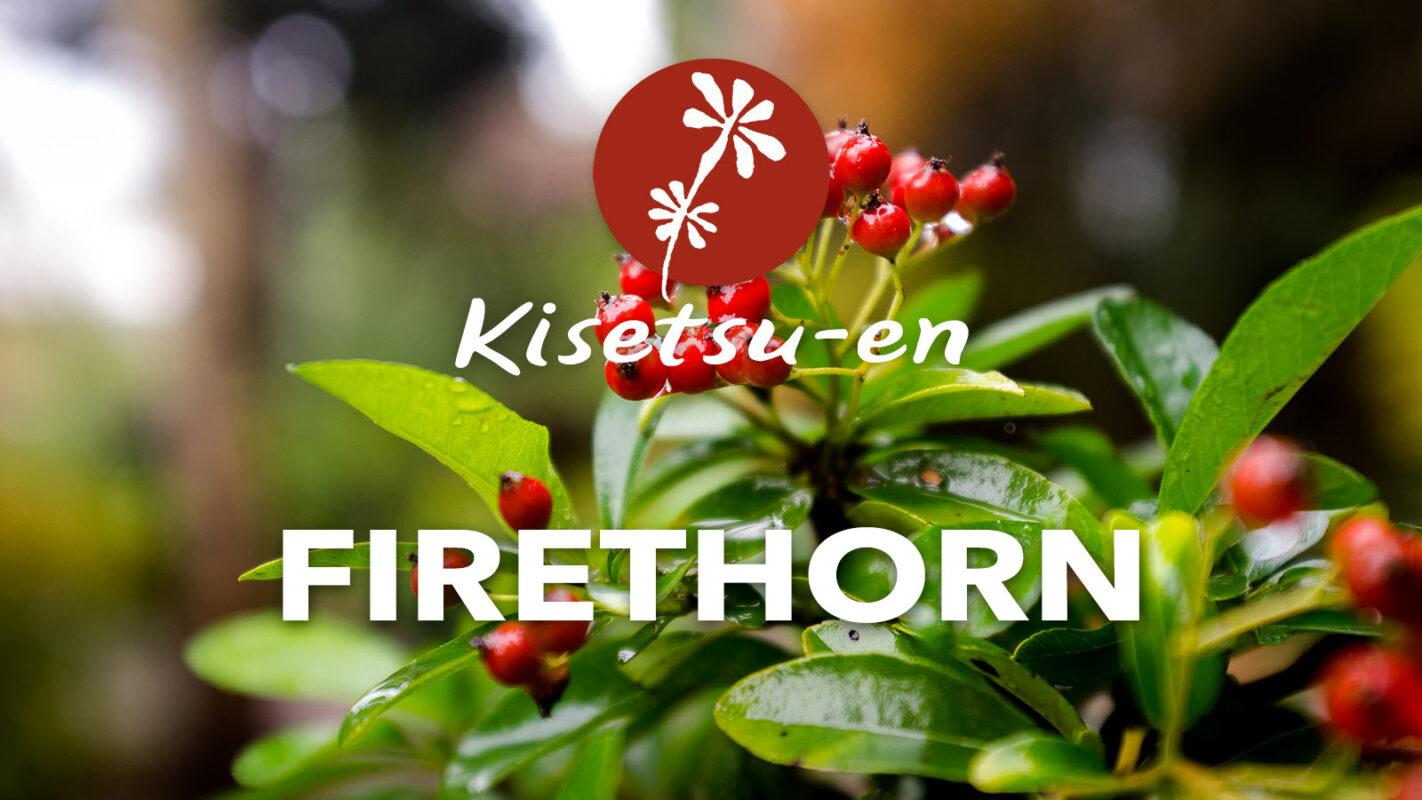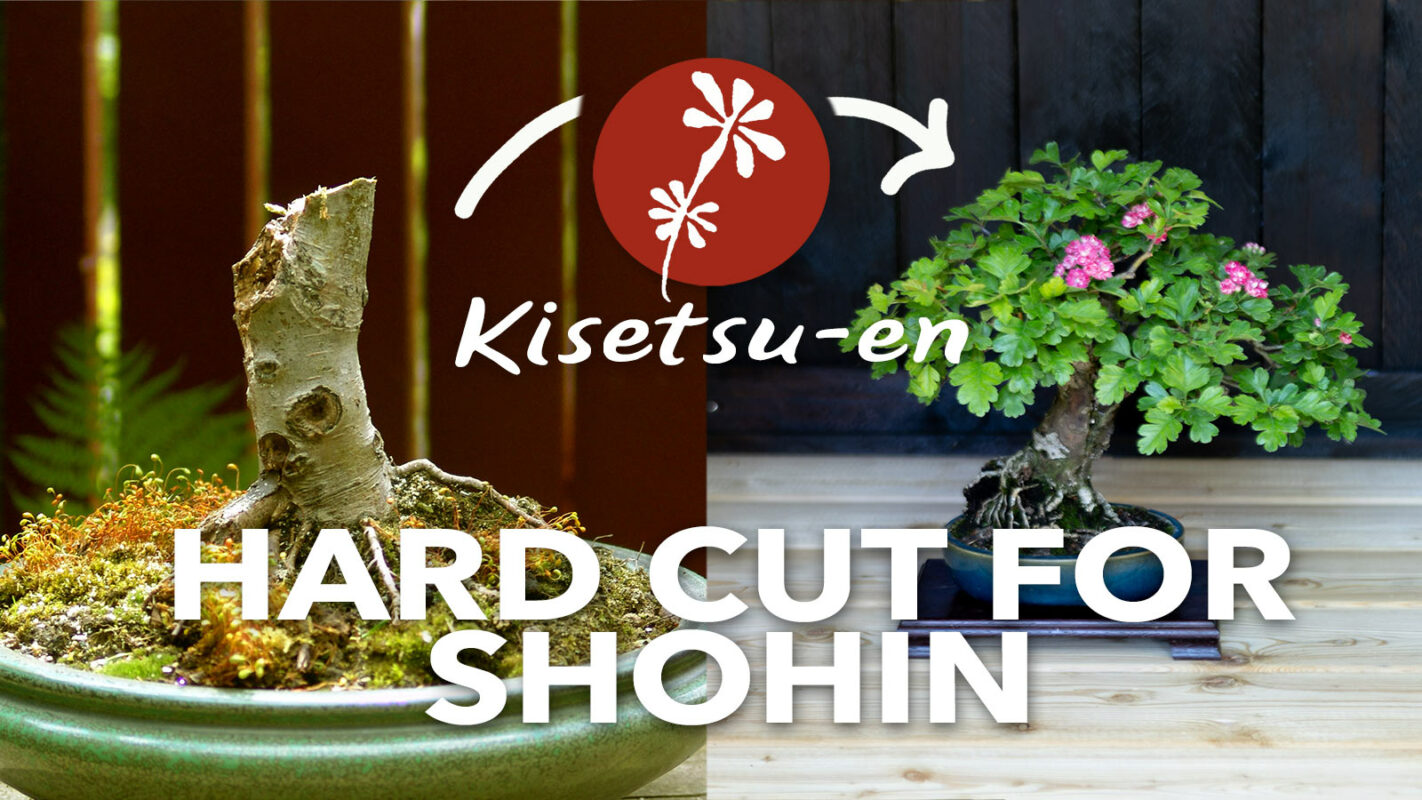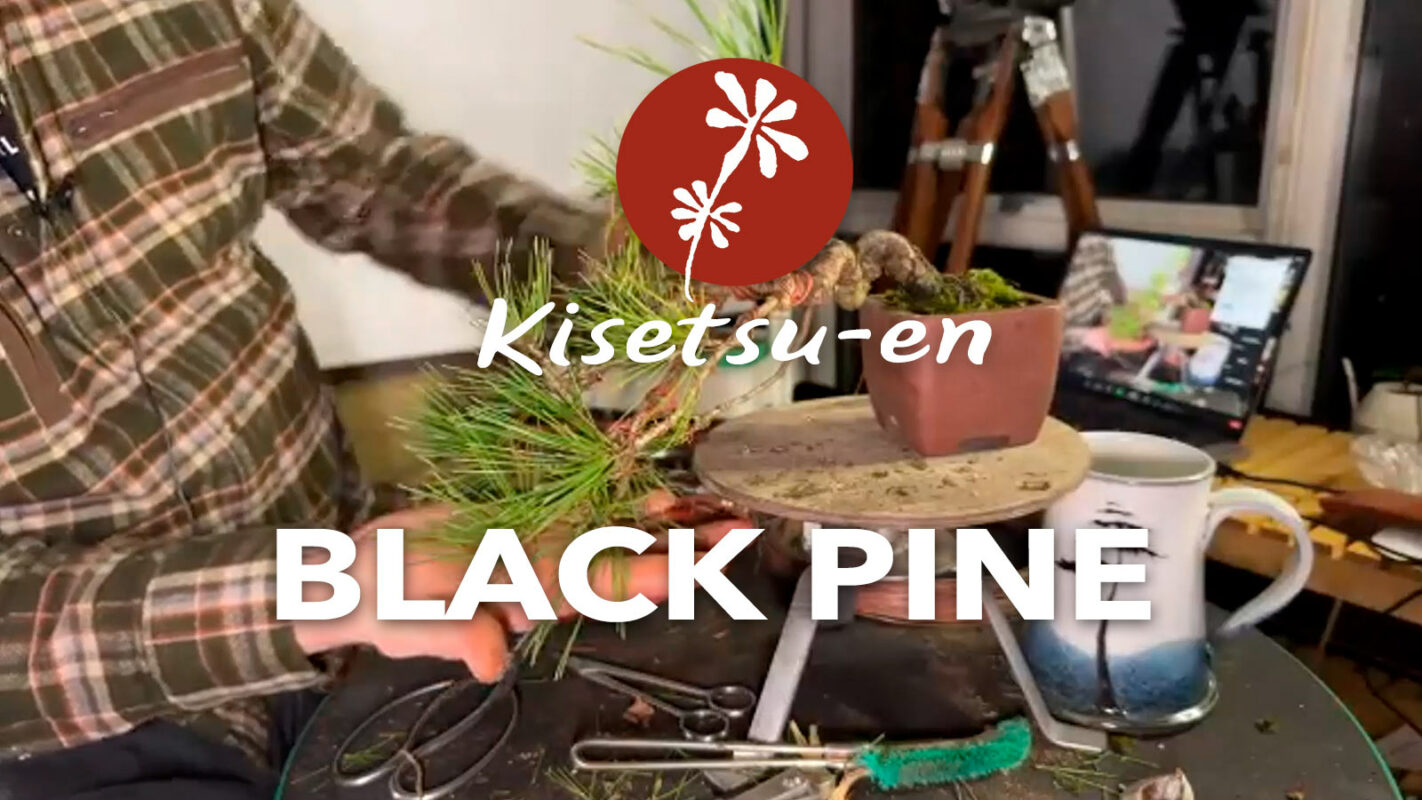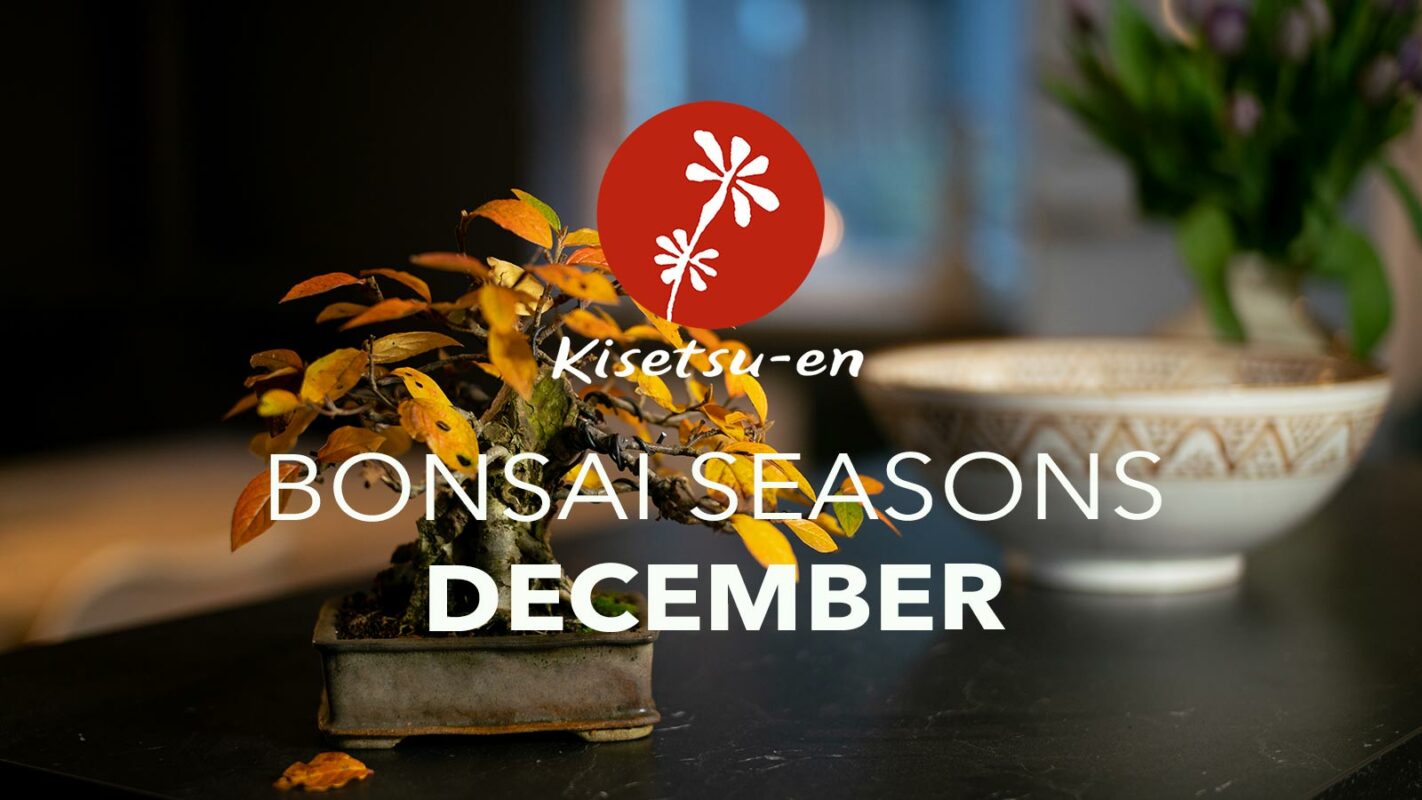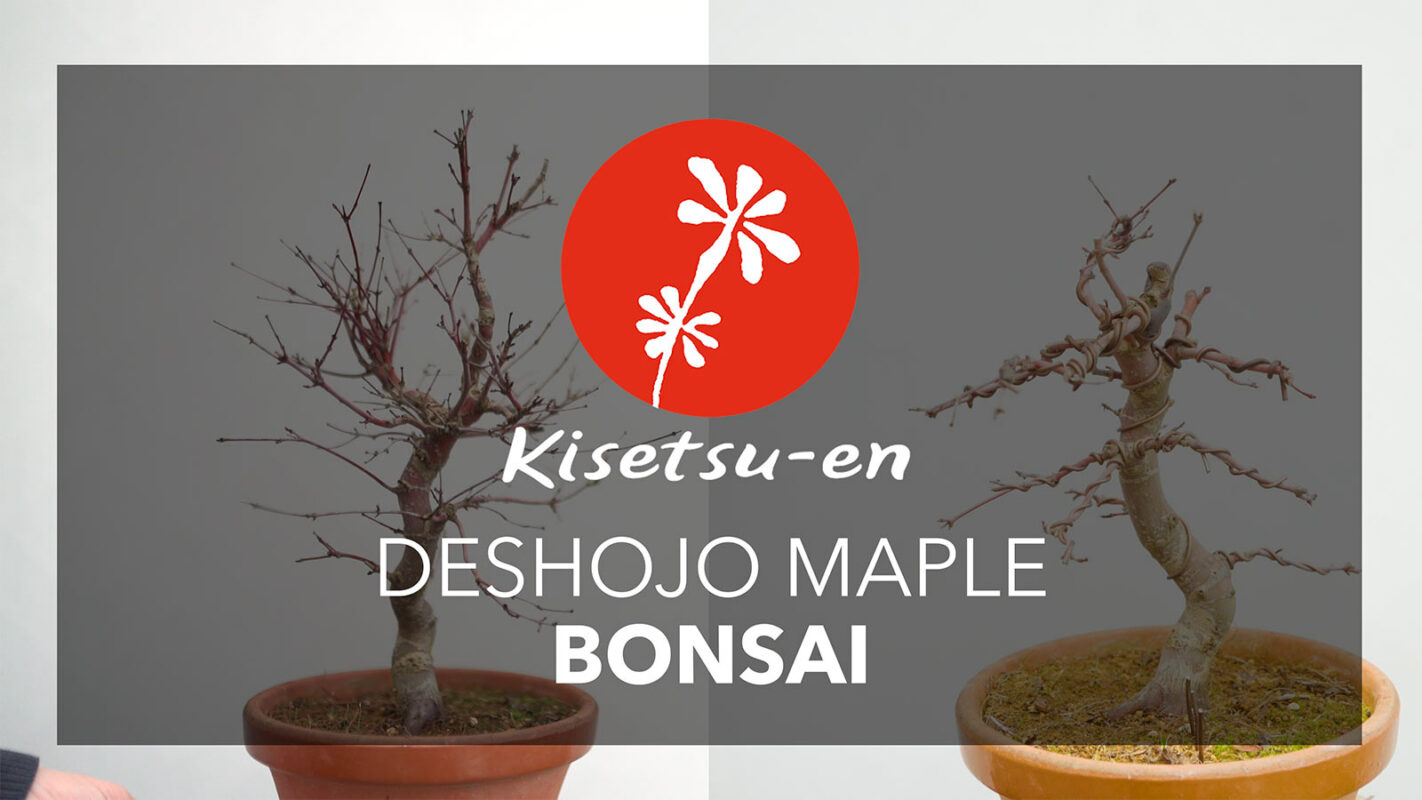VIDEO LIBRARY
SPRING
Live Q&A March
The Live Q&A March dealt with subjects like air layering (where to graft, grafting knives, moss or soil, root hormones and more). We also had topics about soil and nutrients and leaf pruning, the usual cosy time, and shared knowledge among members. Thanks to the group and their support.
Link for a list of trees and shrubs that can be airlayered:
https://shohin-europe.com/articles/trees-and-shrubs-for-airlayering/
Hawthorn repotting – 1-year root development
The 100-year-old Hawthorn was repotted into a colander basket/pot last year. Now, it’s time to examine the root development and primarily plan the roots’ future. We will look into strategies, root pruning, and root design.
JBP repotting
It is the repotting season and we are looking into a Japanese Black Pine needing root correction and a shift of pot. For aesthetical and health reasons. We look at the present work and plan the future jobs to do.
Spring trimming flowering bonsai
Flowering bonsai needs extra care on timing when pruned. The right time is crucial to know if you want successful flowering and/or fruiting. It all depends on when the flowers are formed and how the tree has been taken with the right amount of water, light and feeding.
WINTER
Live Q&A February
In this Live Q&A, we looked into topics like repotting strategies for Shohin bonsai especially, how fast you can create a shohin bonsai, and how to fatten up trunks and branches on a bonsai.
Crab Apple
In this episode we look into the Crab Apple as bonsai. I go through the different aspects of growing crab apples such as bonsai, from repotting to pruning and fertilizing.
Juniper form and balance
step two with the Itoigawa Juniper after the deadwood work in the previous episode focuses on shrinking the size to Shohin bonsai measures, and finding the best form and balance.
Juniper deadwood and live vein
Finding the live vein on a Juniper, and adding deadwood is the detailed lecture in this first of two episodes showing the styling of an Itoigawa Juniper.
Live Q&A January
In this Live Q&A, we looked into topics like live veins on Junipers and other species. Forest plantings and how to plan the development as well as growing medium.
We looked at different trees and how to arrange them in a pot, and much more.
Azalea
Not only are Azaleas beautiful to watch when they bloom, but they are also attractive when just in leaf.
in this episode we look at pre-season preparations on two Azalea varieties and dig into both aesthetics and caretaking of this beloved specie for bonsai.
SCOTS PINE Literati Shohin
In the search for good bonsai material, we shouldn’t overlook the simple material. Sometimes slim small trees offer other possibilities and fun of styling, than larger trees. Take an easy approach and create bonsai from a Pine inspired by this tutorial with a Swedish Scots Pine collected at a Gas Station!
JAPANESE WHITE PINE winter styling
There is no better time of the season to work on pines than during the dormancy season. In summer midsummer some of the same work can be done shown here, except for major branch cutting.
It is a bit safer in winter though, because of the cold making the pine trees lose less sap and being flexible when we wire and bend branches.
This tree needs a new styling because branches has moved since the first major styling, and there i´s an issue with a deadwood part of the tree. Step-by -step we go through the changes and how they are done..
As we are close to Christmas and bonsai may seem a bit far away in the moment I have been in the archive and found a valuable lesson about December and winter time in the bonsai garden. I hope you will enjoy some advices on winter care.
Juniper design and styling continued after deadwood was worked on in episode 1.
In part two we will arrange all the branches and foliage build on what is created with the deadwood work.
I apologise that one camera wasn’t working properly in the last part so the final styling will be with one camera view.
Juniper deadwood. In a two-part series about a straight upright style bonsai, we first look at the creation of deadwood. Aesthetic and technical aspects, and how it can be created with different tools. Step-by-step instructions show the progress of this type of work. In part two we will arrange all the branches and foliage build on what is created with the deadwood work.
This episode is dedicated to Andrew Pearson.
AUTUMN
| The meeting covered various topics related to tree care, including discussions on weather damage, tree health issues, and pest control methods. Participants shared personal experiences and advice on managing different tree species, addressing problems like chlorosis, vine weevil infestations, and scale insects. The group also touched on travel plans, genetics in trees, and the importance of proper tree maintenance techniques such as repotting, fertilizing, and pest prevention. |
Deciduous part two. Elm and Hawthorn development. Two trees at the stage and with different approaches.
We go through what we can do, and what we can’t do and look at the different development possibilities and strategies. Finally also a look at the Nebari (surface roots) and how to develop these.
Deciduous part two. Elm and Hawthorn development. Two trees at the stage and with different approaches.
We go through what we can do, and what we can’t do and look at the different development possibilities and strategies. Finally also a look at the Nebari (surface roots) and how to develop these.
Deciduous trees are on their way into dormancy and the time is perfect to adjust branches, look back on the growing season in order to plan next season with best possible outcome.
The October Live Q&A was recorded.
Topics on autumn foliage and draught and if the energy used by trees producing berries will influence their health and development. Pine strategies and many other topics are available in this session.
Autumn time is equal with deciduous bonsai styling. A Callicarpa is ready for styling when the sap flow is low, as it is when the leaves drop before dormancy.
Bonsai pots have a rich history and greatly impact the bonsai practice. Both aesthetical and practical the bonsai pot makes the difference on every tree. The balance between horticultural and practicality must go hand in hand with the aesthetics. In this episode, we change pots and discuss the possibilities and traditions.
Getting Scots pines, Pinus sylvestris, to back bud can be tricky. In this episode, we look at a method that’s a bit extreme but works on young single-flush pines in certain circumstances.
The basic styling of this young nursery material shows how much you can do with simple and relatively cheap ordinary nursery material creating the bones of a future bonsai.
Nick Hopes is known for his bonsai pottery, and in this episode, we visit the bonsai garden and the pottery workshop in Frigiliana, Spain.
We talk about inspiration, aesthetics and the bonsai life in Spain.
Wiring deciduous spring or autumn, Leafs cope with cold and heat. Slip potting – why? When?
Wire biting in on branches differently- why? Is there only one front on a Bonsai? Imperfections in bonsai!
SUMMER
We go through the development up til summer trim this season.
SPRING
The elegant leaves are a treat in summer. Leaves also are the focus point in this special edition where we look at four different approaches to leaf pruning in summer.
With a red flowering Hawthorn `Pauls Scarlett´ on the table we investigate the seasonal approach and control of an old Shohin bonsai flowering Hawthorn.
The special qualities of this soil make trees settle better and can be used to establish a better arrangement of trees, and build a natural wall around the roots.
In this tutorial we take it step-by-step when arranging a Yew forest style bonsai for the future.
In this Live Q&A special we talk about the different aesthetics of bonsai in the world, how we approach bonsai and a special tour through the bonsai garden of John Paton in Australia, plus side notes about bonsai issues.
The bonsai collection is a blend of native and imported bonsai. Many medium-sized trees are kept in shape by Samuel Thompson and managed by Leigh Taafe. Some trees are donated permanently to the collecting and others are on loan on a three-year contract.
Only maintenance and very few adjustments of the trees are part of the on-loan deal with the bonsai selected. Every third year the bonsai are shifted and new trees are selected for a period from applicants.
Using guy wires is a very good technique for different situations where you save the tree from stress. For old branches and where it is difficult to apply wire as usual, the guy wire technique comes in very handy.
In this episode, I explain the different possibilities with guy wires and show it step-by-stepå how you do. This example is based on a Japanese maple, but can be used for literally any species.
Repotting bonsai is also a chance to select maybe a new pot for a tree. There are both aesthetical as well as horticultural aspects of repotting bonsai. In this episode we look at two different trees. A new tree still in training and needing to be adapted to a smaller pot, and an old Shohin bonsai needing more room for its roots after many years in a tiny pot.
This week we continue to dive into repotting bonsai and look at arranging roots and selecting a temporary pot for a `Deshojo` Japanese maple. Root pruning strategies and how to adapt them to a small Shohin Bonsai container are in focus during this 50-minute instructional video.
Rose repotting and pruning are the main focus of this first spring episode.
Roses have their peak in summer when flowering but the important steps to reach that successfully are taken now.
We look into root pruning, arranging the Rose in the pot, fertilising strategies, wiring and pruning.
WINTER
LIVE Q&A February 29. This recording has some drop outs because of technical issues outside the house. Some American and Canadian members couldn’t get a connection too. We apologize but we cant explain where the failure lies.
A neglected small Japanese Quince is rescued and brought to life in this episode. Normally we repot Chaenomeles in autumn, but when roots are suffering and the health is declining it’s timely to take action in spring. Extra care through the season will help it through.
This small simple tree is planted a bit differently to create a more mature and strong expression that it offers as is.
In this tutorial, I show different methods of adjusting the inclination and space between trunks in a bonsai forest without taking them out of the pot. Arranging the trunks in a bonsai forest after it is planted and established can be tricky without simultaneously repotting the group. However, with anchoring wire and some creative support, it is possible to make some adjustments.
Deadwood at deciduous bonsai is done with a different approach compared to creating deadwood at coniferous bonsai.
To reflect the true nature of trees and how they cope with age we look into carving a Cotoneaster and a 100+ year old Hawthorn to reflect their natural beauty and age.
Creating small Shohin bonsai from simple material is both challenging and fun.
In this tutorial a Picea abies grown from a seedling is transformed into a future cascade style Shohin Bonsai. Maybe also with an alternative pot choice for the future?
Step-by-step instruction on how to build your own slap and egg shell forms for bonsai.
We dig into the mysteries clinging to the Prunus Mume, Japanese apricot.
This species require some special knowledge to handle and there is a very narrow frame where it can be wired. All revealed in this episode.
Pyrachanta, Firethorn, is a species that can be worked on in the winter to prepare for spring growth.
In this episode, we look at the techniques required to set the tree up for stronger growth with more back budding, and structural setting of branches.
In this Masterclass styling an Itoigawa Juniper, we look a design strategies, health balance, wiring and preparations of a tree before styling it.
Styling a Japanese black pine Shohin bonsai. Step by step each detail is shown and explained. Learn about the styling process and how to balance health between each branch.
This time, creating bonsai from simple material takes a cheap tree from the supermarket and brings it to classic bonsai style. This is the first step in setting the bones, and one of the most important factors in styling bonsai.
AUTUMN
Protecting against fungi in winter, balancing a bonsai in a pot and adding the right direction, creating a shohin from raw material step-by-step and much other stuff discussed in this episode of the Live Q&A.
Creating bonsai from simple material, cutting or seed. We look into the long-term planning and building up a bonsai step-by-step over a long time.
Extended liv stream shows the initial important placement of the first branches of two different stages of Hawthorn.
Wire tips adding extended wire snips to indicate future growth making decisions and overviews easier.
Changing a small Juniper to Literati style. A style rarely seen as Shohin bonsai.
(There are a few live-drop-outs. An edited version will be uploaded soon where this is removed).
Autumn colours, shohin pots, double potting, Spanish Oak, Foliage pad styling and more were in this week’s Q&A.
Links for pots as promised for a few places to look at:
https://www.carinajern.com/
https://www.maidenhairceramics.com/bio
https://www.holvilabonsaipot.com/
https://www.europeanbonsaipottercollective.com/
https://www.nendosei-bonsaiceramics.com/
Mame bonsai can be a lot of fun to create and come cheap if you look for it. In this tutorial, we take an ordinary garden centre piece and change it into a future great Mame bonsai.
Low cost – but high on the fun scale.
Mame bonsai can be a lot of fun to create and come cheap if you look for it. In this tutorial, we take an ordinary garden centre piece and change it into a future great Mame bonsai.
Low cots – but high on the fun scale.
Cotoneaster has all that you want for a Shohin bonsai. Compact growth, small leaves, flowers and berries and it’s a tolerant species to grow. In this tutorial / Live stream, a +35-year-old Cotoneaster is styled and we add a lot of styling, wiring and caretaking tips on the way.
Photographing bonsai may be challenging. Learn tips for photographing bonsai with your smartphone or EVF camera. Learn to adjust light and select the best background and more.
Choosing the right scroll for a bonsai display and other display issues, foliage pad development, and developing bonsai slowly were subjects part of this Live Q&A episode.
The scissors rules. Foliage pads are detailed styling that creates a convincing and detailed bonsai. In this live-stream episode, we look into the detailed work and aesthetics of creating foliage pads on coniferous bonsai and how they differ from deciduous bonsai.
Wiring is one of the basics in bonsai, but creating bonsai without using wire is as important to master. Some trees may be developed without using a wire at any time.
In this tutorial, we look into mainly deciduous trees and how to use the scissors as the only tool.
Most trees need some basic wiring at the start and later they can be developed, refined and maintained without using wire.
Watering bonsai, especially Shohin bonsai is demanding and necessary to control. In this live stream, we go through many aspects of watering including water quality and how to control water for each type of tree.
We added some extra tips and additional information on watering, with ideas to control water more easily.
SUMMER
Topics like heat and work on bonsai, Black pine care and new growth balance, displaying Shohin bonsai, Prunus Mume and Cotoneasters were topics in this Live Q&A Zoom session.
After summer care of Japanese White Pines. Pruning new growth, arranging foliage pads and taking care of wire scars.
Do you know the technique named Tanuki? It is a special technique merging a live plant with deadwood, adding character, drama and interesting forms into bonsai. The techniques are widely used for creative work in Japan and often demand some power tools and a bendable tree. Here we show you step-by-step an example of creating Tanuki bonsai with a Juniper and a piece of dead wood with interesting curves and movement.
The timing is essential when working on the deadwood on Junipers. We look at the live vein and how we bit by bit can create natural deadwood working in layers. How natural deadwood is created without the use of power tools over time and expanding the deadwood on a trunk without endangering the live vein and important sap flow to the branches.
Japanese maples are not just Japanese maples. Different species and varieties are treated very differently. We go through the process of the second flush of growth this season and hov progress is achieved set by step on a trident maple, a mountain maple and a Deshojo maple.
Japanese Black Pine decandling and prep for styling. Timing and detail are everything when we deal with the Japanese Black Pine. And here comes a confession. Up til now, I haven’t supported the Japanese Black Pine for Shohin bonsai in Northern Europe, because the climate makes it really difficult to grow them healthy. This is changing due to climate changes; therefore, we now seem to be able to grow them successfully around here too.
This Live stream digs into Japanese black pines’ progression, timing and planning. Two-flush pines have some special techniques attached to them and we will deal with all that.
Live Q&A July deals with wiring versus cutting to shape branches, and we dig into building up first, secondary and tertiary branches over time. Watering and feeding are covered, as the progression and dealing with larger wounds on trunks plus more. And the usual weather gossip and chat.
We look deep into the development of fine branching and new growth control on Yew, Taxus baccata. Focusing on both mature trees and trees in earlier stages plus fertilizing Yew.
The Semi Cascade style is very attractive for bonsai styling and in the Live stream Thursday we look at creating, maintaining, and balancing this unique style.
Both flowering, deciduous, and of course evergreen trees are subjects for semi-cascade bonsai.
We also look at balancing the Shohin display using cascade and semi-cascade for the display.
Trident and Field maple summer growth trimming and strategy to gain strength and balance.
SPRING
Live Q&A this time was about Akadama and other soil mixtures’ pros and cons. Zelkova development. Hard cut and new growth. Pine repotting in summer. Trunk thickening late in the season. Rescuing trees suffering and more…
Cotoneaster is a must-have for Shohin bonsai enthusiasts. Easy to grow and care for. tolerant of pruning. Beautiful flowers and small leaves.
Controlling growth when both flowers and extending growth is present at the same time is the main subject on top of other pruning and growing tips. We show Cotoneaster horizontalis, dammeri and microphylla in this live stream recorded.
How to take care of the spring growth on Zelkova serrata. A tree overgrown with lush fresh spring growth is trimmed, and we look at the care of this iconic species for classic broom-style bonsai.
In this LIVE episode, we deal with thickening up trunks on different types of bonsai.
From coniferous to deciduous bonsai. How sacrifice branches are used to expand full trunks and certain areas of the tree.
Bonsai garden visit, chopping back for Shohin timing, which species and when, looking into why some trees this season leaves out late due to the hot season a year ago, and much more…
The first branches and their movement is very important to control and address when we want to achieve a natural-looking deciduous bonsai.
In this episode I look at how the first branches are formed to add that naturalness in bonsai and the importance of doing this the very first or second season of growing the primary branches.
It’s important to know how to handle Japanese maple in early spring. Pinching new growth or not is essential for development and refinement. Therefore it matters how Japanese maples are handled just here in the early stages of the season.
I go through the different activities and how it influences on ramification and health of Acer palmatum in spring. Techniques that will help improve your Japanese maples.
Starting your own Mame bonsai is a very playful and fun thing to do.
In this episode I look at the starting materials to use, early and later stages of development, wiring, repotting and pruning. Plus how to keep the smallest of bonsai from drying out during the summer. And much more. Please enjoy.
Extra long edition. Soil types and water building up, and myths about drainage layers killed. Interesting propagating techniques from Mark Moreland show how new material is made from logs of wood.
Patina and pots, and how best to remove the wire from branches. And more…
Live stream creating a different cascade style shohin bonsai taking inspiration from rivers and water streams.
Usually, we prefer thick trunks to express age when creating bonsai. But thin trunks can be used for various styles of bonsai too. In this episode, we explore possible designs and create a future simple Yew on a pice of natural stone from Wales.
A short video without words showing the work of establishing a mixed forest style in an interesting yellow pot by Nick Hopes.
Root structure and planning are important. as is the soil quality.
In this live stream, we repot a Lilac shohin and a 100-year-old Hawthorn with the aim of growing it as shohin bonsai. There are challenges with both soils and roots in both cases and we look at how they are solved and developed further.
it´s live recorded and we apologize for a one-minute sound dropout during the stream.
It’s spring and the repotting seasons have begun. Two shohin bonsai are repotted but with each their approach and future goals.
We look into arranging roots, anchoring trees securely, pot styles and balance. And more..
it´s live recorded and we apologize for a one-minute dropout during the stream.
WINTER
February Live Q&A came around subjects like techniques special to the Sabina juniper, repotting and removal of old soil, Japanese black root rot, creating small bonsai in thumbnail pts and much more. As usual enjoyable and with good learning thanks to our great group.
Pyracantha, Firethorn late winter work. We look at styling options, and how to increase ramifications on two different types of Firethorn.
One is hardy and tolerates freezing well. The other isn’t tolerating freezing and needs extra care.
Creating Shohin bonsai from larger trees and bonsai can be a challenging but very rewarding experience. In this episode, we look at cutting strategies foreseeing where ew growth is likely to happen, how to cut and when. Also, time perspective and future planning are subjects touched on in this special techniques video.
Junipers can be worked on during the winter time when branches are flexible. We look into the timing of the jobs we can do, and how to balance health and design at the same time. A Shohin Juniperus Itoigawa and a former nursery J. chinensis in larger format are on the table.
Styling a Japanese Black Pine in semi cascade style.
Looking into aesthetics and pot choice plus energy balance.
Finishing with a short Q&A.
The LIVE Q&A for January comes around a lot of interesting topics.
In depth topics: Double potting shohin and mame, coping with summer heat. Back budding and branch developing on Junipers. Fruiting trees and flower development. And much more…
The LIVE Q&A for December concentrated on two main topics. One subject was about how much trees cope with low temperatures and under which circumstances.
Another topic zoomed in on two trunk styling options. based on a smaller container grown Yew.
December is the time to prepare for winter situations with freezing and dormancy. In this episode, we look into what can be done in the bonsai garden at this time, how to prepare for winter and a funny detail with branches changing colors.
The Deshojo maple is a must-have for fans of Japanese maples. It has some different design aspects as well as time challenges compared to ordinary Japanese maples.
It is mostly grown for its amazing purple-red leaves shining especially in spring and autumn/fall.
In this BONSAI ON episode, I focus on bringing a pre-bonsai forward and designed for Shohin bonsai. Correcting some errors from preciously growing stages.
We look into strategies and realistic time frames to achieve results with slow-growing species like the Deshojo maple.

